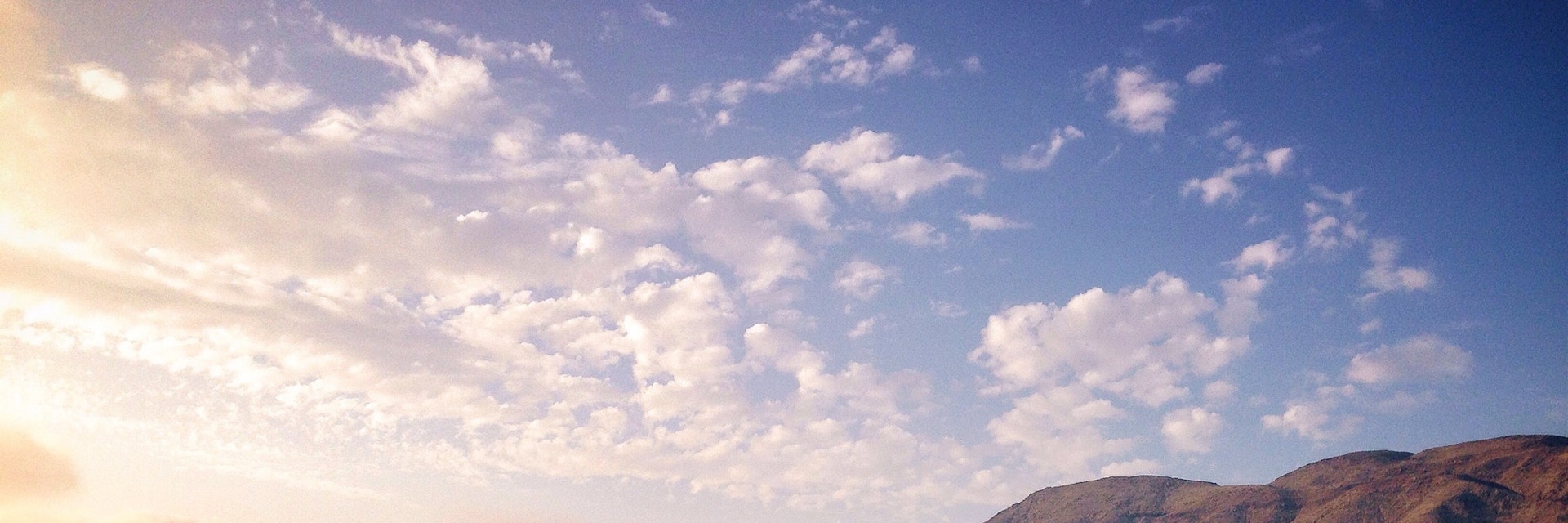
Getty Images/EyeEm
This tiny speck of a country packs a big punch. What it lacks in size, it more than makes up for in beauty. Few countries in the world, with the possible exception of Iceland, offer such weird landscapes – think salt lakes, extinct volcanoes, sunken plains, limestone chimneys belching out puffs of steam, basaltic plateaus and majestic canyons. Outdoorsy types will enjoy a good mix of land and water activities, including hiking, diving and whale-shark spotting in the Gulf of Tadjoura.

Attractions
Must-see attractions.

Abourma Rock Art Site
This superb archaeological site features well-preserved rock engravings dating back to Neolithic times, which are striking both for their rich complexity…

Weary of the hustle and bustle of Djibouti City? Have a soft spot for endangered species? The well-organised wildlife refuge Decan is about 10km south of…

It does not get the hype of the iconic Lac Assal and Lac Abbé, but Les Allols depression is one the most spectacular natural sites in the Horn. The…
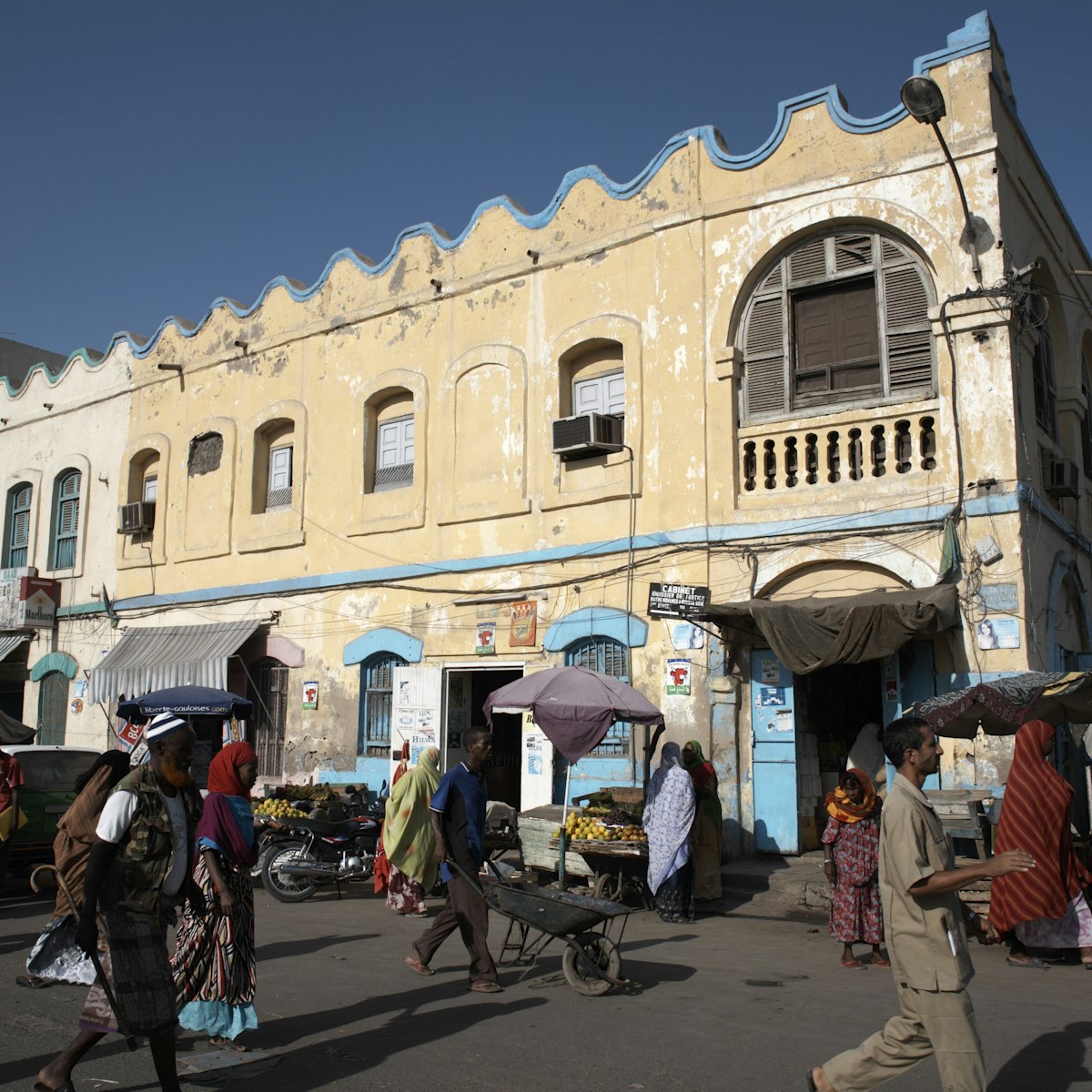
European Quarter
Djibouti City
The focal point of the European Quarter is Place du 27 Juin 1977 (Place Ménélik). With its whitewashed houses and Moorish arcades, this vast square is a…
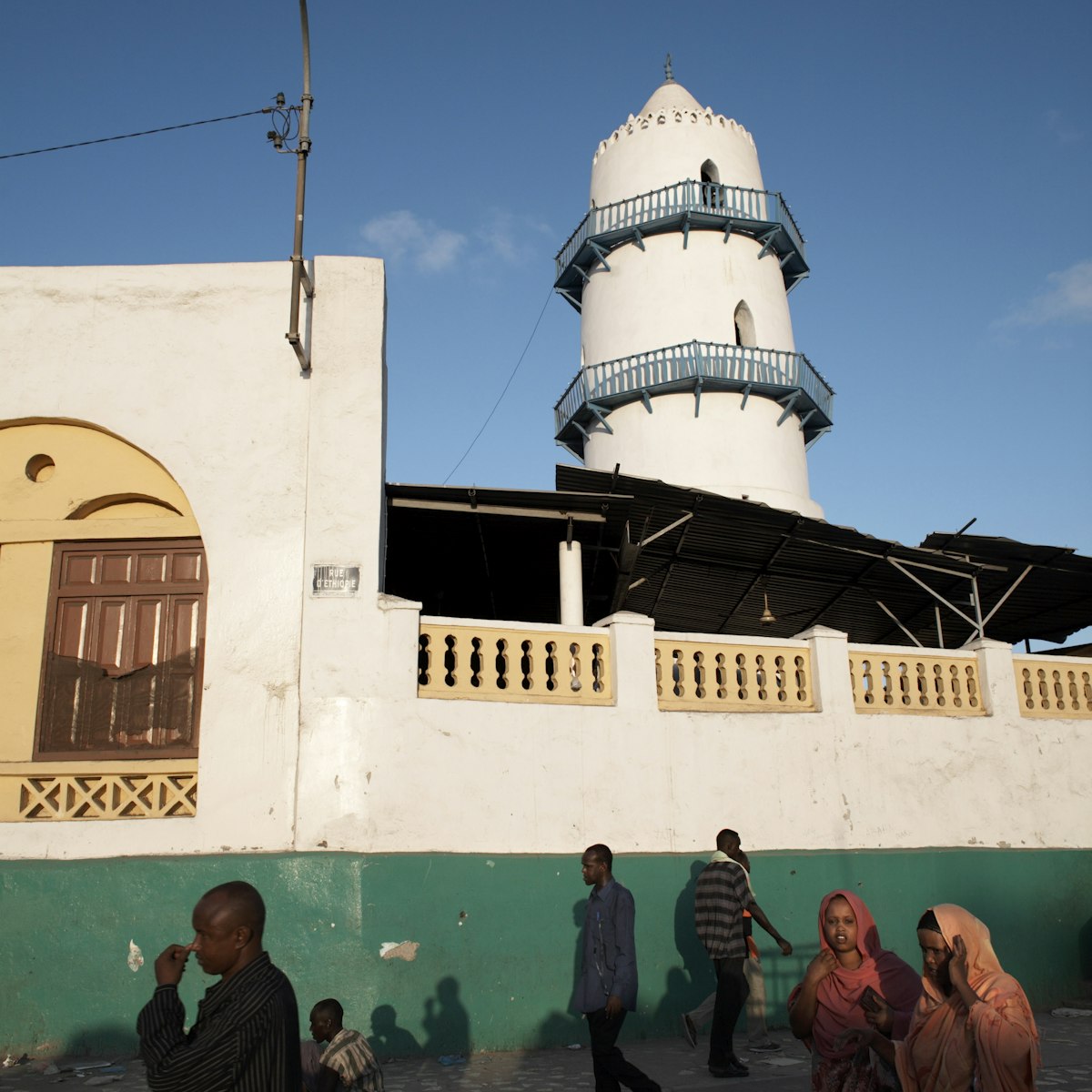
Hamoudi Mosque
The vast and chaotic Place Mahmoud Harbi (Place Rimbaud) is dominated by the minaret of this imposing mosque, Djibouti City’s most iconic building.

African Quarter
The vast Place Mahmoud Harbi (aka Pl Rimbaud), which is dominated by the minaret of the great Hamoudi Mosque, Djibouti City’s most iconic building, is…

In the early evening, the walk along the causeway northwest of the centre makes a very pleasant stroll. The Moorish-inspired presidential palace (not open…

Grand Barra
This spectacular plain of dried and cracked white clay, 27km long and 12km wide, was once an ancient lake. You can't miss it if you're heading to Lac Abbé…
Latest stories from Djibouti
Filter by interest:
- All Interests
- Adventure Travel
- Art & Culture
- Beaches, Coasts & Islands
- Food & Drink
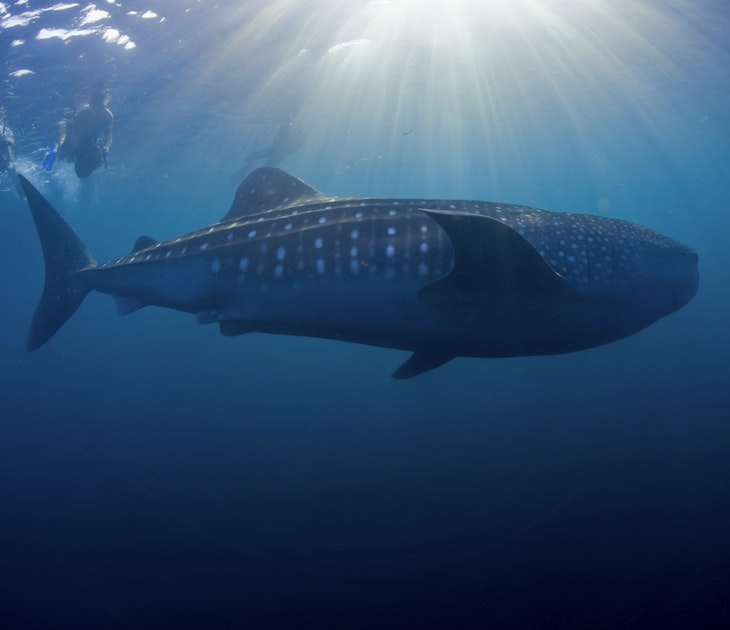
Wildlife & Nature
Aug 24, 2017 • 5 min read
When it comes to snorkelling with whale sharks, Djibouti is unsurpassable – floating with these majestic creatures is unlike anything you will have…
in partnership with getyourguide
Book popular activities in Djibouti
Purchase our award-winning guidebooks.
Get to the heart of Djibouti with one of our in-depth, award-winning guidebooks, covering maps, itineraries, and expert guidance.
Djibouti and beyond
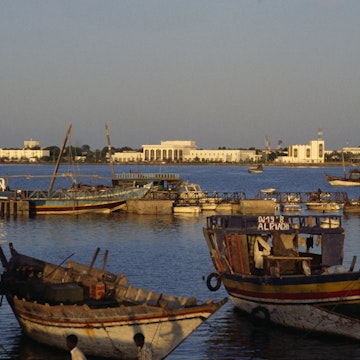
Djibouti Travel Guide: Essential Facts and Information
:max_bytes(150000):strip_icc():format(webp)/DSC00412-5b73daf7c9e77c0057ca2198.jpg)
Djibouti is a tiny nation sandwiched between Ethiopia and Eritrea in the Horn of Africa. Much of the country remains undeveloped, and as such it's a fantastic destination for eco-tourists looking to get off the beaten track. The interior is dominated by a kaleidoscope of extreme landscapes ranging from plunging canyons to salt-encrusted lakes; while the coast offers excellent scuba diving and the opportunity to snorkel alongside the world's largest fish . The country's capital, Djibouti City, is an urban playground on the rise with one of the region's finest culinary scenes.
Djibouti is part of East Africa . It shares borders with Eritrea (to the north), Ethiopia (to the west and south) and Somalia (to the south). Its coastline borders the Red Sea and the Gulf of Aden.
Djibouti is one of the smallest countries in Africa, with a total area of 8,880 square miles/ 23,200 square kilometers. In comparison, it is slightly smaller than the American state of New Jersey.
Capital City:
The capital of Djibouti is Djibouti City.
Population:
According to the CIA World Factbook, Djibouti's July 2016 population was estimated at 846,687. More than 90% of Djiboutis are under 55 years of age, while the country's average life expectancy is 63.
French and Arabic are the official languages of Djibouti; however, the majority of the population speaks either Somali or Afar as their first language.
Islam is the most widely practiced religion in Djibouti, accounting for 94% of the populace. The remaining 6% practice various denominations of Christianity.
Djibouti's currency is the Djiboutian franc. For up-to-date exchange rates, use this online currency converter .
Djibouti's climate is hot all year round, with temperatures in Djibouti City rarely falling below 68°F/ 20°C even in winter (December - February). Along the coast and in the north, the winter months can also be quite humid. In summer (June - August), temperatures often exceed 104°F/ 40°C, and visibility is reduced by the khamsin , a dust-laden wind that blows in from the desert. Rains are rare, but can be briefly intense especially in the central and southern interior.
When to Go:
The best time to visit is during the winter months (December - February), when the heat is at its most bearable but there is still plenty of sunshine. October - February is the best time to travel if you're planning on swimming with Djibouti's famous whale sharks .
Key Attractions
Djibouti City
Founded in 1888 as the capital of the French Somaliland colony, Djibouti City has transformed over the years into a thriving urban center. Its eclectic restaurant and bar scene matches its identity as the second richest city in the Horn of Africa. It is highly cosmopolitan, with elements of traditional Somali and Afar culture blending with those borrowed from its significant international community.
Also known as Lac Assal, this magnificent crater lake is located 70 miles/ 115 kilometers west of the capital. At 508 feet/ 155 meters below sea level, it is the lowest point in Africa. It is also a place of great natural beauty, its turquoise waters contrasting with the white salt banked along its shore. Here, you can watch Djiboutis and their camels harvesting the salt as they have done for hundreds of years.
Moucha & Maskali Islands
In the Gulf of Tadjoura, the islands of Moucha and Maskali offer excellent beaches and abundant coral reefs. Snorkelling, diving and deep sea fishing are all popular pastimes here; however, the main attraction occurs between October and February when the islands are visited by migrating whale sharks. Snorkelling alongside the world's largest fish is a definite Djibouti highlight.
Goda Mountains
In the northwest, the Goda Mountains offer an antidote to the arid landscapes of the rest of the country. Here, vegetation grows thick and lush on the shoulders of mountains that reach up to 5,740 feet/ 1,750 meters in height. Rural Afar villages offer a glimpse of Djibouti's traditional culture while the Day Forest National Park is an excellent choice for birding and wildlife enthusiasts.
Getting There
Djibouti–Ambouli International Airport is the main port of entry for most overseas visitors. It is located approximately 3.5 miles/ 6 kilometers from the center of Djibouti City. Ethiopian Airlines, Turkish Airlines and Kenya Airways are the biggest carriers for this airport. It is also possible to take a train to Djibouti from the Ethiopian cities of Addis Ababa and Dire Dawa. All foreign visitors need a visa to enter the country, although some nationalities (including U.S.) can purchase a visa on arrival. Check this website or consult your nearest embassy for further information.
Medical Requirements
In addition to ensuring that your routine vaccines are up to date, it is recommended to vaccinate against Hepatitis A and Typhoid before traveling to Djibouti. Anti- malaria medication is also required, while those traveling from a yellow fever country will need to provide proof of vaccination before being allowed into the country. Check the Centers for Disease Control and Prevention website for further details.
The Top 12 Things to Do in Ethiopia
Africa's Best Destinations for Swimming With Whale Sharks
Cape Verde: Facts and Information
DRC Travel Guide: Essential Facts and Information
Gabon Travel Guide: Essential Facts and Information
Madagascar Travel Guide: Essential Facts and Information
Kenya Travel Guide: Essential Facts and Information
Seychelles Travel Guide
Nigeria Travel Guide: Essential Facts and Information
Tunisia Travel Guide: Essential Facts and Information
Your Trip to Rwanda: The Complete Guide
Senegal Travel Guide: Essential Facts and Information
Mauritius Travel Guide: Essential Facts and Information
2020 Travel Warnings for Countries in Africa
Ghana Travel Guide: Essential Facts and Information
Eswatini Travel Guide: Essential Facts and Information
Explore Djibouti
Plan your trip to djibouti: best of djibouti tourism.
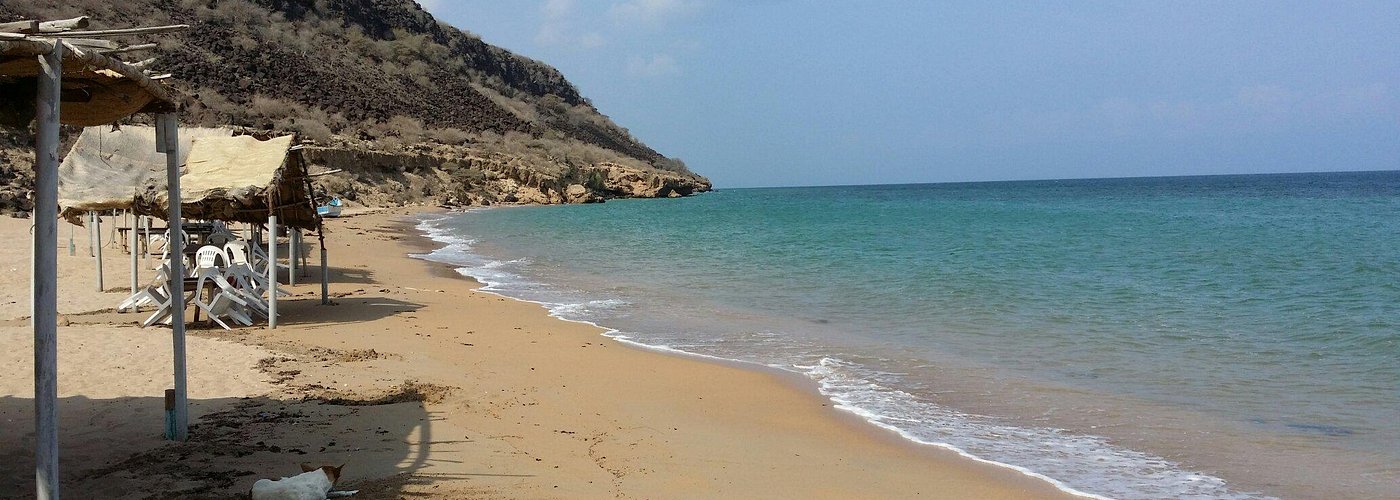
Essential Djibouti
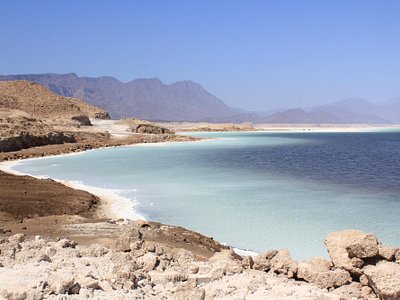
Trending in the forums
Djibouti Is Great For
Eat & drink.
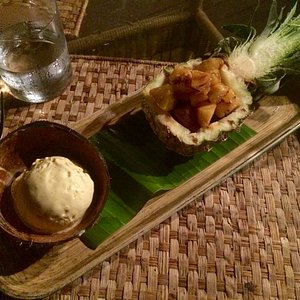
- Djibouti Palace Kempinski
- Sheraton Djibouti
- Hotel Dar Es Salam
- Atlantic Hotel
- Ras Dika Hotel
- Melting Pot
- Café de la Gare
- Sings Restaurant
- Kurry - Flavour of India
- Kuriftu Lounge Djibouti
- Day Forest National Park
- Khor Ambado Beach
- Place Menelik
- 3 Days Djibouti Tour
- Combo tour to Djibouti, Somaliland, and Mogadishu (Somalia) for 7 days
- Lake Assal Day Trip from Djibouti
- Djibouti Trip
- Discover Assal Lake
Update April 12, 2024
Information for u.s. citizens in the middle east.
- Travel Advisories |
- Contact Us |
- MyTravelGov |
Find U.S. Embassies & Consulates
Travel.state.gov, congressional liaison, special issuance agency, u.s. passports, international travel, intercountry adoption, international parental child abduction, records and authentications, popular links, travel advisories, mytravelgov, stay connected, legal resources, legal information, info for u.s. law enforcement, replace or certify documents.
Share this page:
Djibouti Travel Advisory
Travel advisory july 31, 2023, djibouti - level 2: exercise increased caution.
Reissued with obsolete COVID-19 page links removed.
Exercise increased caution in Djibouti due to terrorism and crime .
Terrorists may attack with little or no warning, targeting tourist locations, transportation hubs, markets, shopping malls, government facilities, hotels, clubs, restaurants, places of worship, parks, major sporting and cultural events, educational institutions, airports, hospitals, and other public areas.
Read the country information page .
If you decide to travel to Djibouti:
- Be aware of your surroundings when traveling to tourist locations and crowded public venues.
- Follow the instructions of local authorities.
- Monitor local media for breaking events and adjust your plans based on new information.
- Enroll in the Smart Traveler Enrollment Program ( STEP ) to receive Alerts and make it easier to locate you in an emergency.
- Follow the Department of State on Facebook and Twitter .
- Review the Country Security Report for Djibouti.
- Prepare a contingency plan for emergency situations. Review the Traveler’s Checklist .
- Visit the CDC page for the latest Travel Health Information related to your travel.
Travel Advisory Levels
Assistance for u.s. citizens, djibouti map, search for travel advisories, external link.
You are about to leave travel.state.gov for an external website that is not maintained by the U.S. Department of State.
Links to external websites are provided as a convenience and should not be construed as an endorsement by the U.S. Department of State of the views or products contained therein. If you wish to remain on travel.state.gov, click the "cancel" message.
You are about to visit:

- South Africa
- South Korea
- The Maldives
- The Philippines
- United Arab Emirates
- Czech Republic
- Switzerland
- The Netherlands
- Galapagos Islands
- Dominican Republic
- Puerto Rico
- The Bahamas
- New Zealand
- Solo Travel
- Travel on a budget
- Female Travel
- Luxury Travel
- Couple Travel
- Best Travel Credit Cards
- How to find cheap flights
- International Food
- Accessories
- Photography Gear
- Travel Gifts
- Request a blog post
- Work with me
- Become a guest writer
- Travel Destinations
- Africa Travel Guide
TRAVEL GUIDE
Located in the horn of Africa , Djibouti is the third smallest country in continental Africa. Despite its small size, it has a rich cultural heritage and diverse landscape, including volcanic formations, desert landscapes, and some of the world’s saltiest bodies of water. While Djibouti is still relatively unknown as a tourist destination, it is gradually gaining recognition for its unique attractions and welcoming people.
LANDSCAPES & VIEWS
Djibouti’s landscapes are a stunning mix of volcanic formations, deserts, mountains, and coastline. Visitors can explore the eerie landscape of Lac Assal, one of the saltiest bodies of water in the world, or hike in the Goda Mountains for sweeping views of the surrounding terrain. The country’s beautiful coastline along the Red Sea is also a highlight, offering the chance to see a variety of marine life and enjoy some of the world’s best diving and snorkeling.
Almost every country in Africa offers an exotic array of wildlife, and Djibouti is not the exception. The country is home to some pretty interesting endemic and endangered species like the francolin and the red river hog . It is also home to warthogs, antelopes, gazelles, hyenas, leopards, camels, donkeys, vervet monkeys and raptors.
CULTURAL DIVERSITY
Thanks to its strategic geographic location and a crossroad of trade and commerce, Djibouti is a melting pot of cultures, with different customs, languages, religions and cuisines. The country is home to three ethnic groups: Somali, Afar and Arabs, which have been living together in peace since the 12th century.
ARCHITECTURE
Djibouti is a former French colony, and it still has well preserved remains of this period, with some of the best sightseeing spots in Africa. Thanks to its diverse background, the country also boosts interesting religious site to admire, like the Hamoudi Mosque (built in 1906) and a variety of palaces.
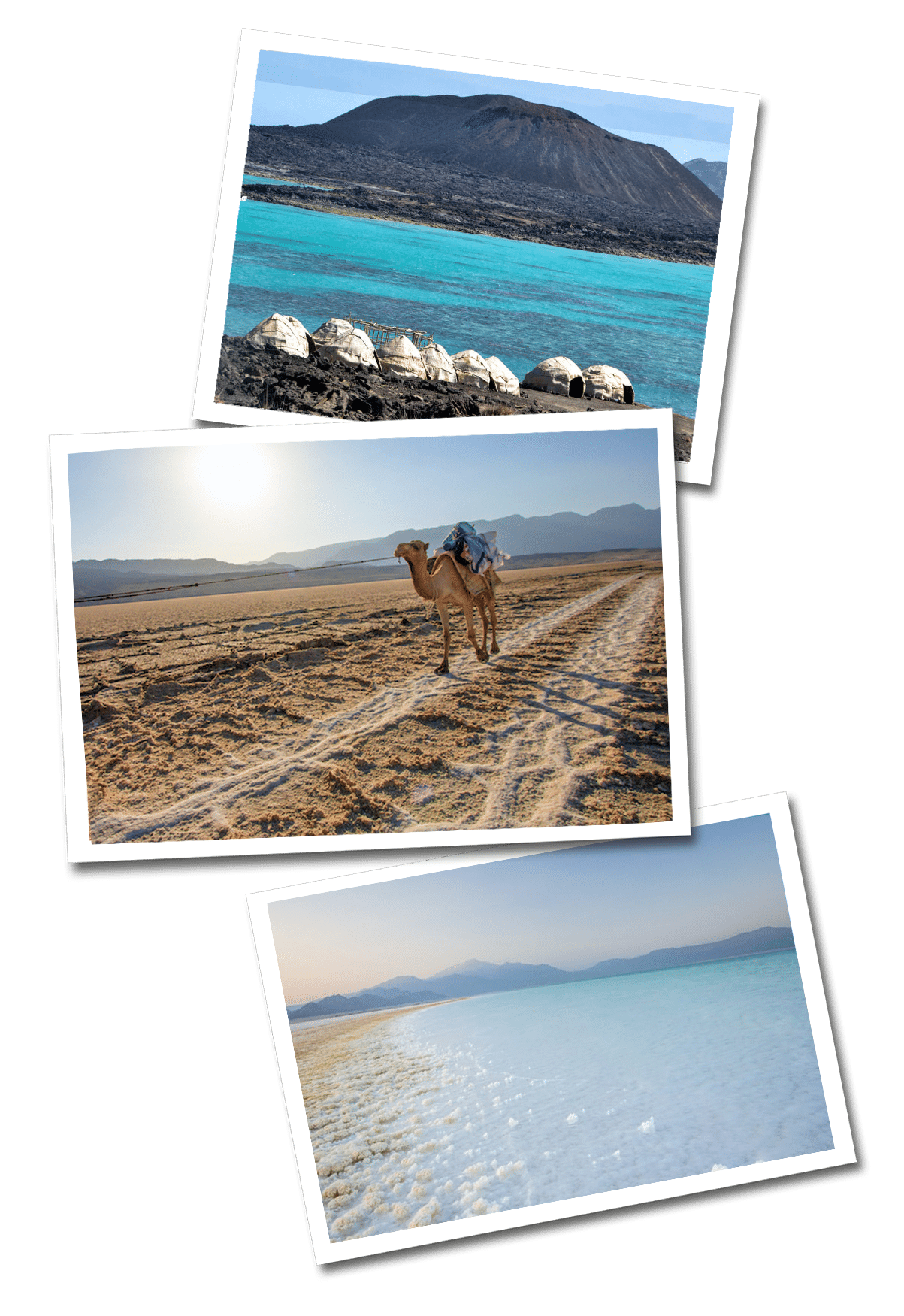
- Name: Republic of Djibouti
- Capital: Djibouti
- Official Languages: French , Arabic
- Currency: Djiboutian franc
- Time Zone: UTC +3
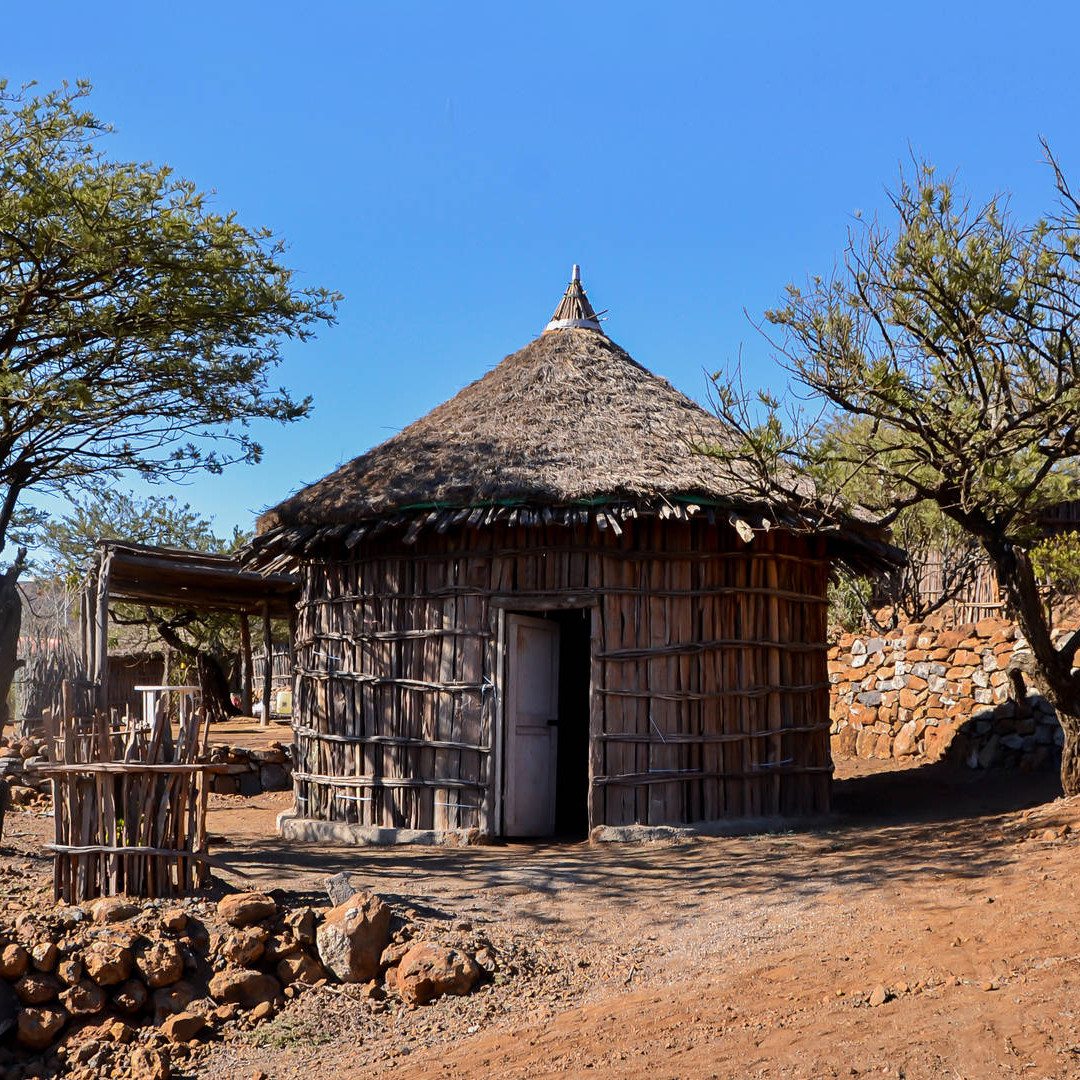
Explore the Day Forest National Park
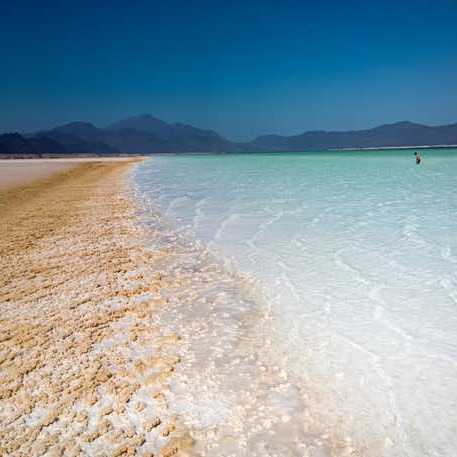
Visit Lake Assal
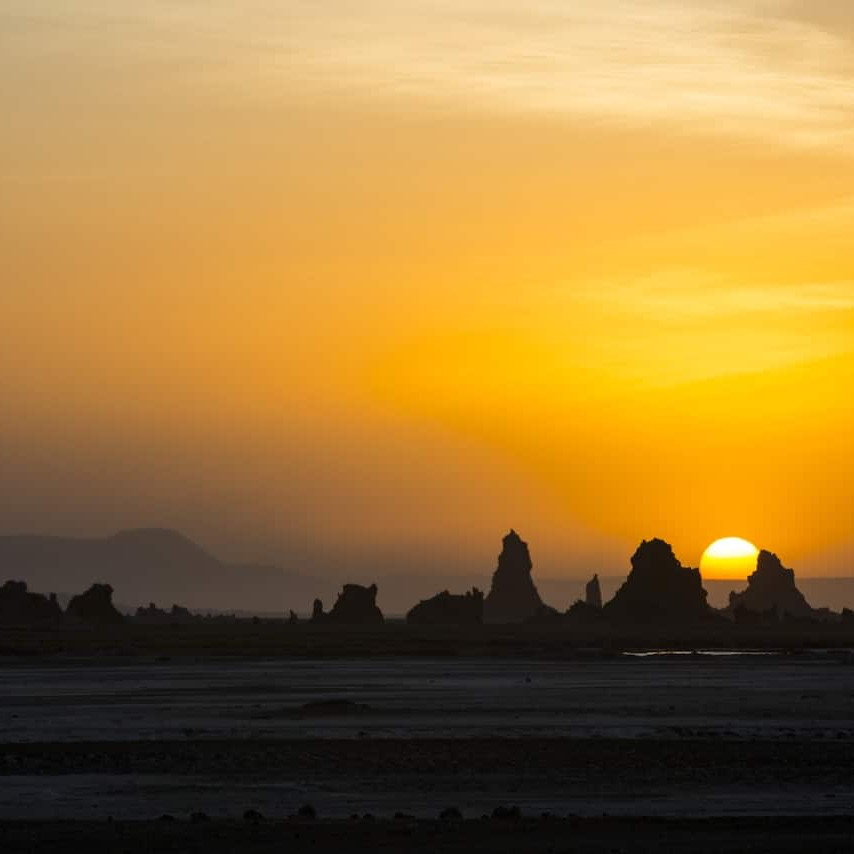
Watch the sunset with the famous chimneys and hot springs in Lake Abbe
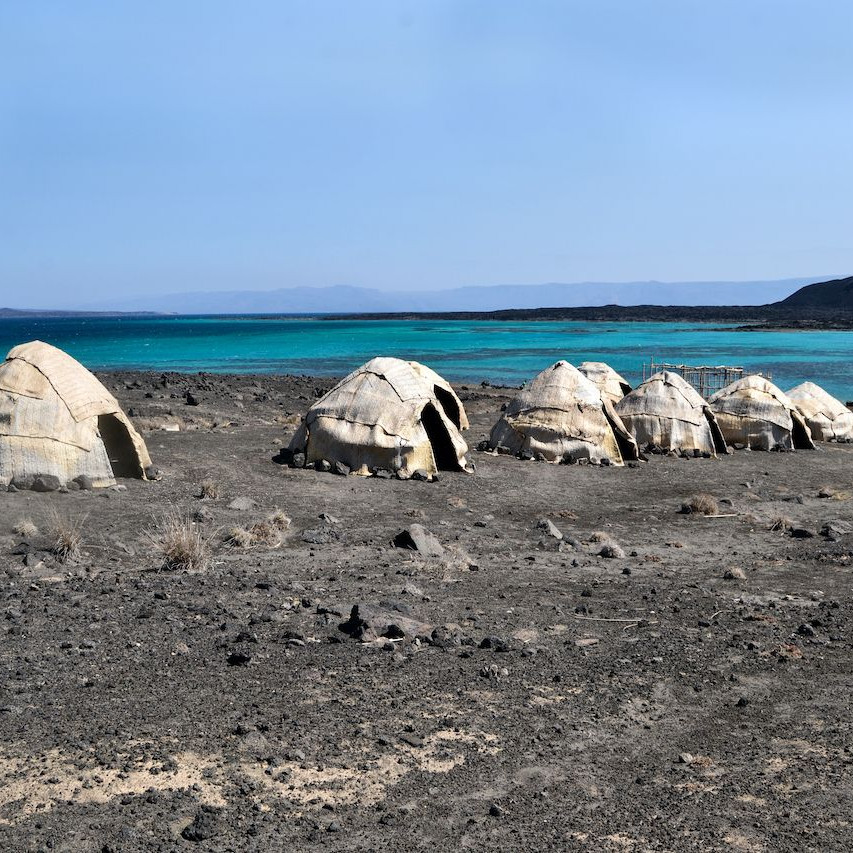
Snorkel with whale sharks in Ghoubbet-el-Kharab
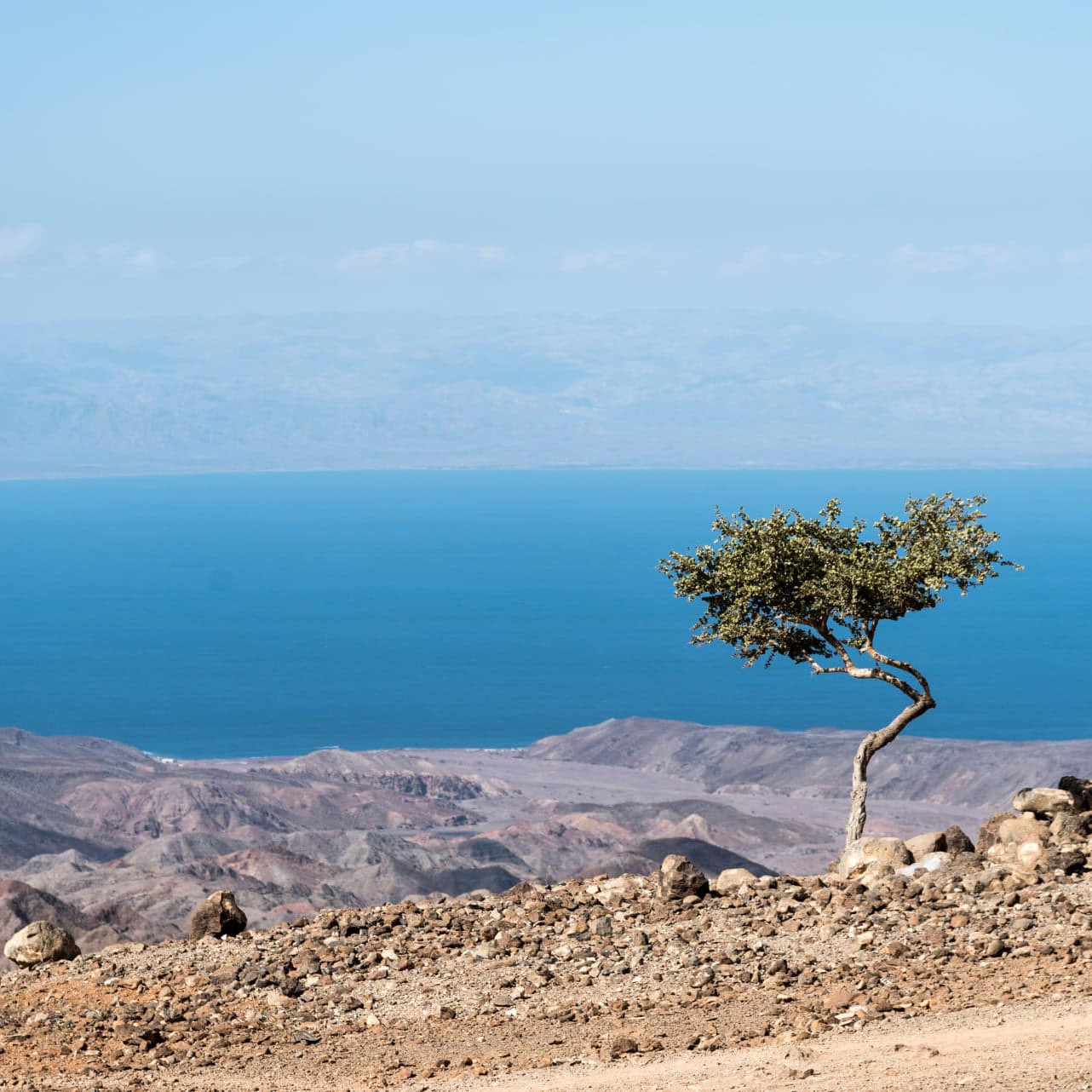
Wander around Tadjoura
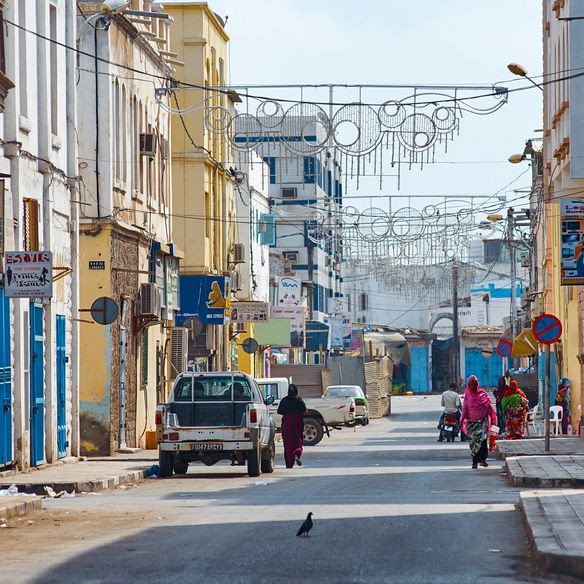
Explore Djibouti City
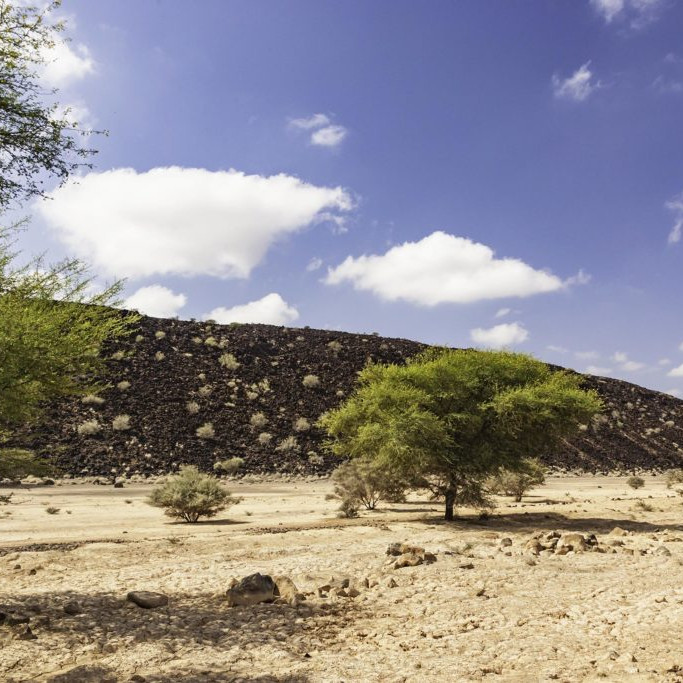
Visit the Dry volcanic Valley in Grand Bara Desert
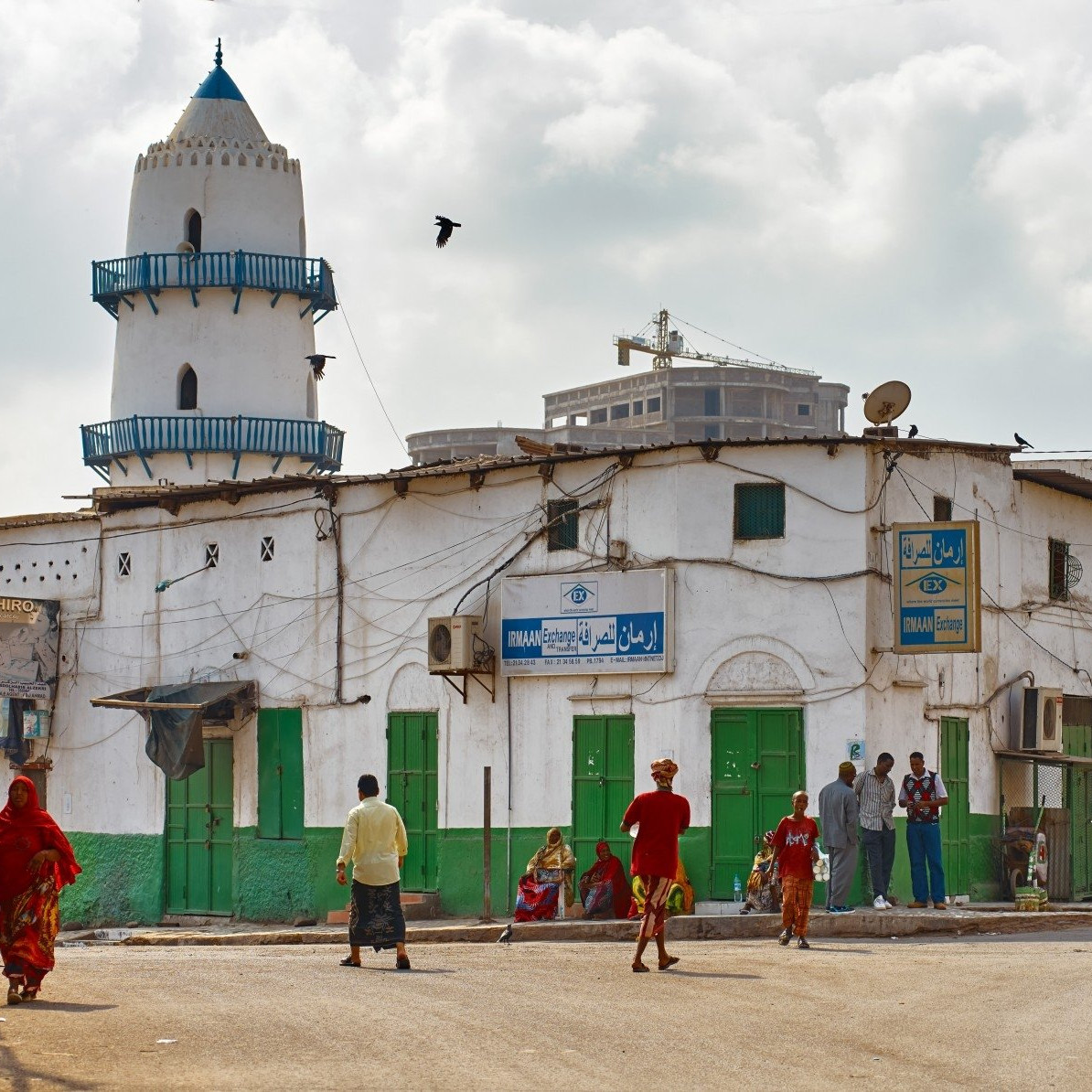
Go to the Hamoudi Mosque
What to expect
Afar, Arabic, Somali and French are the spoken languages in Djibouti. Somali and Afar are the most widely spoken, and Arabic and French serve as the official languages. Although many in the country understand English, Arabic and French phrases will also be useful in Djibouti.
ELECTRICITY
In Djibouti the standard voltage is 220 V and the frequency is 50 Hz. That’s the standard voltage (220-240V) in the UK, Europe, Australia and most of Asia and Africa; If you are traveling from the US you will need an adaptor. Nearly 60% of the population in urban areas has access to electricity.
The Djiboutian franc is the currency in Djibouti. It is recommended to exchange your money (Dollars or Euros preferably) at the airport or the capital, as they aren’t many other authorized exchange centres, banks or ATM’s outside Djibouti City. Credit cards would only be accepted at high-end hotels, shops and restaurant, but rarely anywhere else, therefore cash is recommended. 1 USD equals 177 francs (as of 2023)
Djibouti is very hot and arid, with temperatures averaging around 30-40°C (86-104°F) throughout the year.
Djibouti is one of the safest destinations in Africa. Crime rates are very low, thanks to the military presence in the country. Occasional petty crime occurs in Djibouti City. As with any travel destination, it’s important to take precautions and stay informed about the local situation.
How to get around
Getting around in Djibouti can be challenging due to the country’s limited public transportation options. Taxis are available in larger cities like Djibouti Ville and can be hailed on the street or arranged through your hotel. Rental cars are also available, although driving in Djibouti can be difficult due to the country’s rough terrain and lack of well-maintained roads. Many visitors opt to join a guided tour or hire a private driver to explore the country’s highlights, such as the beautiful Lac Assal or the Goda Mountains. Domestic flights are also available, connecting Djibouti Ville with other major cities in the country.
Visa Policy
Citizens of Singapore and Kenya can visit Djibouti without a visa.
Citizens of all other countries are required to apply for a eVisa in advance. Visitors can apply for a transit visa valid for 3 days or a single entry visit visa valid for 31 days. eVisas are issued only for tourism or commerce purposes. Holders of eVisas can only enter Djibouti through Ambouli International Airport.
Are you a globetrotter? Join our platform and get exclusive travel tips, getaways and more!
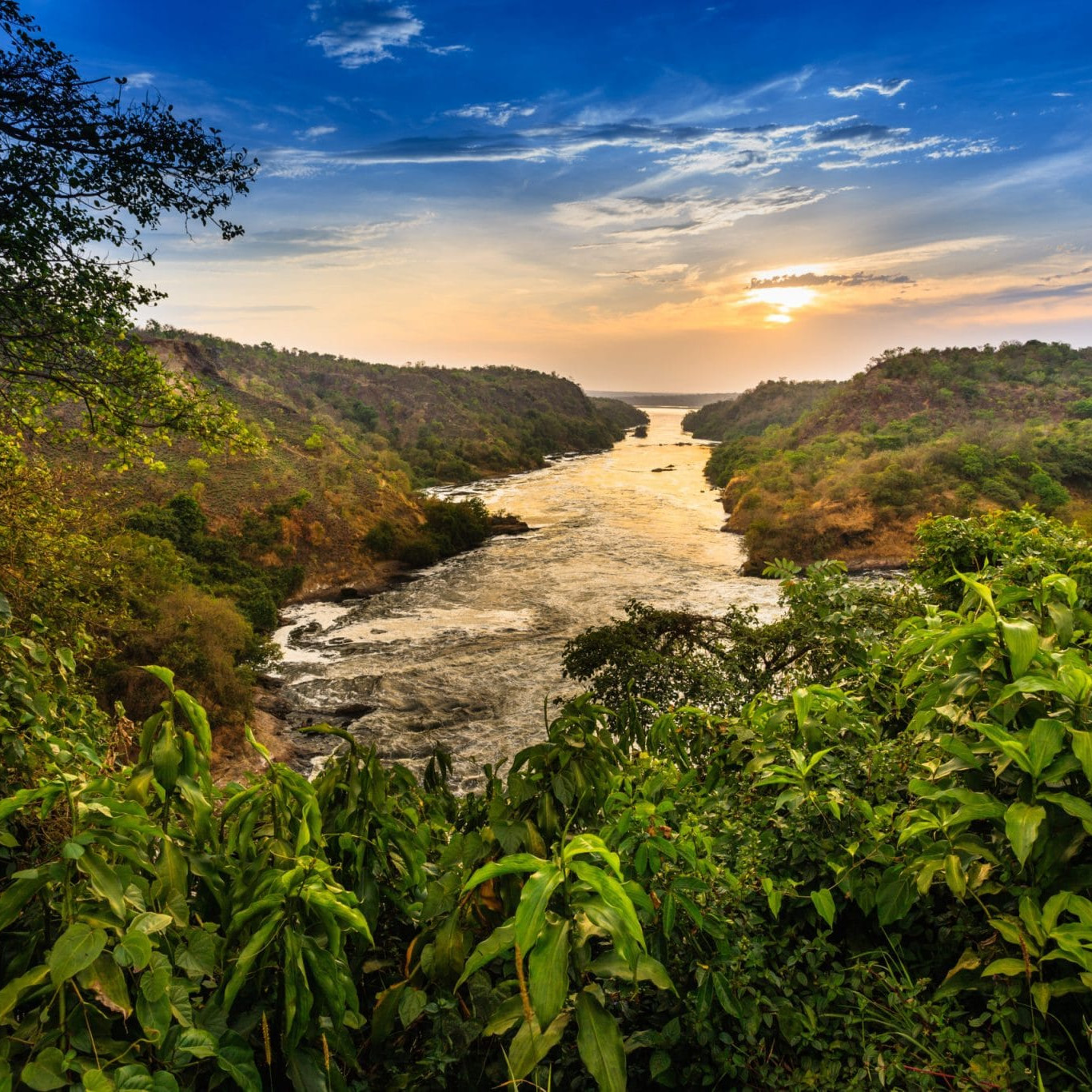
Travel Uganda, a very hospitable destination, with its friendly locals and sunny days all year round. It is also filled with incredible...
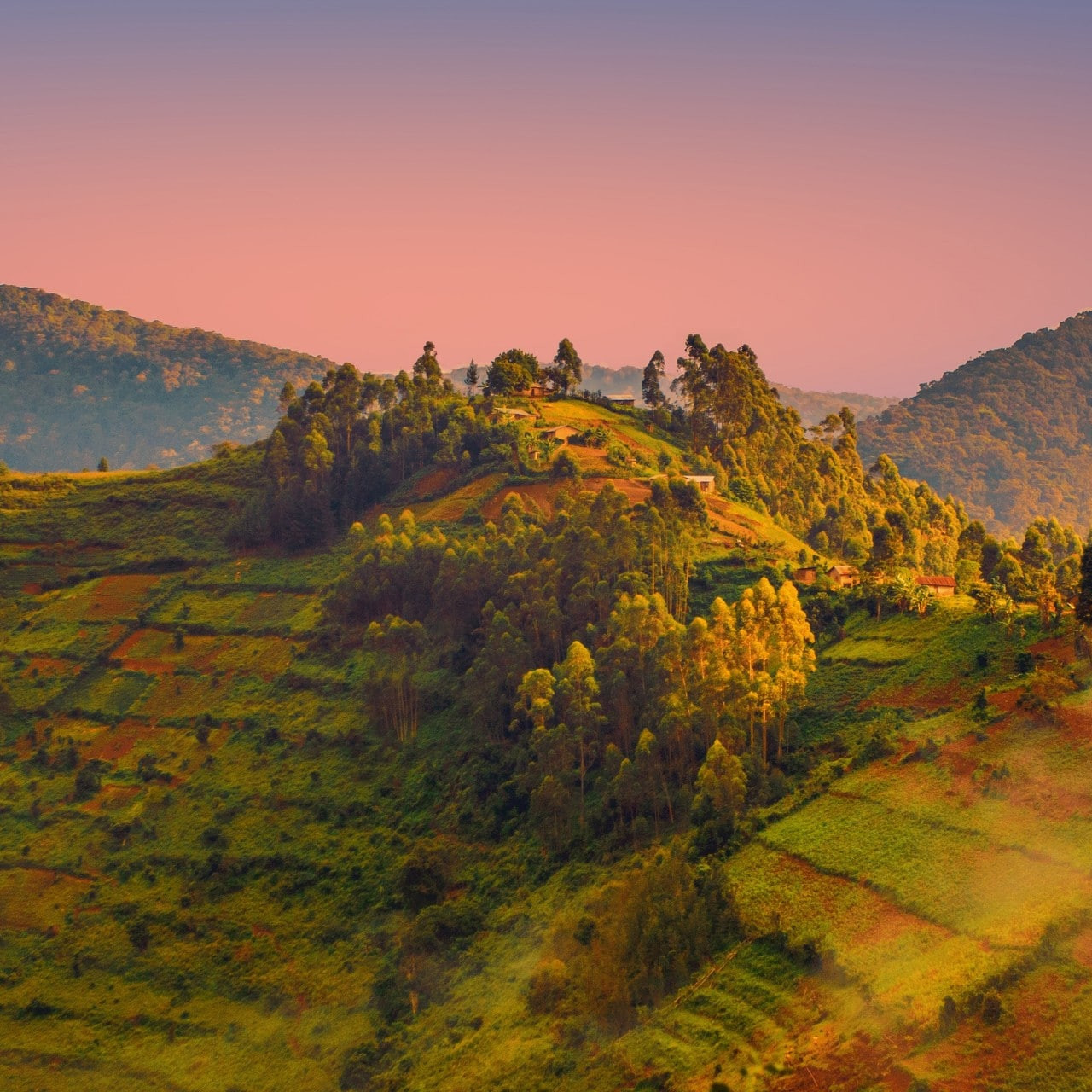
Travel Rwanda, known as the "land of thousand hills". The country is filled with natural wonders, an exciting destination for adventure seekers and those...
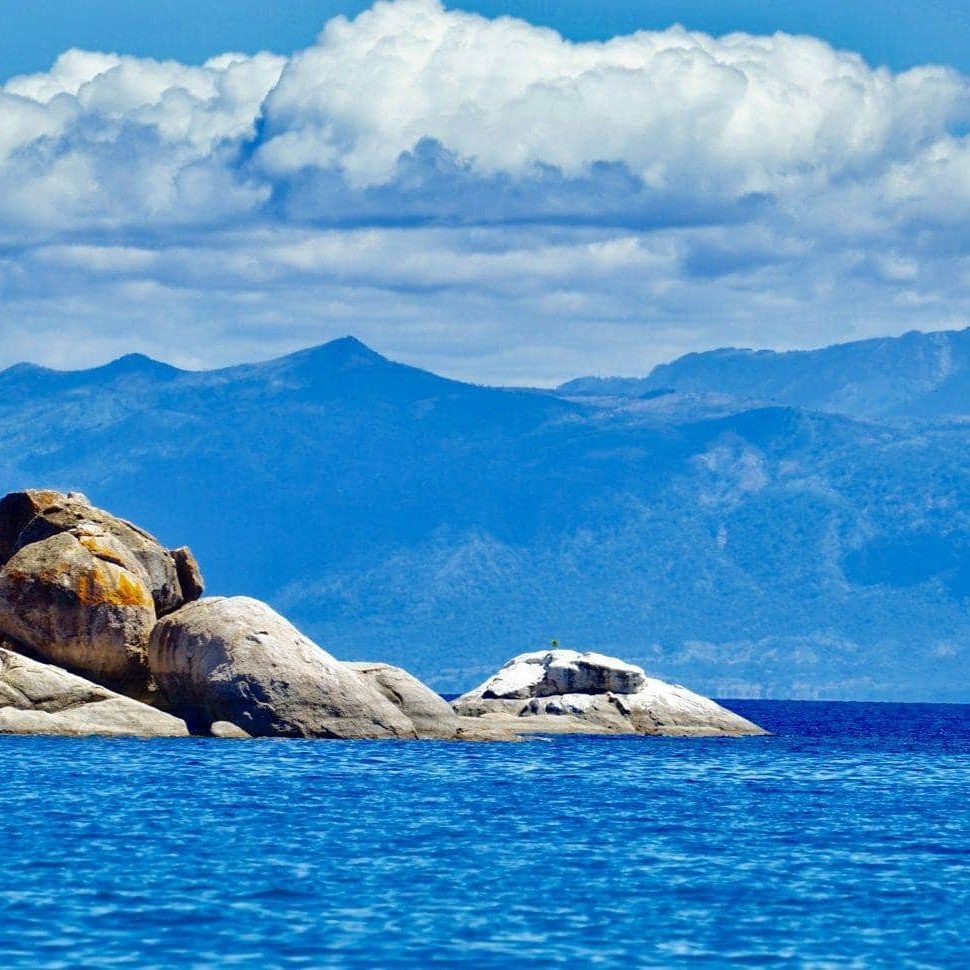
Travel Malawi, a paradise for those looking for beautiful landscapes without the crowd. The country offers natural diversity for animal..
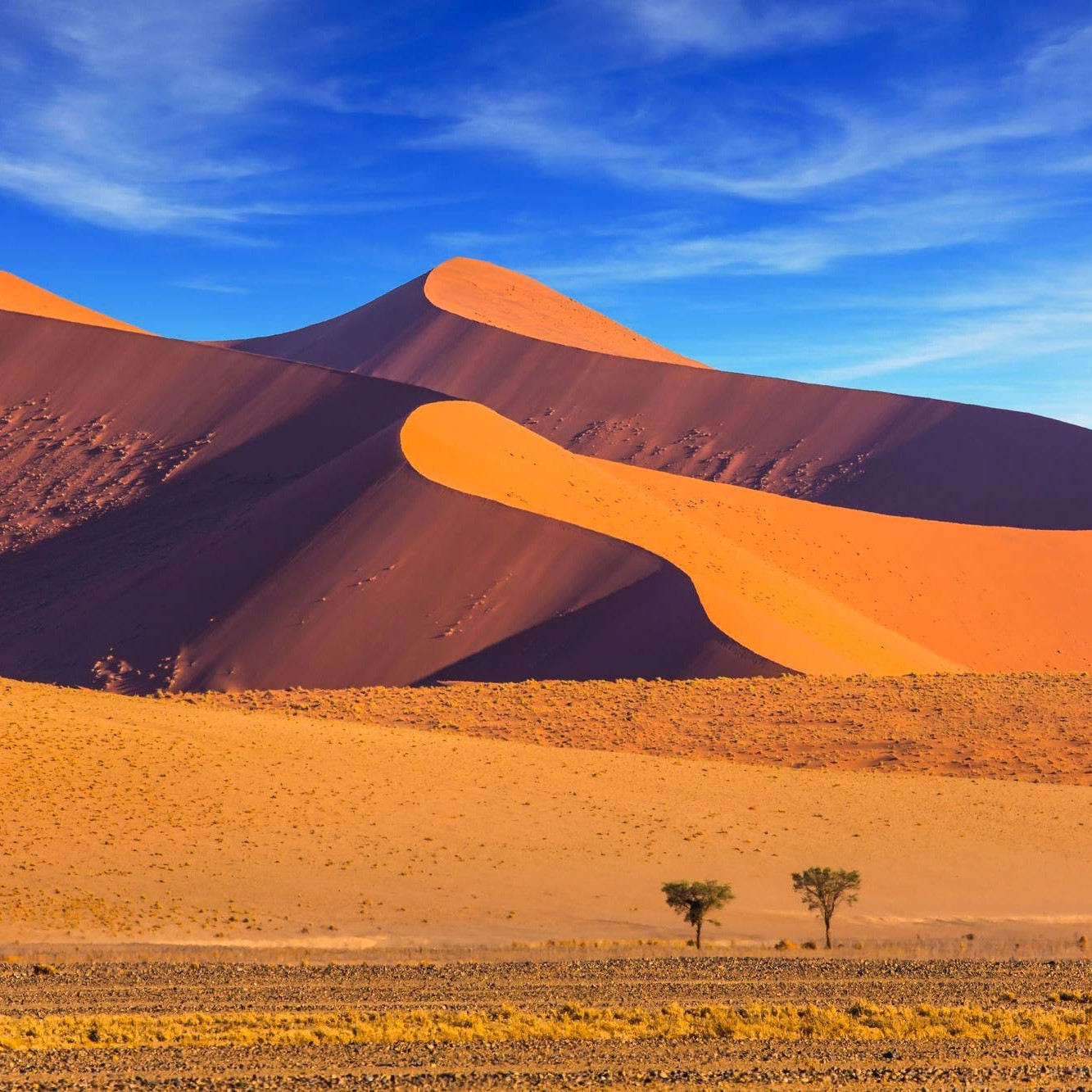
Travel to Namibia, a beautiful and diverse country known for its stunning natural landscapes and wildlife-rich national parks...
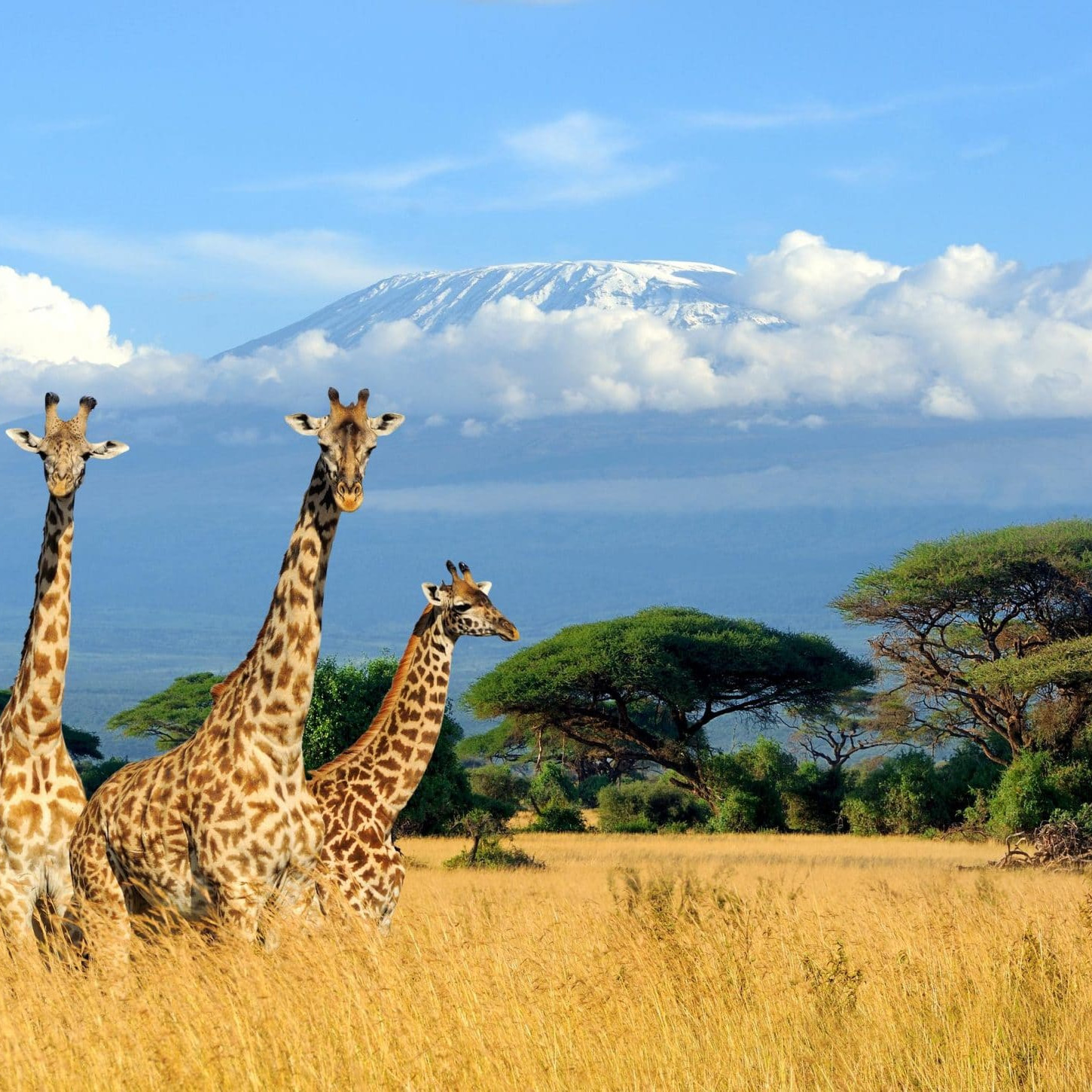
Travel Kenya, from exotic wildlife, being one of the prefered safari destinations in Africa and featuring animal migrations, to pristine..
Travel Uganda, a very hospitable destination, with its friendly locals and sunny days all year…
Travel Rwanda, known as the "land of thousand hills". The country is filled with natural wonders,…
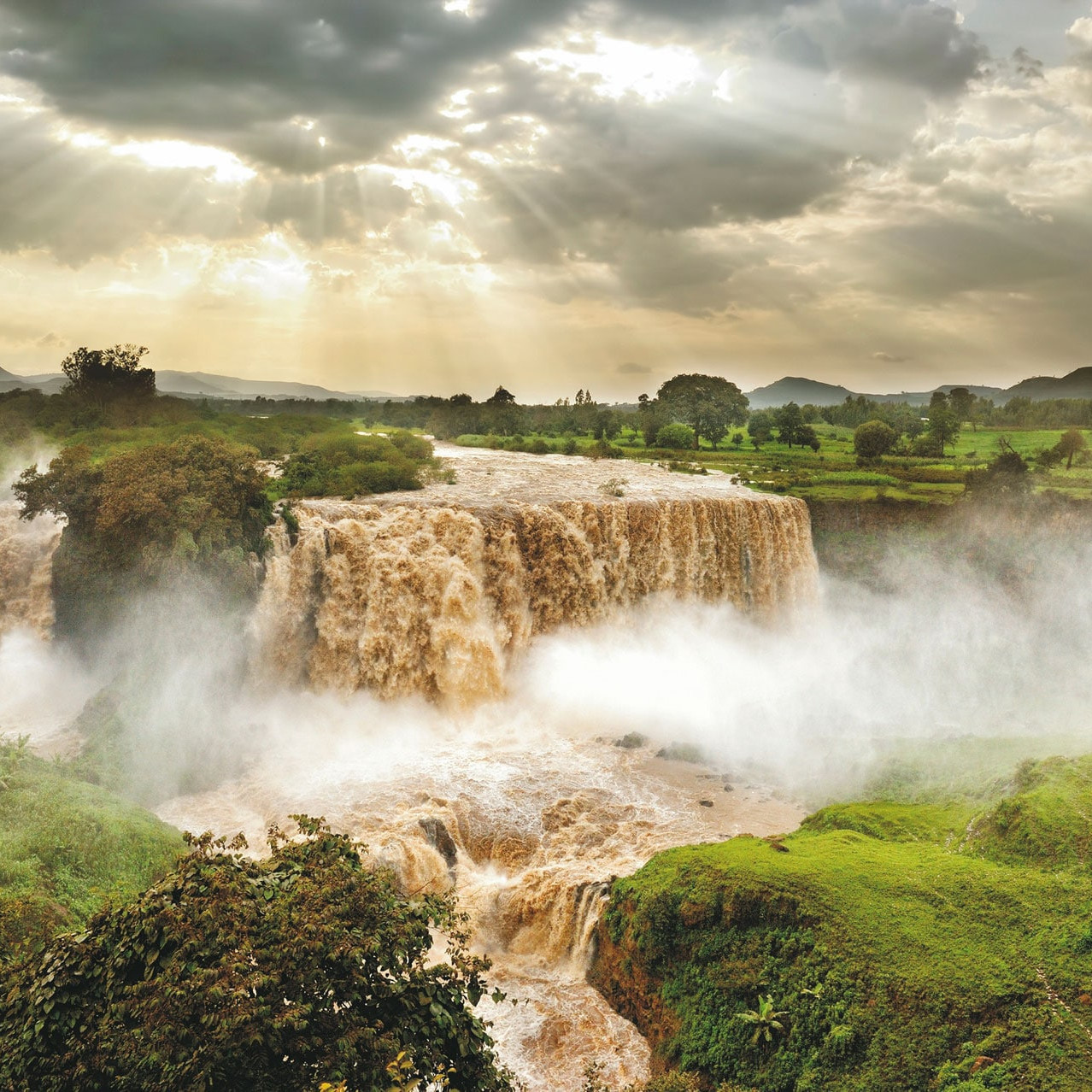
Travel Ethiopia and discover the birthplace of coffee. The country is home to a rich history and…
Privacy Preference Center
Privacy preferences.
- Countries visited: 115
- Currently in : Singapore 🇸🇬
- Partner with us
- SOLO FEMALE TRAVELERS COMMUNITY
Disclaimer: This page may contain affiliate links. Please see our disclaimer policy here . Never leave without travel insurance .
Things to do in Djibouti and a 4 day itinerary
This post was first written in 2015 and updated in 2018.
Looking for things to do in Djibouti but don’t know where to start? Tourism in Djibouti is scarce but the country has so many tourist attractions it is a shame not more people visit. Let me help you plan your trip with this guide which also includes a 4 day itinerary and a list of all the attractions in Djibouti that you cannot miss. Ready to discover this much unknown country featured in the Least Visited Countries in the World ? Follow me for an awesome trip to the Horn of Africa and get that super rare passport stamp .
Where is Djibouti
When I mention Djibouti as one of my most favorite places the usual answer I get is, “where is Djibouti?”
Most people cannot locate it on a map, they can’t even tell what continent it is in. So let’s start there.
Djibouti is located in the Horn of Africa, sandwiched between Ethiopia, Somaliland and Eritrea and facing the Gulf of Aden. Below is a map of Djibouti showing where it is.
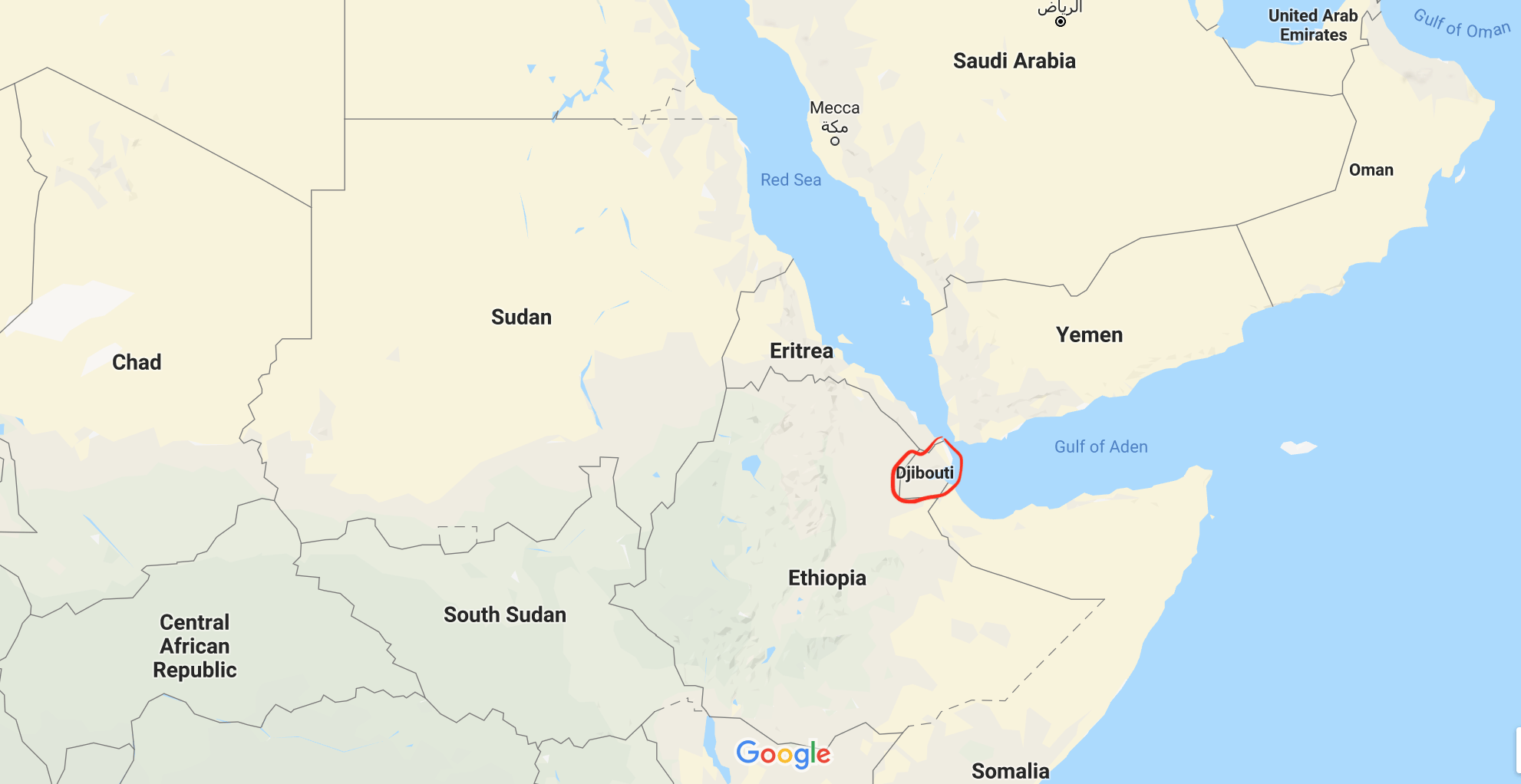
The most remarkable part of Djibouti’s past is its French colonial times which left an imprint in the country and its language. If you speak French, you will be in luck as English is not widely spoken. The French acquired the colony then named French Somalia, as a strategic point of passage via the Suez Canal and through an agreement signed by the Issa Somali and the Afar Sultans who inhabited the area.
Djibouti was a french colony from the 19th century until 1977 when the country voted for independence after having voted no to joining Somalia. Independence was finally granted after several referendums. Every time, the Issa Somali would vote for independence with the final intent of joining Somali and the Afar would vote to say with France.
Civil War ensured independence when the party in government declared it was the sole legal government party. Peace was finally signed in 1994.
Since 2001, Djibouti has become a safe and secure military base for most powers, especially for the US and its Camp Lemonnier , a United States Naval Expeditionary Base and the country’s only permanent base in Africa. Japan also opened a base around the same time. There is military presence from several other countries like Sweden, Germany and Spain.
Check out my post on Fun facts about Djibouti for a few more fascinating things about the country.
Things to do in Djibouti
Djibouti is a very small country but the roads are limited so you may find yourself driving cross-country on the desert sand following a GPS or relying on your driver’s sixth sense. Tourism in Djibouti is definitively of the adventure type.
But before we set off, here’s a map of Djibouti with all the main tourist sites and places of interest marked. There are not really a lot of cities in Djibouti so the map does not have a lot of names marked.
Explore the Capital of Djibouti, Djibouti City
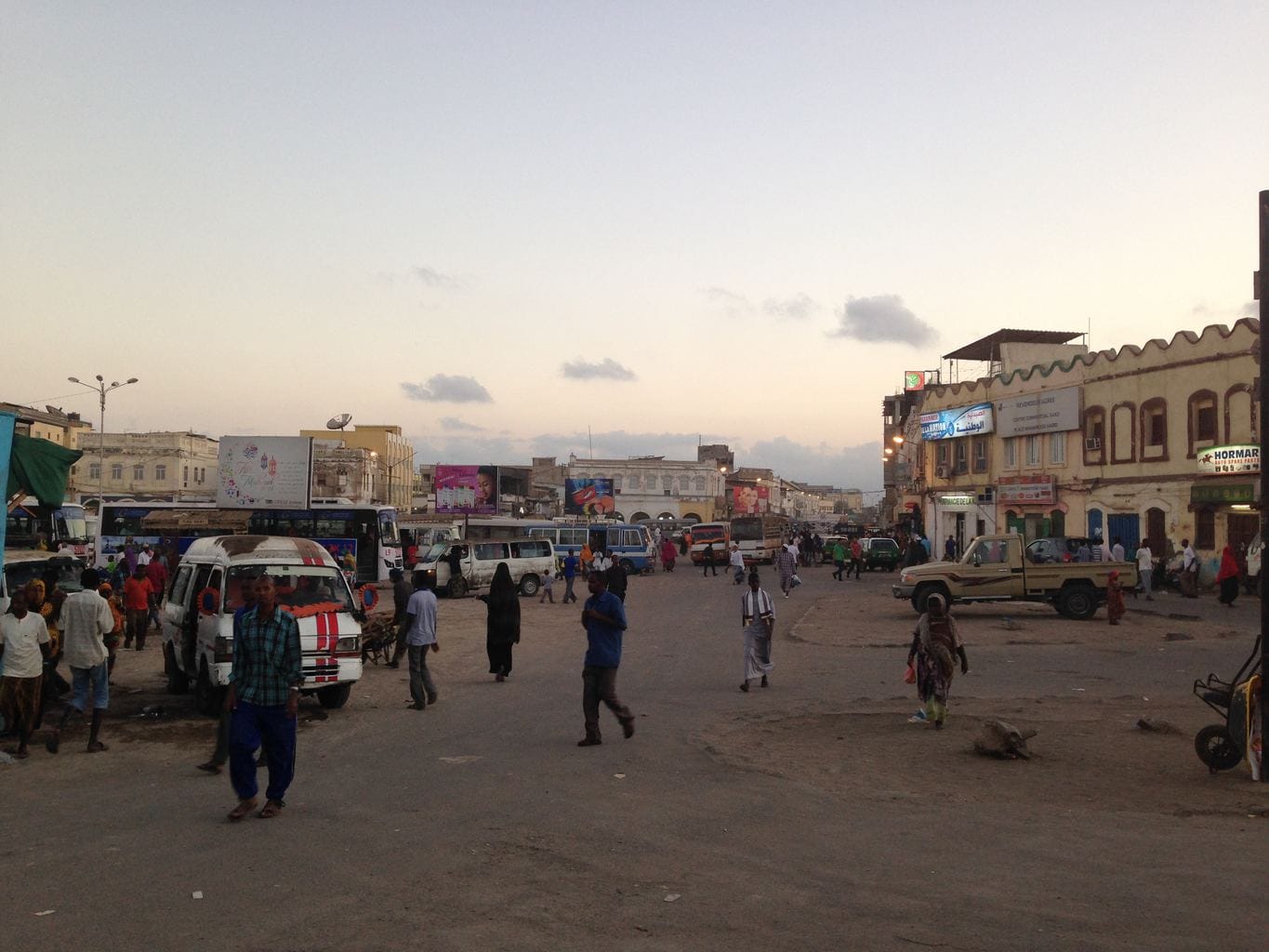
One of the best things to do in Djibouti is exploring the capital of the same name. The city is not large and it may take you at most an hour to walk all the interesting quarters. You should visit the European and the Arab quarters both of which are adjacent.
The city’s European Quarter is a mix of French colonialism and moorish architecture and it is one of Djibouti’s landmark area. Expect to feel like at a run-down version of Morocco. Buildings are colorful and would have been stunning at their time but they look forgotten. I felt similarly to when in Cuba.
People sit on the streets, chat, enjoy tea, chew qat and simply see the world go by. Streets are narrow and there is little motorized traffic. Life seems to go by slowly in this part of town. There are a variety of stores open selling all sorts of items, don’t expect any international brand.
If you follow the noise of the traffic you will eventually reach Place Mahmoud Harbi or Place Rimbaud where the city’s most iconic building, and Djibouti’s most important landmark is: the mosque. The sound of the call to prayer is also a good reference to follow if you are wandering the streets at that time. The large square looks more like a combination of a bus station and an open market. It is the border between the European and the African Quarters.
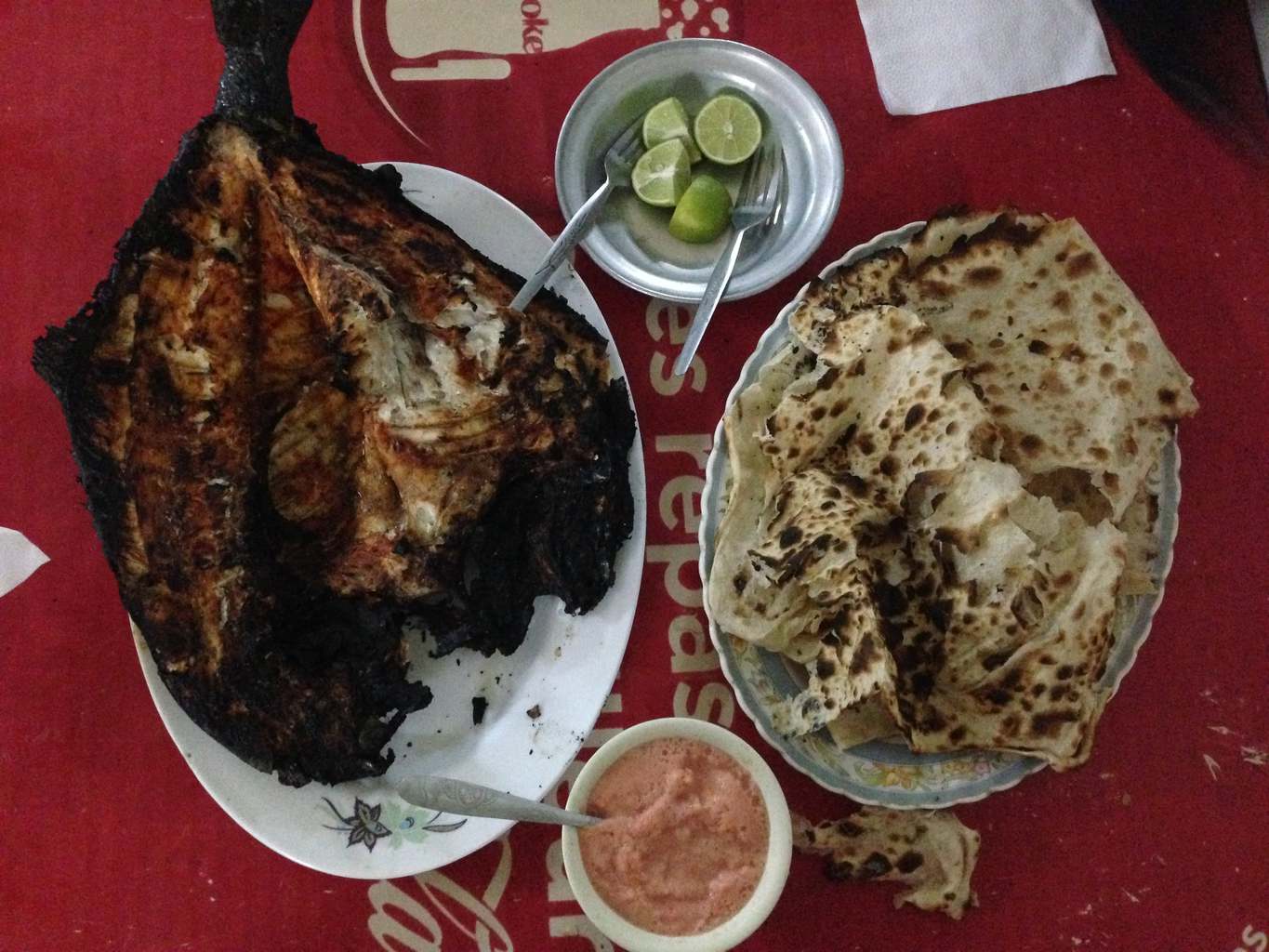
The African Quarter is a large sprawl of tin-roofed huts lined up on barren and chaotic streets. Goats and children room freely in equal measure and the streets have barely any public lighting relying instead on the light in people’s homes.
The streets used to be paved but have now been covered by layer after layer of dust and you can no longer see the pavement. I found an old photo from a few decades before that showed how the square and the quarter used to look and it gave a good idea as to the level of abandonment. The nature of the desert had taken over.
Alie Sabieh
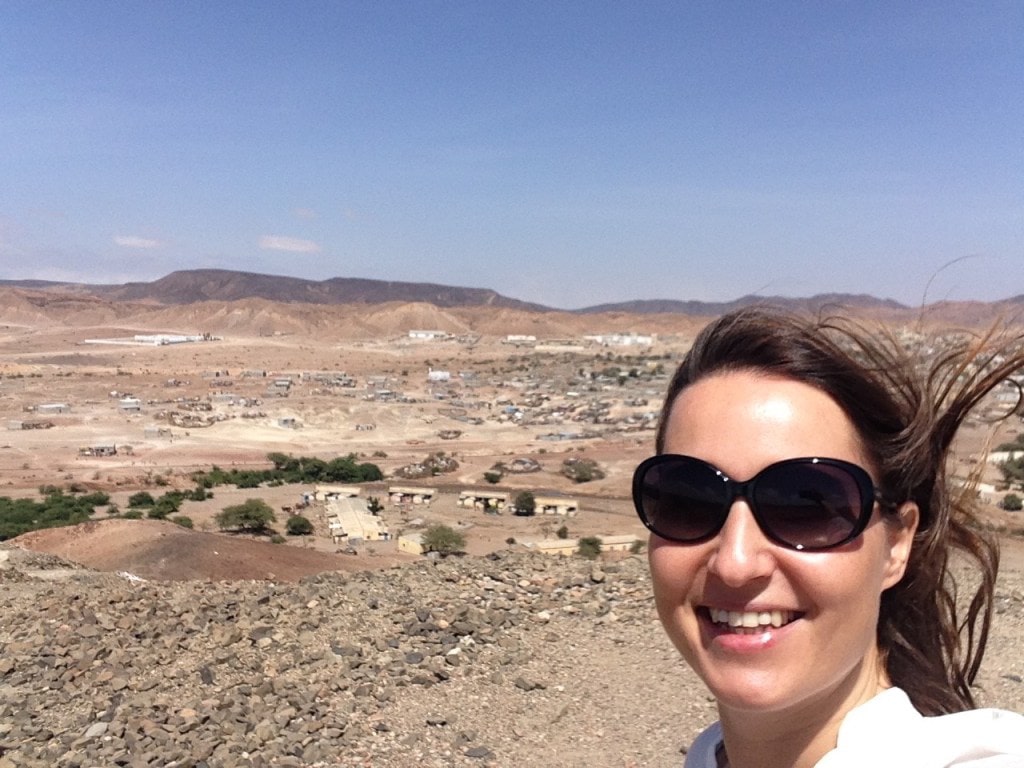
Ali Sabieh is a town half way from Djibouti to Lake Abbe so it makes for a good lunch spot. The town has has one of the largest Qat markets in Djibouti and is the last pit stop to buy water or any other provisions. If you ever wanted to get up and close to qat or even buy some, this is the place. But I warn you, it is pretty disgusting.
This is a relatively solid town, the country’s second largest, with a few facilities, schools and the main railway station. Years ago, the railway used to connect Addis Ababa with Djibouti. I was told that the government stopped fixing the rails and trains because this way there is a local thriving business to transport everything by truck into port. However, trains have started to run again and one can travel from Addis Ababa to Djibouti by rail.
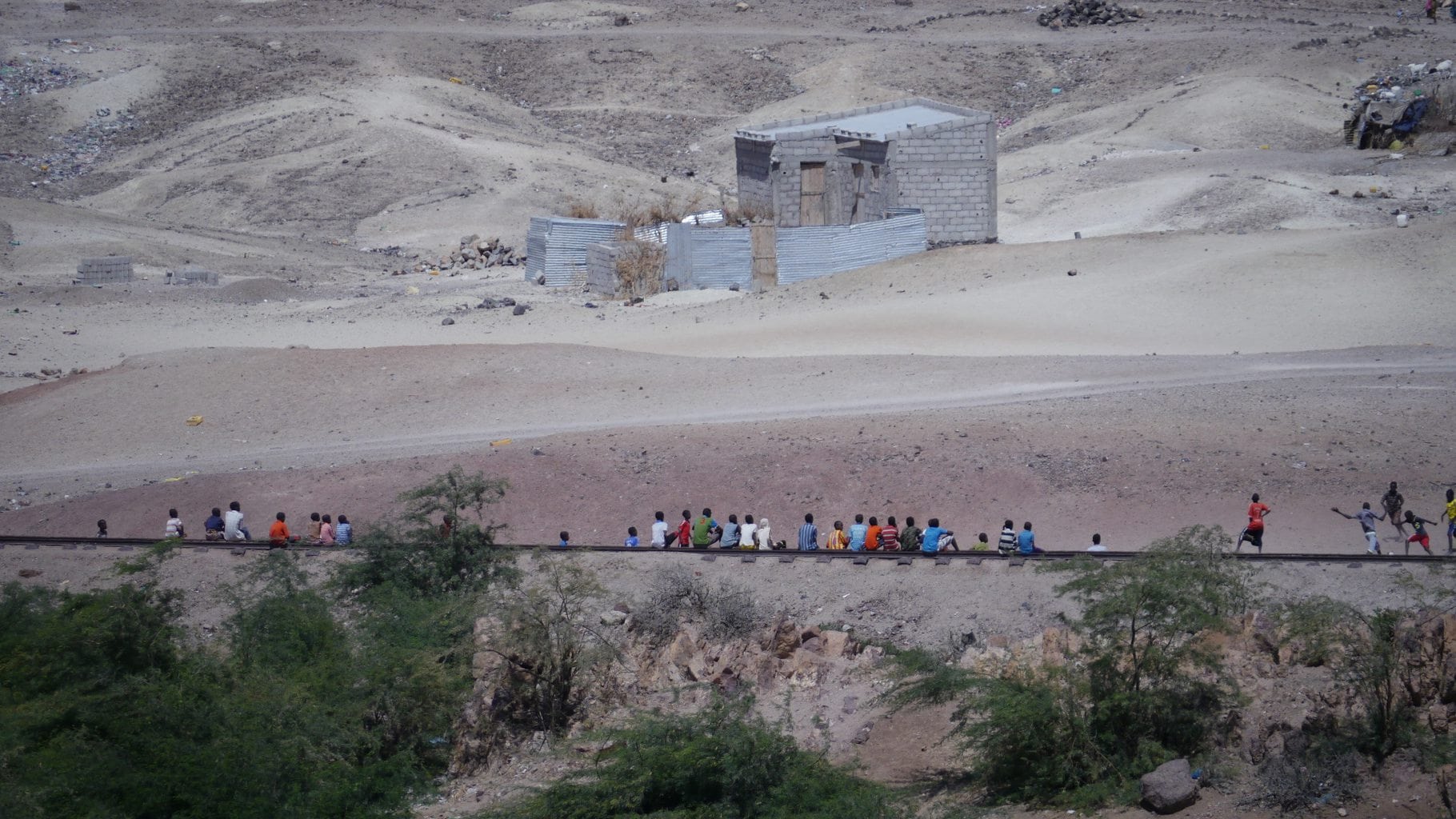
Ali Sabieh is remarkably run-down with the dusty, grey-brown-red colors of this part of Africa dominating the landscapes. It has its own charm if you look closely but I could not imagine spending any time here.
There is a refugee camp manned by the UN and a few NGOs. The sun is unforgiving without any shade to protect yourself from. From up the hill where the telecoms tower is you will get sweeping views of the entire area as far as the eye can see. By the railway, local kids play football using the rails as seats. I see a few Barca t-shirts around. Look up the mountain for the emblem of Djibouti carved on its face.
Moucha Island
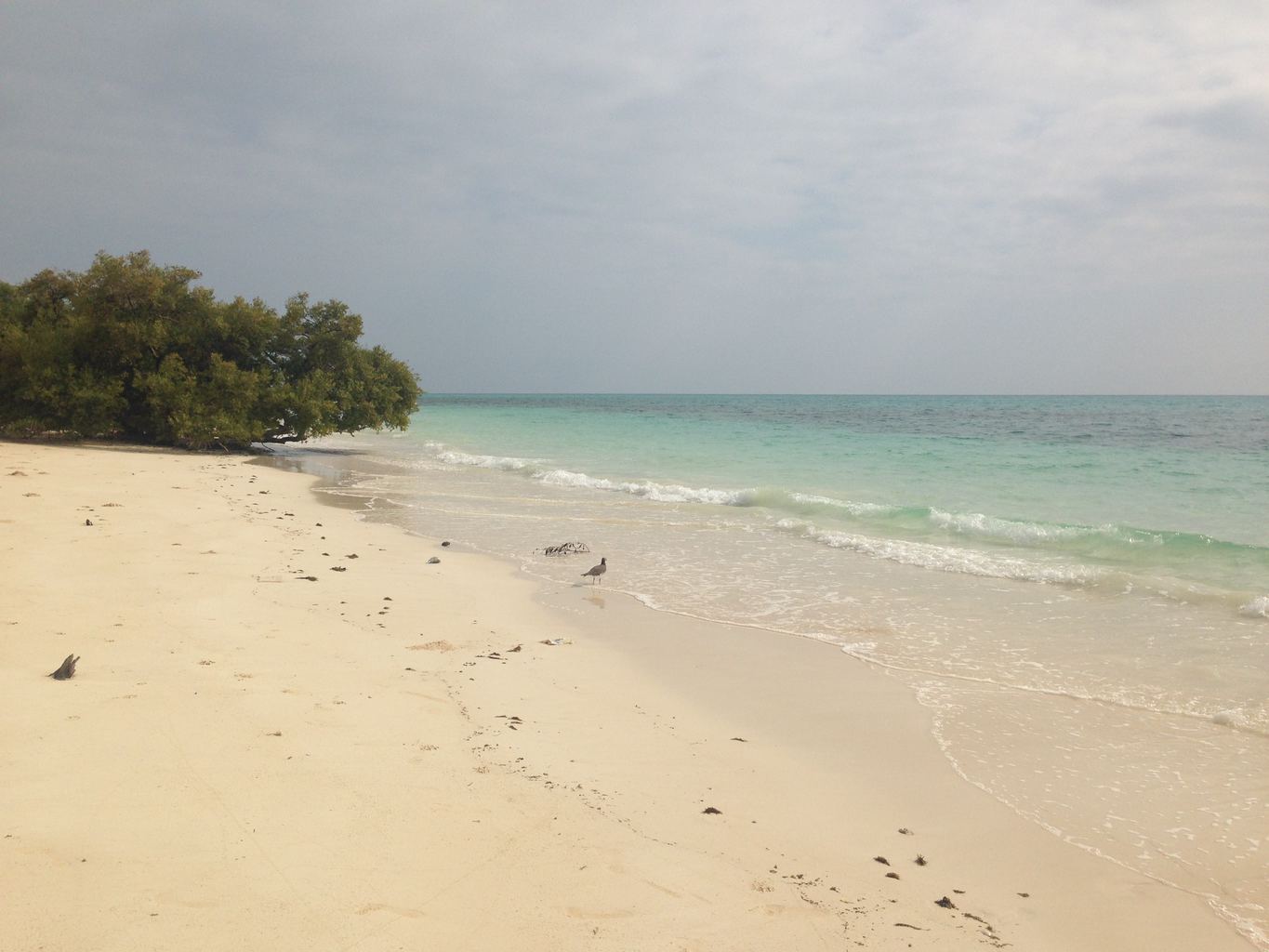
Only a 30min ride on relatively calm waters, this coral islands on the Gulf of Tadjoura provides a relatively quiet beach with limited facilities, people and plenty of turquoise water. There are officially only 20 inhabitants but locals are known to come visit in the summer months.
An Ethiopian company is building a beach club on the island which may attract some visitors. On the day I was there, we saw a few Asian tourists disembark from a boat and leave shortly after. Walk across the island on crusty sand that looks like it has been baked in the oven. Be sure to wear shoes, the sand will get extremely hot very early in the morning. On one side of the island you can sail through mangroves on your motorboat.
Tour the island to the Beach Resort on the other side and you can relax on the sun beds and umbrellas. Most likely you will have it all to yourself. If you see a relatively larger sail boat it may be that of Spanish national, Vincent, the only live aboard dive boat in the country.
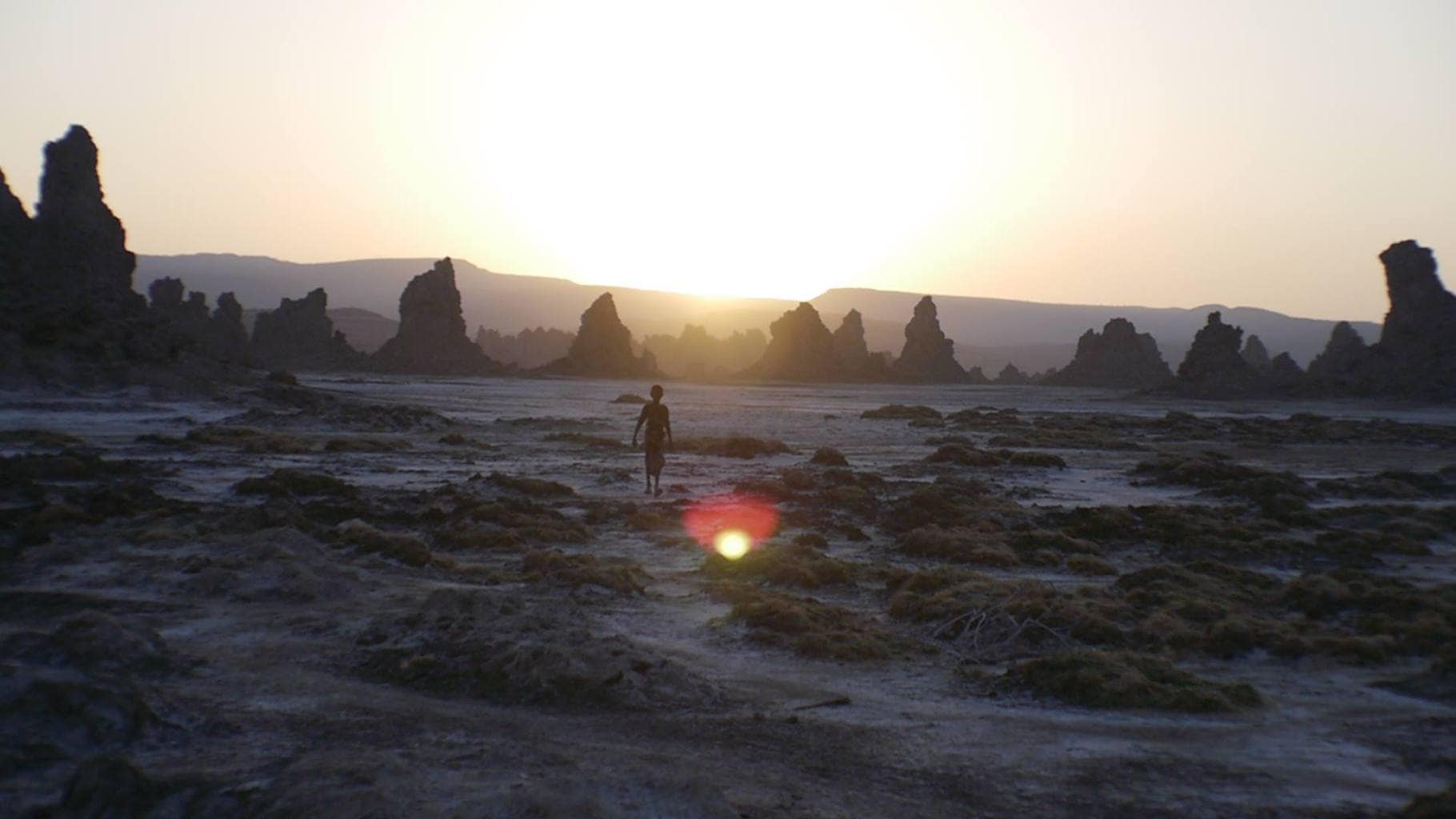
Lake Abbe is a salt lake at the confluence of three Earth crusts pulling away. It is fed by the Awash River and surrounded by extinct volcanoes and depressions. Geologically speaking, it is a marvel and the set of the creation of a new ocean. The three plates pulling apart have created a thin crust that will eventually break and separate the Horn of Africa into its own island. Lake Abbe is part of this and is connected to other 5 lakes. It is a fascinating story.
The most recognisable elements of the Lake Abbe are the chimneys which were created when the Ethiopian government decided to build a damn which slowly drain the lake on their side. Without the water, the mangroves were covered by limestone and bacteria. The steam coming out of the chimneys comes from the underground hot springs.
The bacteria that inhabit the lake have helped grow a steady population of worms, which attract pink flamingos. In the early morning, just after sunrise, we walk for an hour through the slippery mud and the quick sands to reach the lakeshore and observe these elegant creatures.
Read more about in my in-depth review of Lake Abbe
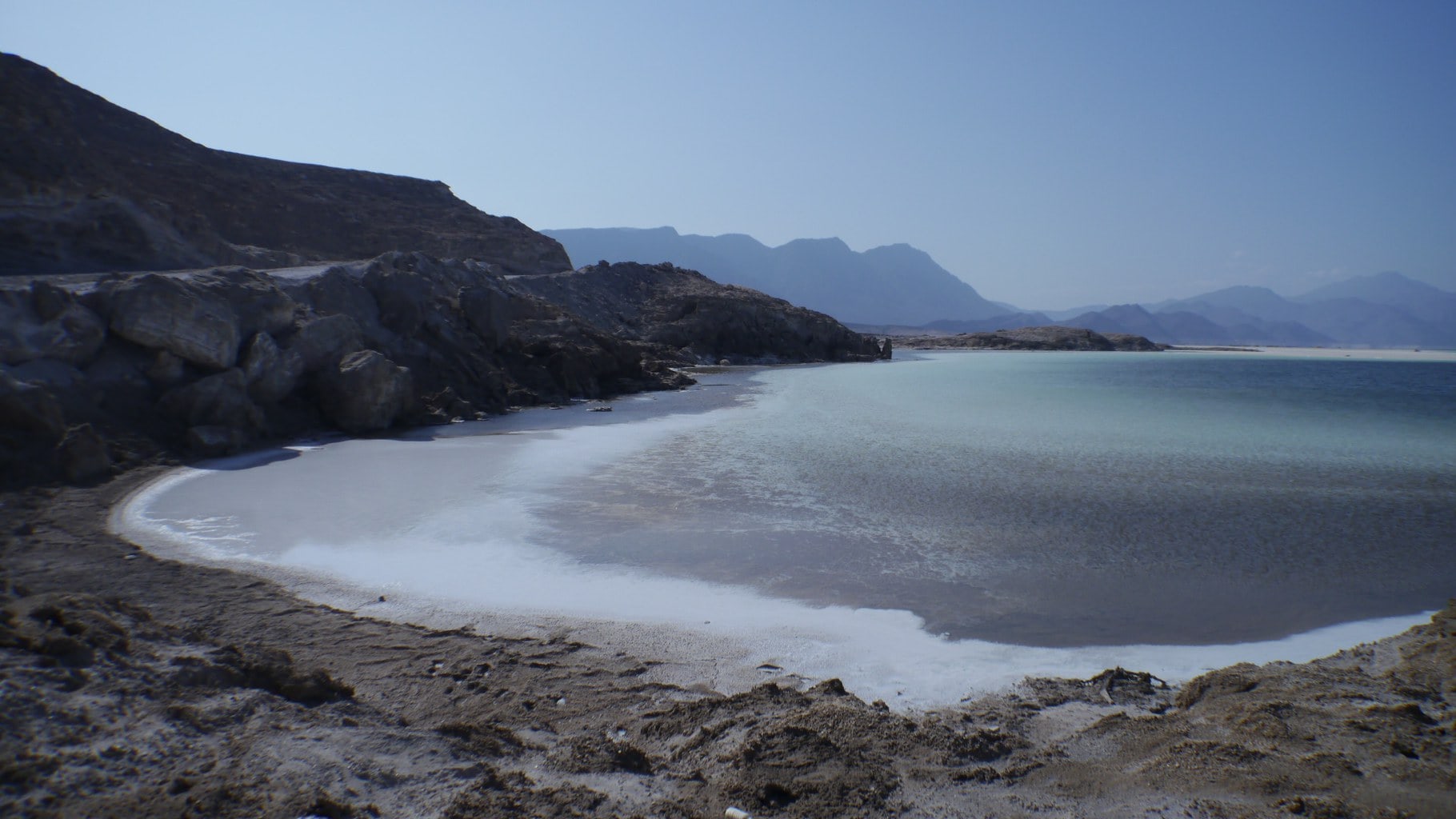
Lake Assal is the saltiest lake outside of Antarctica. Temperatures are extremely high with maximums regularly above the 40 Celsius mark. With this heat, the water would have evaporated but the lake is constantly being replenished by underground streams. You can read more about my visit to Lake Assal here .
The lake has all the colors from green, to brown, black, blue and white made of all the chemicals and particulates in the water.
No matter how isolated and detached from civilization this part of the world is, stalls with goods for sale are still available. You will be able to buy items made of salt including goats head bones covered in salt or just Djibouti salt for cooking.
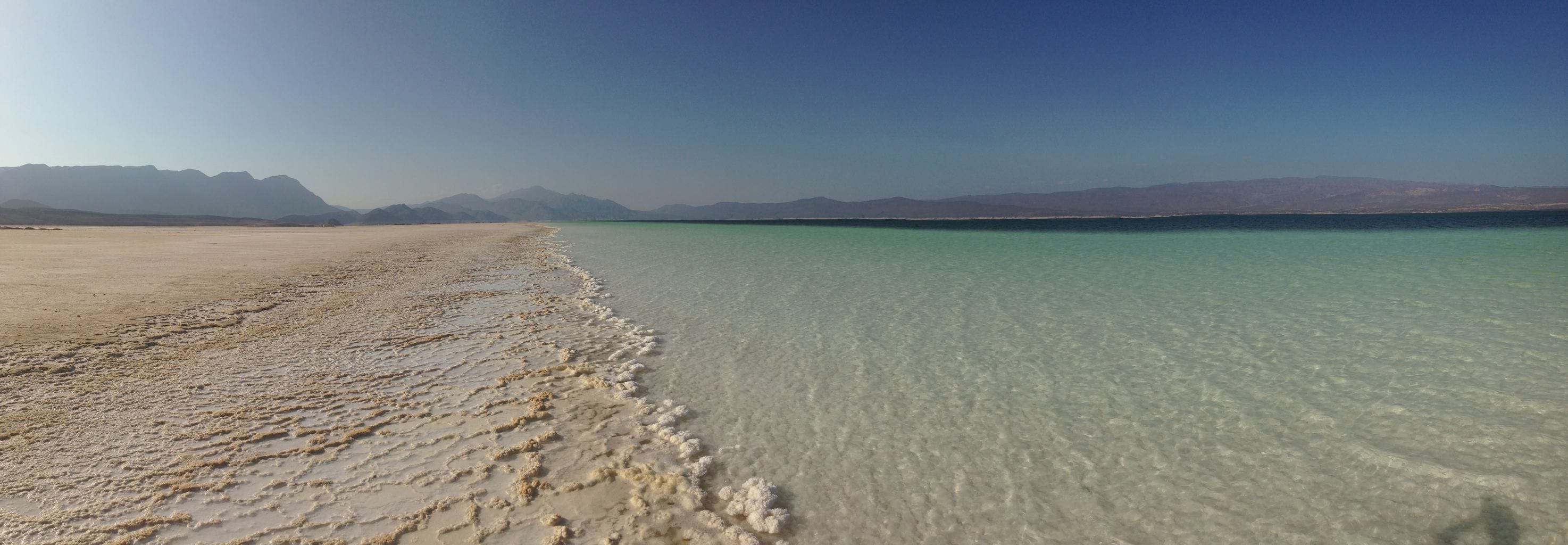
Djibouti’s Whale shark diving
If you come to Djibouti between mid-October and February, you will be able to swim with whale sharks on scheduled trips on Friday and Saturday. Check out this video from a CNN Inside Africa program. Try Dolphin Services .
Whale sharks can only be found in some parts of the world and are seasonally spotted when they come to the warmer waters to breed, but are otherwise found in colder waters away from humans. Swimming with them is an exhilarating experience and one of the most incredible wildlife encounters , much like jumping in the open waters of Tonga to swim with humpback whales .
Swimming with whale sharks in Djibouti happens in the open water around 2h drive from Djibouti and you may take breaks between swims to have a picnic on the sand before going back in to try your luck. While finding whale sharks is not guaranteed, you have a good chance of spotting them and swimming with whale sharks in Djibouti is probably a much more peaceful experience as tourism in Djibouti is underdeveloped.
Give khat a try
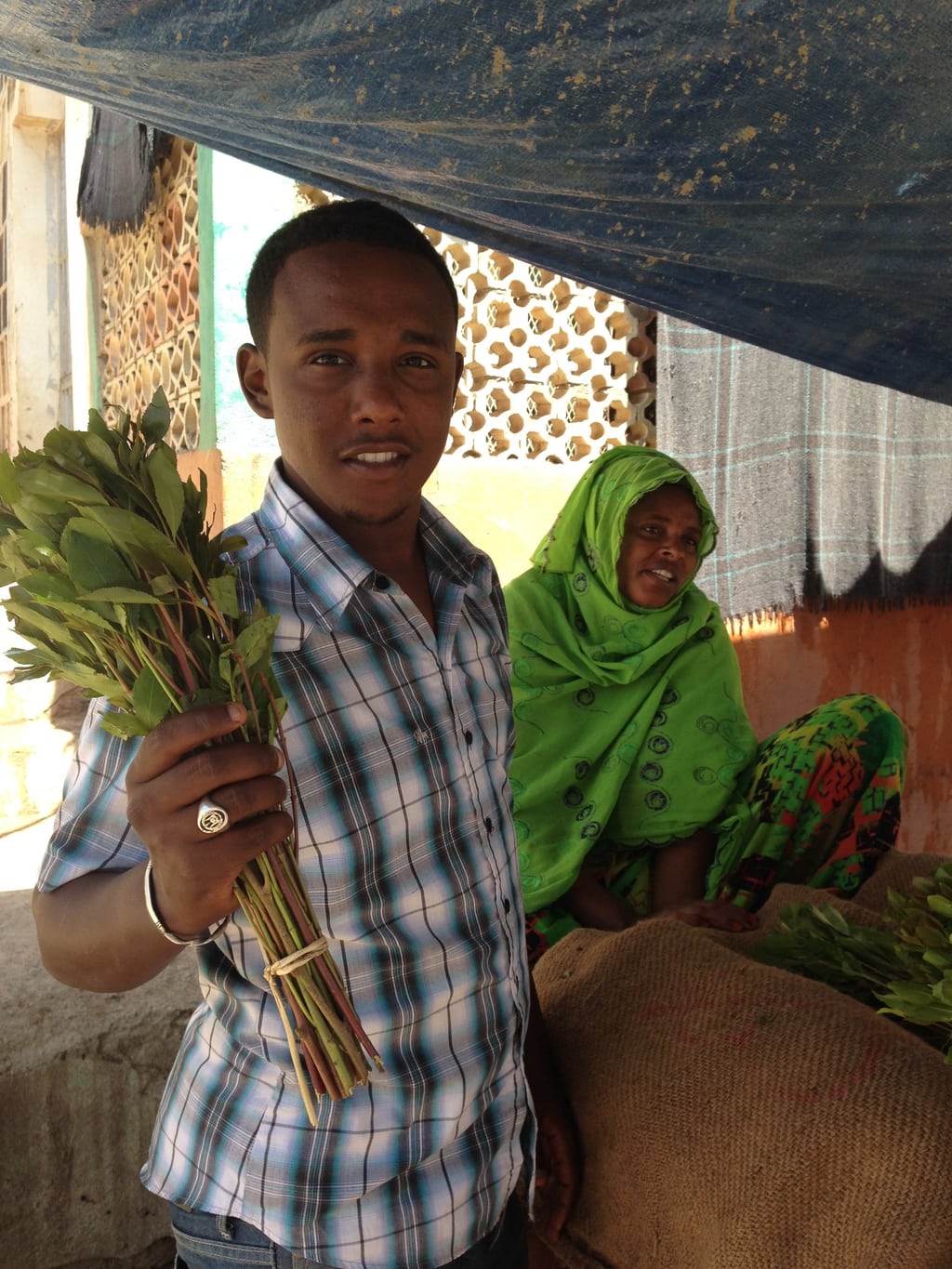
If you have been to the Yemen you will already have heard about khat, also spelled qat. This plant is chewed there as much as it is chewed in Djibouti, Somalia and some parts of Ethiopia. In Yemen, it is pervasive and life pretty much stops in the afternoon when everybody is mildly high on the effects of khat.
Khat contains an amphetamine component that is made of cause euphoria, loss of appetite and excitement. The plant is banned in most countries and is considered a drug since the World Health Organisation classified it as a drug of abuse in 1980.
While it may be less obvious in Djibouti city, you will have no troubles finding khat in the towns, where the vendors will have stacks of the bright green leafy plant on their wooden stalls and locals will chew it nonstop from after lunch till late at night. The plant is chewed while green and has a truly horrible taste in my opinion 🙂
Try Yemeni fish
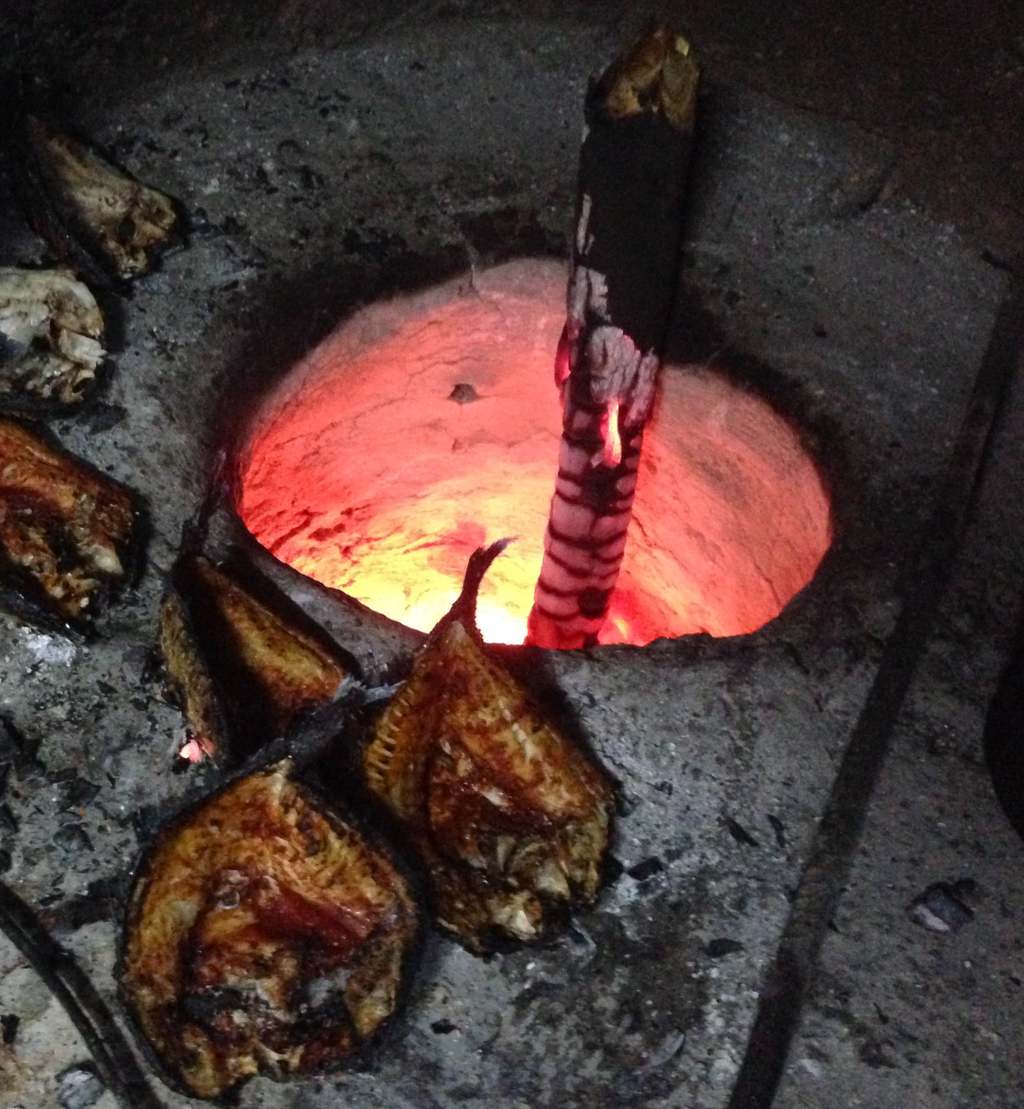
Strange but one of Djibouti’s best and most famous food hails from Yemen and is a whole fish open up, marinated with spices, flattened up and cooked in a tandoori oven, Indian-style. Here you can see the influences that through the years have left a mark on the country.
The fish is delicious and usually served with a side of spicy tomato sauce to dip it in as it can be quite dry and of course bread which is also conveniently cooked on the tandoor.
Chat with the Western armies

Djibouti is the major army base in Africa for many of the European countries, the US and Japan. While the US has its own separate and inaccessible base and so does the Japanese, most of the personnel from the European armies deployed in the area are actually staying at the luxury hotels.
One of the most interesting things to do in Djibouti is to have a chat with some of them. They are easy to spot and might welcome a chat with some new people. I found it quite funny that the local brand of yogurt in Spain was available at the Kempinski wehre Spanish renoated through the corridors.
Conversely, you might find them to be far less friendly if you try to approach any of the vessels in the port on your way to Moucha Island. We were escorted by a speedboat filled with heavily armed military personnel as we left the port because one of the military vessels from the Spanish army was anchored in port and we came too close to it.
Have a walk around the local port in Djibouti
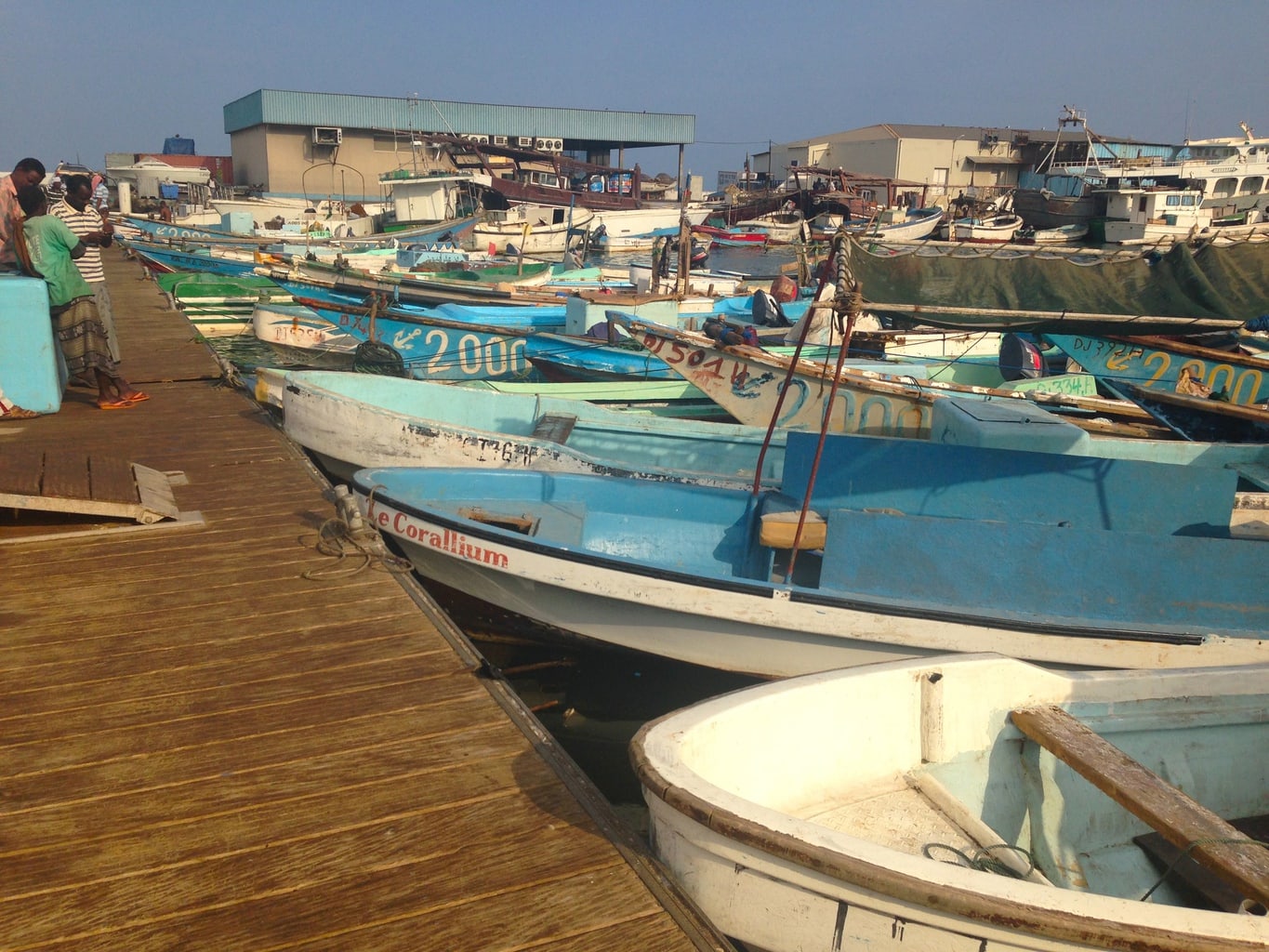
Djibouti is slated to become a major port in the area. It already is and Chinese investment is only expanding it further. However, the local port where the fishermen have their boats, is a completely different story and provides a genuine and authentic look into local life. This is not a tourist attraction per se or one of the most famous things to do in Djibouti but, in my opinion, it was one of the most interesting visits, despite it wasn’t actually an official part of our sightseeing tour of Djibouti but the embarkation point for out excursion to Moucha Island.
It is also rumoured that these fishermen, heavily armed with weapons, are the actual Somali pirates that frighten entire countries. Perhaps an urban legend made up by our guide.
Visit Djibouti’s grand canyon
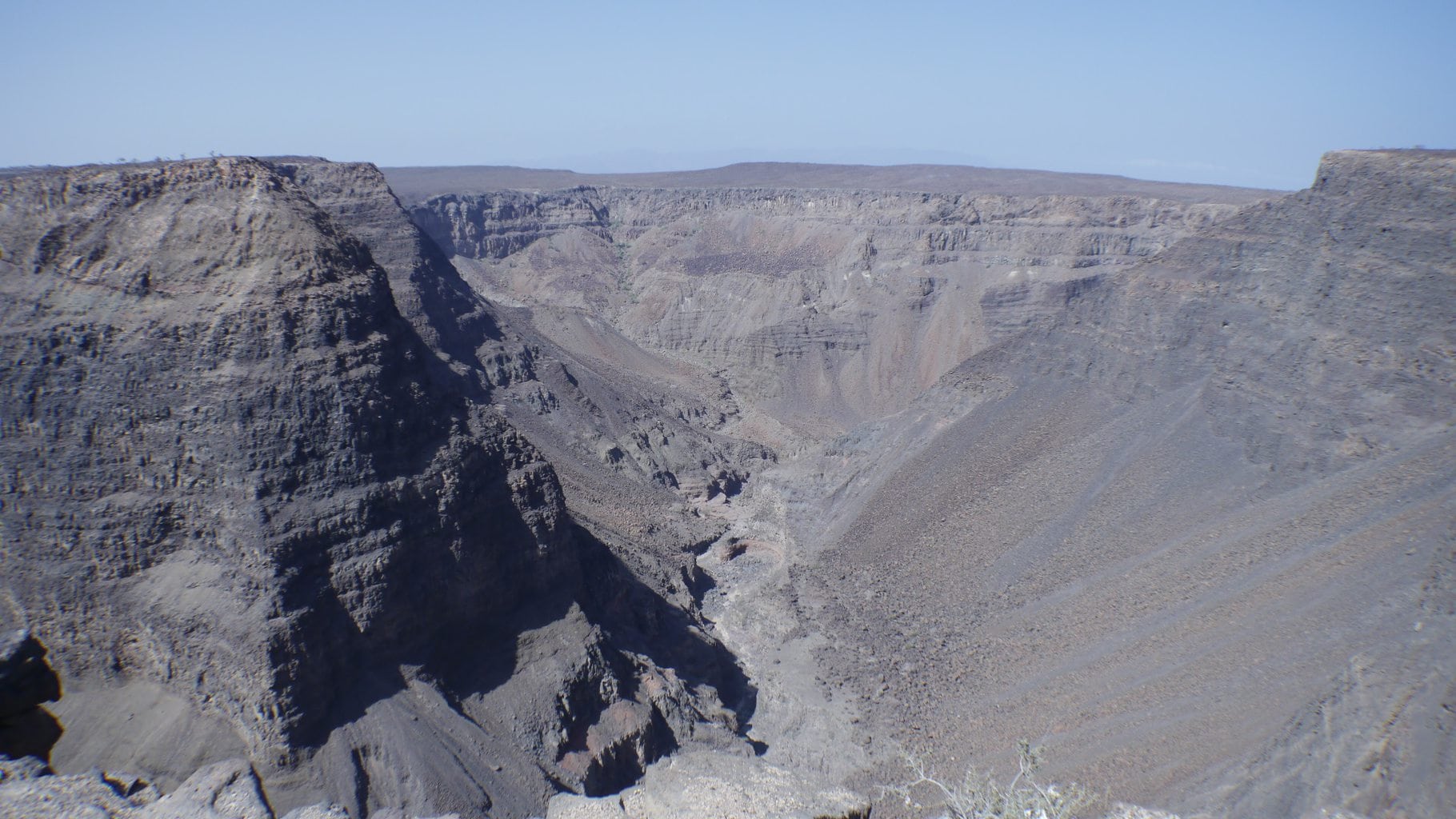
On your way lo Lake Abbe you are likely going to stop for a lookout point into the local version of the grand canyon. I was quite impressed to see it, and although we only could take a look from above, it was quite a stunning landscape, completely barren and rocky, made of the same grey, burgundy and brown of the earth in Djibouti.
Abourma rock art site and Petroglyphs
Djibouti has a recently discovered rock art site which is only accessible on foot and has rock art from Neolithic time. The site is included in the tentative list of UNESCO sites and extends over an area of three kilometres in the rocky mountains of the north of Djibouti. You will need a guide and a 4×4 to access it and should hire one form the local village of Randa, nearby, because that is where most of the local staff helping the French who discovered the site are from.
How long should you spend in Djibouti
Despite there are a few airlines landing in Djibouti, there aren’t daily connections from Dubai so the airline schedules and connections from your base are likely to determine how long you will be spending in Djibouti. Spending 4 days in Djibouti makes a lot of sense and is the choice for most travelers, reason why this guide to visiting Djibouti is laid-out for this trip duration.
Although you may think that 4 days is a short period of time to spend in Djibouti, it is enough to get a good feel for the country. If you had longer, say a week, you could also visit the national parks or go diving if you come in the right season for the whale sharks, but otherwise, 4 days is enough time spent in Djibouti to see the all-year-round sights, experience the very surreal capital, visit Moucha Island and see Lake Assal and Lake Abbe , both of which are incredible natural sights.
4 Day itinerary of Djibouti
When planning what to do in Djibouti, you will need some organisation to make sure you can get to the main sites as they are all pretty far from the capital city. So I put together this 4 day itinerary with all the main things to do in Djibouti well planned.
To make the trip happen, you will also need to use a travel agent as traveling independently in Djibouti is practically impossible. I used Bambu Travel and had no issues. Daniel, the owner, even came with us in the car and provided some more insights into the local culture which was interesting.
The company has got some bad reviews on TripAdvisor and alike and I have heard of more than one traveler having bad experiences but the truth is that you are going to a very remote place with very basic infrastructure at times. The company may not be the best but it is probably how things are done. I also did not manage to find an alternative company that was highly recommended by everyone either, it seems they all have their downfalls.
Day 1: Djibouti city
Since most airlines land in the middle of the day you should spend the first night in the capital. This gives you the chance to wander the streets and take in the culture. There are very few sights to tick off but what makes Djibouti city interesting is watching the people, the places and taking it all in. The cultural shock is guaranteed. See my list of things to see in Djibouti City above and spend your first day covering that.
After you have had enough or it is too dark to see where you are walking settle for dinner at Chef Youssuf, you are likely to walk past this local institution known for the Yemeni fish, a dish you have to try. If you can’t find it, Google it, and follow the instructions, we managed to get there like that. Or just ask.
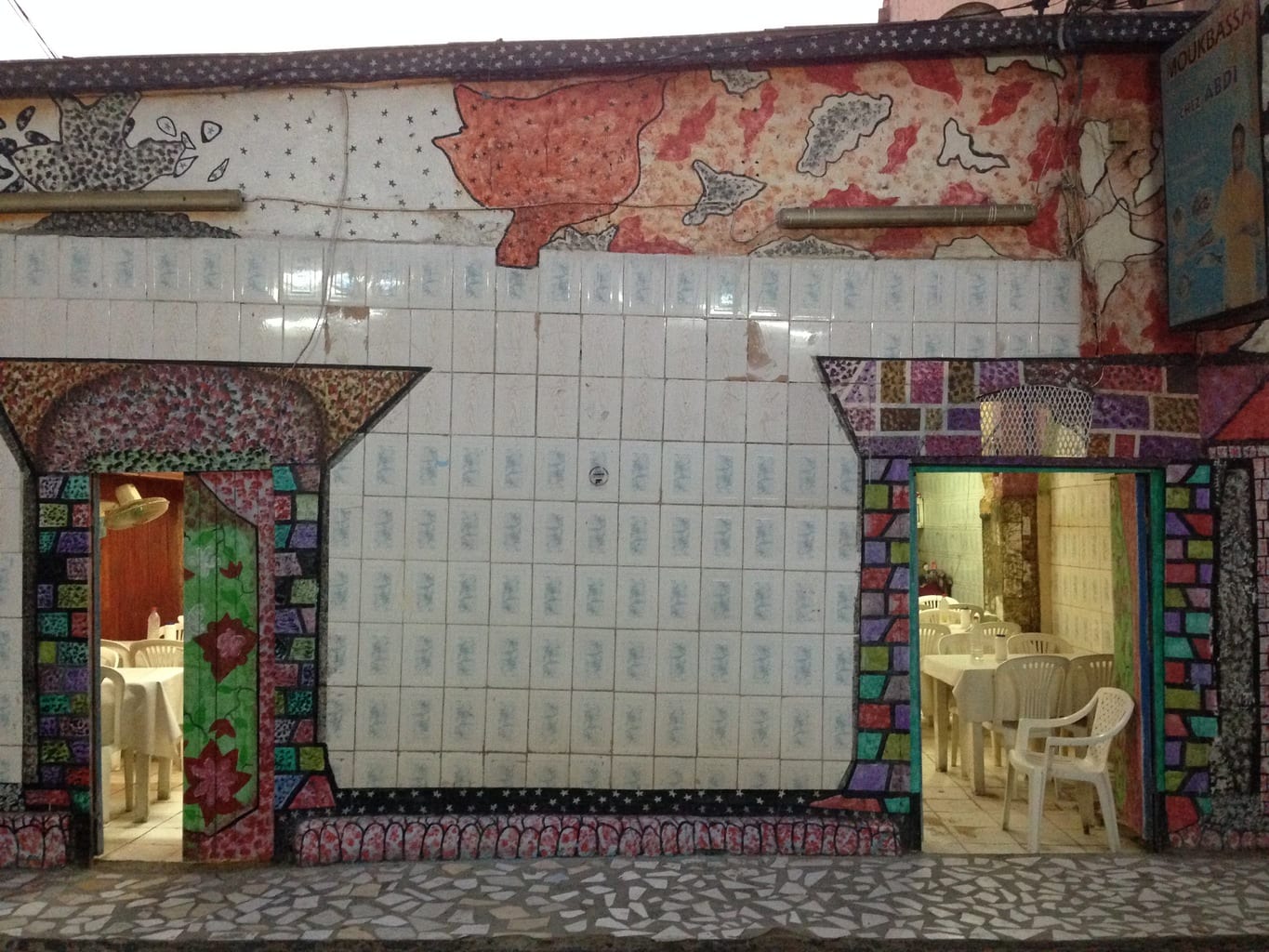
Inside, plastic chairs and corrugated iron walls like the rest of the quarter are the norm. Expect friendly service, even despite the language difficulty. If you speak French you will be in luck. Get the fish, only one because you will get the whole piece and they are large enough to share. The fish is served with a tomato and red pepper refreshing sauce that looks like a mousse and large pieces of fabulous flat bread. Such a simple dish but so well prepared in the tandori oven. Take a peek inside the kitchen, the chef will be happy to show you. To finish off, get one of the pervasive Nutella crepes made with the same bread, they are more a cilinder of rolled up chocolate happiness.
Grabbing a taxi back to your hotel should not be difficult. Just retrace your steps back to the main square and there will be enough traffic to find one. Follow the light.
Day 2 – Desert and Lake Abbe
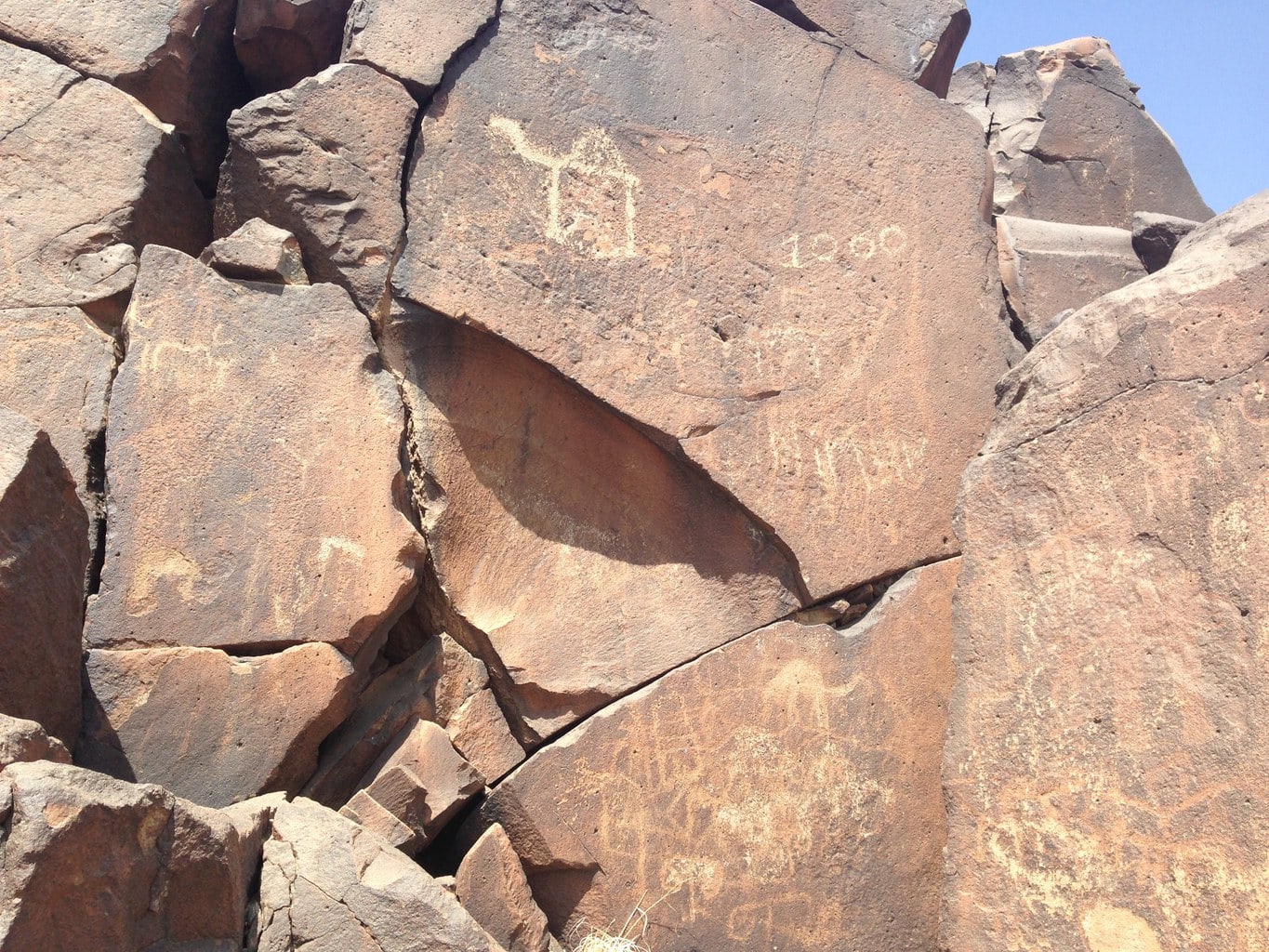
A trip to Djibouti is not complete without one of the most surreal sights you will ever see: Lake Abbe. You cannot get there by public transportation so hire a driver to take you there. The roads will disappear at one point so make sure to get one that knows his way or you will get lost in a desert of smugglers and touareg caravans. Not recommended.
The journey will take about 4-5h with a few stops to see the sights en route.
The first portion will be the most comfortable. The road is paved and has recently been fully repaved until the border with Ethiopia in Ali Sabieh. This road is the main artery and the source of Djibouti’s revenue until the new rail line is finalized. Ethiopia has no access to the sea so all their exports go through this road. You will share the pavement with large trucks carrying goods. At either side of the road the desert is overpowering. Expect large sand and dust tornados and the white expanse of nothingness. Little grows and lives in this barren part of the world except for the grubs and acacia trees. Goats can occasionally be seen, they are as resilient as the bushes.
Ask your driver to take you to see some petroglyphs that are inscribed on some rocks in the middle of the desert. You would miss them if the driver didn’t know.
At Ali Sabieh you better stop for lunch, there will not be much civilization other than the most basic hut villages after Ali Sabieh and Dikhil.
After Ali Sabieh you will carry on until Dikhil, a real-life oasis. In front of the only tourist restaurant in town there is a small forest and garden with plants and fruit trees. Water comes through from underwater rivers feeding the only vegetables you will see in the entire area. The greenery is as rare as it is beautiful.
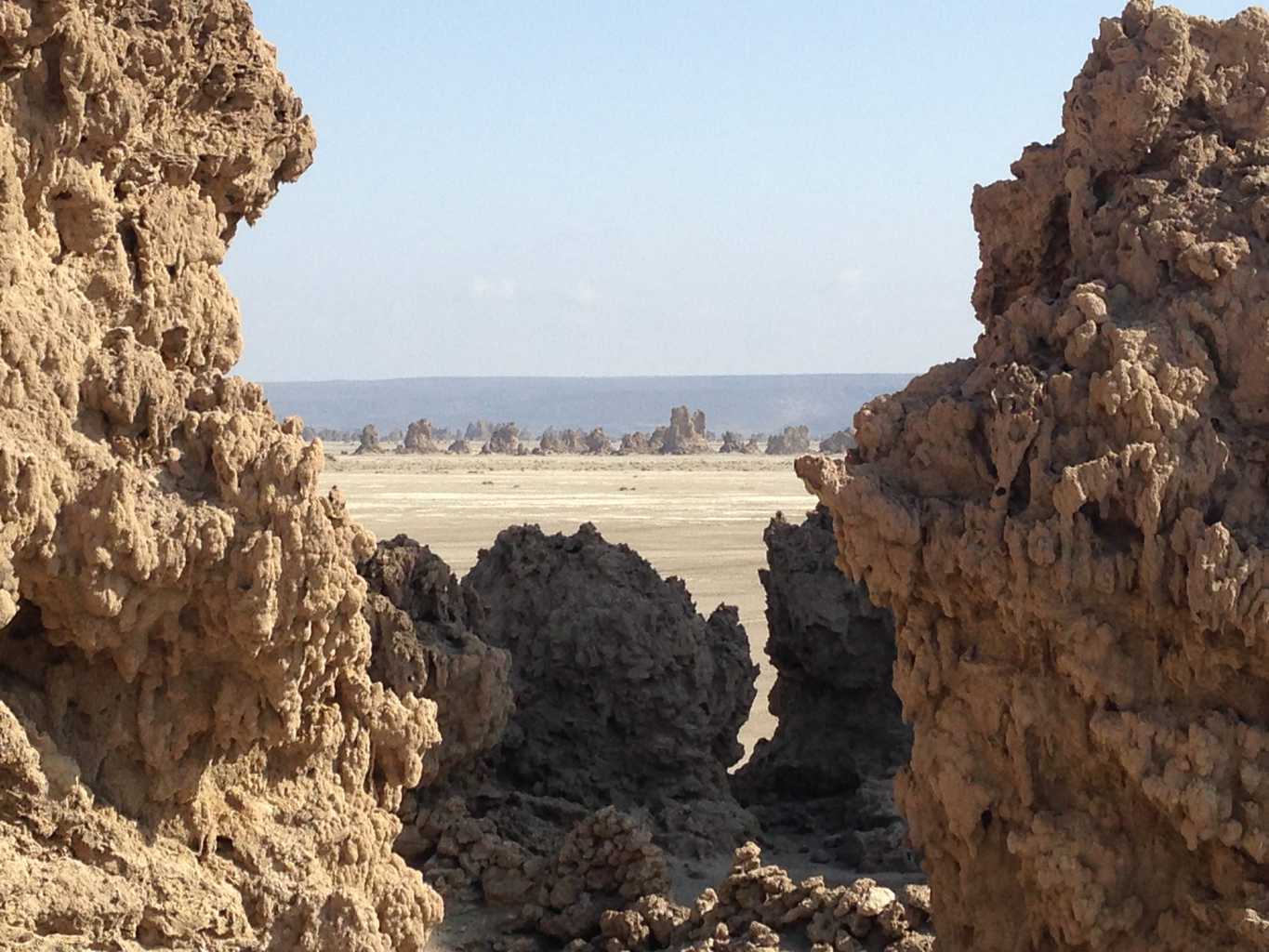
From Dikhil you will be headed into the desert and rocky south. There is nothing for kilometers on end except for the odd nomad carrying goods to and from Ethiopia on camels or even smugglers trying to bring tobacco from Ethiopia. Occasionally you will pass local villages. Extremely basic with huts made of semi-circular structures covered with mats and with rocks at the base preventing animals getting inside. We see large plastic barrels that are lined up by the road. Japanese NGOs fill them with water from time to time. Water is a scarce resource. Every time we stop to chat to a local or nomad we are asked for water. The gold of the desert.
After a few more hours on the most barren of landscapes you will finally climb a small hill on the other side of which lays Lake Abbe. The vision, from the distance, is of a surreal martian landscape. The chimneys can be clearly seen and the steam coming out is expelled into the air. The yellow bushes cover the area and herds of goats and sheep can be seen around.
You can enjoy the area as much as you like until you set up at the camp for dinner. The sunset is one of the most incredible I have ever seen, the sun will linger in the horizon for over an hour. You can read all the details of my visit to the Lake here .
Lake Abbe has a multitude of areas of interest. You can marvel at the hot springs where locals cook their meals, or the chimneys, so delicate they break to the touch. You should be careful when walking around as there are quick sands.
Day 3: Lake Abbe and Lake Assal
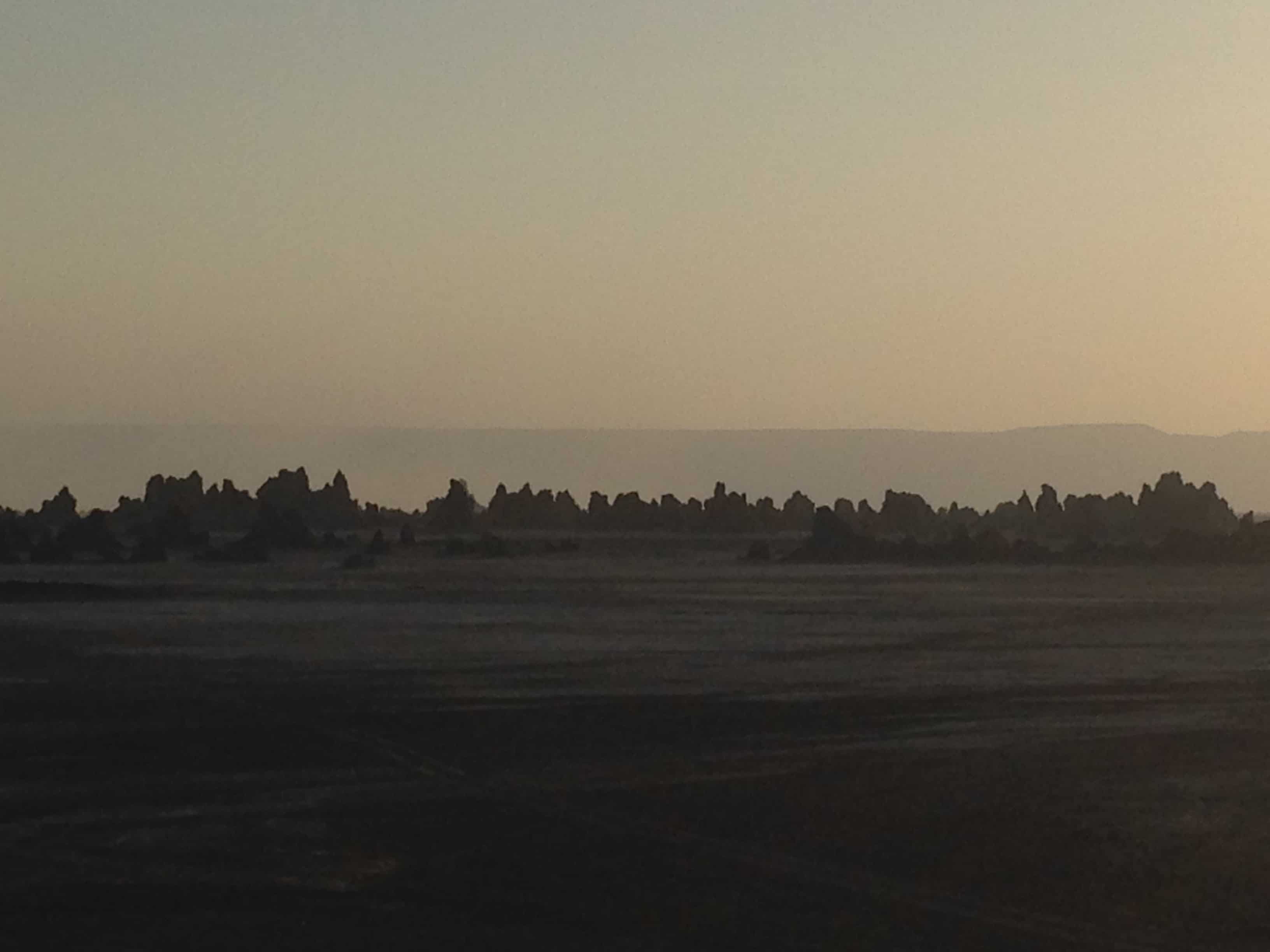
In the early morning, after a night’s sleep (I wouldn’t say a good night’s sleep) at the camp, make sure to get up and close with the pink flamingos that will come to feed at the lake shore in the distance.
Lake Abbe used to occupy the entire area that today is filled with chimneys but the building of a dam on the Ethiopian side dried out most of the Djiboutian area leaving the chimneys uncovered. Flamingos still come to feed on the same bacteria that cover the mangroves and created the chimneys. The pink color comes from what they eat.
The closer you get to them the higher the likelihood of getting stuck on the quick sands or the mud.
The area was the set of The Planet of the Apes and you can still see the main backdrop. Ask your guide to show you or Google it.
After you are done, you should drive back, retrace your steps until you reach the paved road and onto Lake Assal.
Lake Assal is the third lowest point on Earth and a salty lake. Its shores are covered with salt that is now extracted on concession by a Chinese Company.
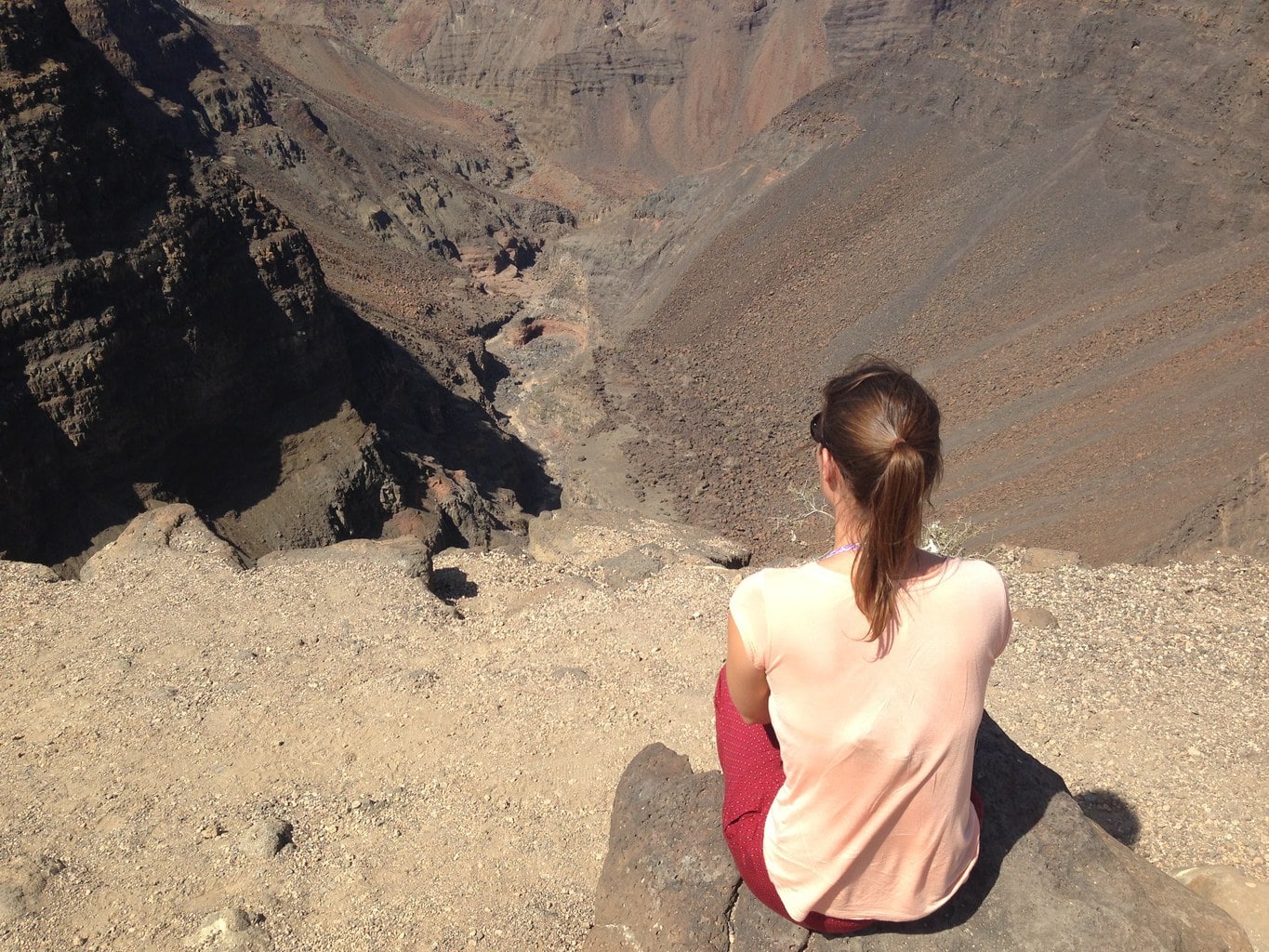
The drive will be long. Expect the exact same landscape as on the way to Lake Abbe. On the way, once you get closer to Lake Assal make sure to stop by the Grand Canyon, a grey and maroon canyon that can be observed almost from the main road. On your way you will be driving along the river and will see a few other islands.
For the brave in you, get in the water and practice your floating poses. Got a newspaper? You may as well read it while sitting back and let the salt play its part. If you do get in the water remember to wear booties as the shore is made of salt crystals that are sharp and painful to step on. And bring a towel and bottled water to rinse yourself, there are absolutely no facilities around and you don’t want to have a crust of water all over your body for the one and a half to two hour ride back to town.
Once you have seen enough of this majestic landscape it is time to drive back into Djibouti for one last evening. You may choose to relax at the hotel or you head into town for some Ethiopian food or some more Yemeni fish.
Day 4: Moucha Island
Djibouti is a tiny country with a relatively large coast and a few offshore islands. Diving is possible and you can see whale sharks during the season. But there are also a few islands, the most popular of which is Moucha Island, an easy day trip from the capital city.

Getting out and back into the port to get to Moucha Island is a complex and interesting affair. Your boat captain will have to report to the port authorities to be granted permission to leave and return and if there are any army boats anchored at port, you will be escorted by armed motorboats from the country.
At the port do not miss the opportunity to take a look at the fishermen boats that line the shore. It is said that the Somali pirates that make the international news are nothing more than the fishermen from Somalia, just like these ones, armed with sophisticated weapons.
Chances are your flight will be in the early afternoon so as soon as you are back from Moucha it will be time to pack and go.
If you had longer time I would encourage you to visit the forests in the north and the various other beaches around the city. A week would give enough time for the entire country given that it is not a very large expanse.
How to get there – Airlines flying to Djibouti
Getting to Djibouti is not easy. You can fly from Dubai, from Ethiopia or from the hair-raising Somaliland. Chances are you will arrive from the Emirate’s most famous city as it is also the best connected airport. Although there are a few other local, and possibly “doubtful” airlines to fly with, like Dallo or Jubba Airways , the best option is Dubai’s low-cost carrier, Fly Dubai , which has a penchant for flying places you need wikipedia to decipher. Think Somaliland, Iraq, Djibouti and all the second and third tier cities in Central Asia and the Middle East.
I found Fly Dubai surprisingly good. Aside from flying from a residual terminal in Dubai that is nothing like the flashy Dubai International Airport I found the airline to be remarkably premium, for a low-cost airline.
Their aircrafts were new and well appointed, and they were the first low-cost airline I’ve seen who successfully provides entertainment painlessly and hassle-free. You can just use your credit card to swipe and buy one of two movie bundles.
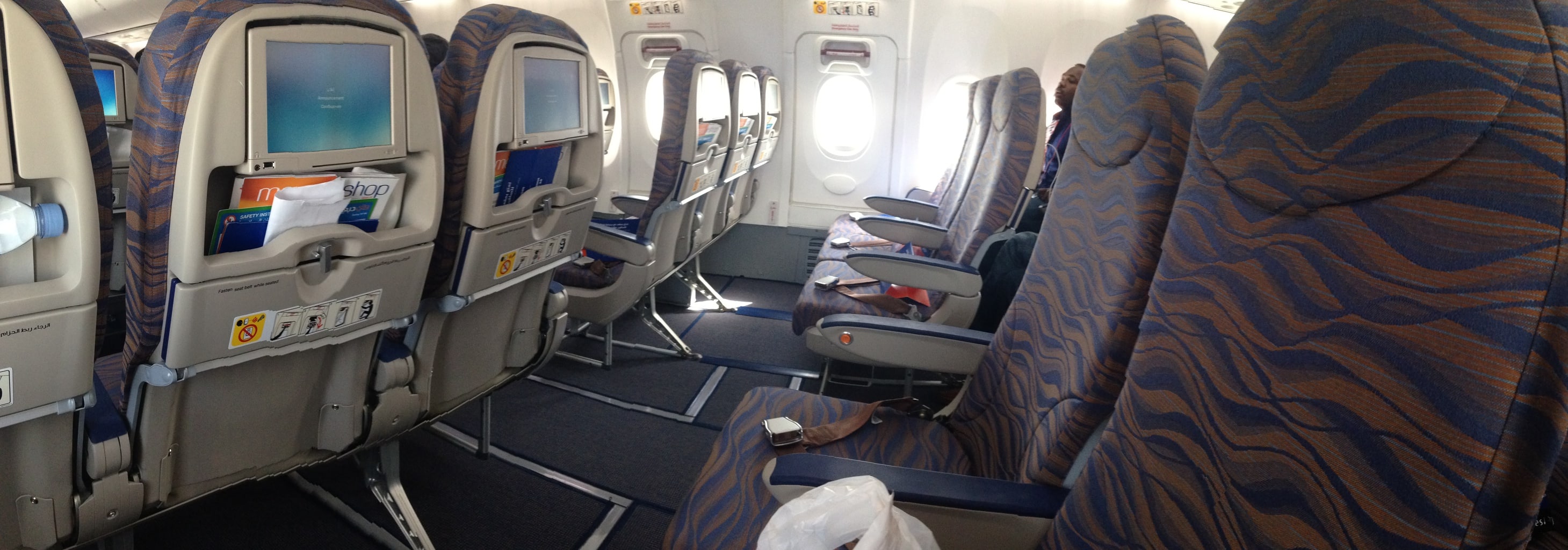
Arriving in Djibouti – Visas and Airport formalities
Landing in Djibouti is a surprise to anyone. I had limited expectations and I did not realize the importance of the country as a military base. From the sky you can already see the lines of military aircrafts, helicopters and other vehicles at the airport tarmac. The desert dusty look does not help either in erasing the feeling that you are landing in Baghdad.
Visas for Djibouti used to be available on arrival, not without putting up a fight and answering a lot of questions while waiting for unknown officials as it is at the discretion of the officials and they make you show all sorts of paperwork including return flights, residency permits wherever you live, your boarding passes, your hotel booking. Typical of many African nations sadly. If you are denied, you are turned back, and that is pretty common as reported by many travelers I know. However, since 2018, there are rumours that visa on arrival will be stopped anytime so it pays to organise one ahead of time. These need to be obtained from a Djiboutian Embassy and not the French Embassy as reported elsewhere. A lot of people get visas from the french Embassies only to be turned away or required to purchase another visa on arrival as they are not considered valid in Djibouti, so don’t rely on those, I know of people who were turned away with one of those.
After the interesting landing and immigration arguments to get a visa on arrival, you are out in the country’s heat. Since tourists or visitors of any kind are uncommon getting a taxi will not be an issue. Cars are very old, have no AC and look like they are about to die. Yet they will probably run for an additional decade.
Other things to known to plan your trip to Djibouti
Do not bring your drone to Djibouti or you may end up like me, with the drone confiscated and crying and begging the officials to keep it for you. Don’t risk it, Djibouti is a military base and they do not like anything that can pose a threat.
This would make a great addition to your #Africa Pinterest board
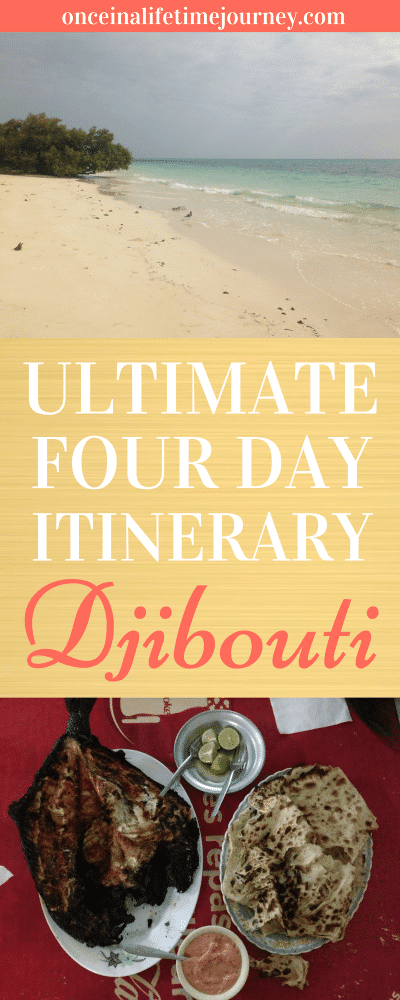
- Check if you need a visa, get help processing it at iVisa .
- Never ever leave without travel insurance. Get affordable coverage from World Nomads or long term insurance from Safety Wing .
- I find all of my flights on KAYAK . Check their Deals section too.
- Search for all your transportation between destinations on the trusted travel booking platform Bookaway .
- I book all my day trips and tours via GetYourGuide , they are the best and their tours are refundable up to 24h in advance.
- Get USD35 off your first booking with Airbnb .
- Compare hotels EVERYWHERE at HotelsCombined and book with Booking.com .
- Compare car rental prices at Rentalcars.com
You may also like
Why you should visit djibouti – the country..., who are the big five animals of africa, what to pack for a safari – expert..., what to do if you only have 1..., travel guide and things to do in somaliland, tourism in zanzibar, from the slave trade to..., top three african luxury resorts not accessible by..., things to do in cape town as recommended..., the world’s least visited countries – unknown and..., the best hotels in kigali and rwanda.
- 2 Other destinations
- 3.1 Climate
- 3.2 Tourist information
- 4.1 Visa requirements
- 4.2 By plane
- 4.4 By train
- 4.6 By boat
- 9.2 Shopping
- 13 Stay safe
- 14 Stay healthy
Djibouti is in the Horn peninsula on the Gulf of Aden. The country can be divided into three regions; the coastal plain and volcanic plateaus in the central and southern parts of the country and the mountain ranges in the north. Much of the country is wasteland with virtually no arable land.
Cities [ edit ]

- 11.595 43.148056 1 Djibouti - the capital and by far the largest city
Towns [ edit ]
Other destinations [ edit ].
- 11.8 42.683333 1 Day Forest National Park — Djibouti's only national park
- 11.724444 43.191667 4 Moucha Island
Understand [ edit ]
Djibouti's location near the Suez Route , one of the world's most busiest shipping routes, has made the country important for international trade.
Climate [ edit ]
Djibouti's climate is very hot, humid and arid, especially in the summer. The summer heat is moderated, however, by a sustained breeze in the coastal city of Djibouti. From October to April, the temperature is cooler, with occasional rain. Cyclones from the Indian Ocean create heavy rains and flash flooding.
Tourist information [ edit ]
- National Tourism Office of Djibouti
Get in [ edit ]
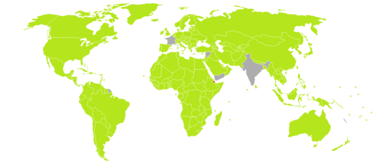
Visa requirements [ edit ]
Most nationals can get a visa on arrival for 15,000 DJF or 90 USD (as of November 2018), valid for one month. Transit visas are valid for 10 days and are available on arrival at the airport to nationals of the European Union, Scandinavian countries and the USA for 10,000 Fdj. If you plan to enter by land you have to arrange for visas in advance. Visas can be obtained from neighbouring countries (e.g. embassy in Addis Ababa makes visa within a day). Where no Djibouti embassy exists, they can often be obtained from the French embassy. The types of visas include: Entry ( visa de séjour ); Tourist ( visa de tourisme ); Business ( visa d’affaires ); and Transit ( visa de transit ). Those travelling on Singaporean passports can get a visa free. It is possible to make e-visa , though there are many reports of rejections and delays without any explanations.
By plane [ edit ]
By car [ edit ].
There are roads from Djibouti to Assab (Eritrea) and going west into Ethiopia via Dikhil. Those using them should be aware that road conditions are generally poor and personal security might be at risk when travelling, particularly to Ethiopia. Visitors are advised to check transit regulations as political conditions in Ethiopia and Eritrea are changeable. There are no formal border posts with Eritrea. Four-wheel-drive vehicles are recommended for the interior. There is a new highway from Djibouti to Tadjoura. Traffic drives on the right. It is advisable to carry water and petrol on any expedition off main routes. An International Driving Permit is recommended, although not legally required. A temporary licence to drive is available from local authorities on presentation of a valid UK driving licence.
By train [ edit ]
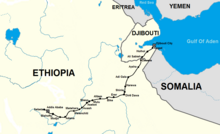
Passenger train services between Ethiopia and Djibouti City were restarted in December 2016. While the line mostly serves as a vital freight link from landlocked Ethiopia to the major port of Djibouti, it also has passenger service. Reportedly passenger trains reach a top speed of 160 km/h (99 mph) and take 12 hours for the more than 700 km (430 mi) long journey from Addis Abeba that used to take three days by road.
By bus [ edit ]

Buses operate from Djibouti to most towns and villages throughout the country. Buses leave when they are full. A minibus service operates in Djibouti, stopping on demand. A fixed-fare system is used.
By boat [ edit ]
There are ferry services connecting Djibouti to Yemen . Djibouti City is one of the main ports of eastern Africa so it's a popular route.
Get around [ edit ]
- Taxis are available in Djibouti and from the airport to the town, as you exit the airport there is a big billboard displaying expected taxi fares, look for it; also in Ali-Sabieh, Dikhil, Dorale and Arta. Fares can increase by 50% after dark.
- Bicycling is a great way to get around the small capital.
- Ferry services sail daily from L'Escale (Djibouti) to Tadjoura and Obock . The journey takes about three hours.
You should avoid driving after dark outside the city of Djibouti. Vehicles do not always have working headlights and there may be livestock on the roads. Extra care must be taken in the occasionally chaotic traffic.
Talk [ edit ]
Although French and Arabic are the official languages, Somali and Afar are widely spoken. English may be spoken at tourist facilities, but is not widely spoken by locals or taxi drivers.
See [ edit ]

- Lake Assal . 150 m below sea level, Lake Assal is the third-lowest point on Earth. You'll need to hire a car or ask someone who lives in Djibouti to drive you there. Expect a rough ride: the roads outside the capital are destroyed by the truck traffic between Djibouti and Ethiopia. The road passes within sight of the Devil's Island, and some impressive views. Expect to be awestruck. ( updated Jul 2016 )
- Lake Abbe is one of the most desolate places on Earth and is dotted with limestone chimneys standing as high of 50 m. It was described as lunar, and Planet of the Apes was filmed here.
Do [ edit ]
- Scuba diving — Despite the country's arid landscape, off the coast lie several reefs teeming with all sorts of life.
- Sea kayaking — Sea kayaking allows you to enjoy the Gulf of Tadjoura and Ghoubet Kharrib in an eco-friendly way, with the possibility of observing whale sharks and sea turtles.
- Whale shark tours — You can also go snorkelling or diving with whale sharks, although the chance of seeing them varies throughout the season (70-80% in Nov-Jan and close to zero during warmer months).
Buy [ edit ]
Money [ edit ].
The currency of Djibouti is the Djiboutian franc , denoted by the symbol " Fdj " (ISO currency code: DJF ). The Djiboutian franc is pegged to the US dollar. You can convert dollars to francs with local street money changers located in the Djiboutian market area. The street money changers are women who line the street waiting to convert foreign currencies to francs. Whilst generally honest brokers it is still advisable to have yours ready and check the exchange rate in advance. Most of them speak basic English.
Coins in Djibouti come in denominations of 1-, 2-, 5-, 10-, 20-, 50-, 100-, 250 and 500 Djiboutian francs. Banknotes in Djibouti come in denominations of 1,000-, 2,000-, 5,000 and 10,000 Djiboutian francs. There is also a 40 Djiboutian franc banknote, but is worth more as a numismatic piece than as a circulating piece.
Shopping [ edit ]
Khat: A leafy stimulant popular with the locals. It is flown into the country each morning from Ethiopia and arrives by truck in Djibouti's Central Market at about 13:00. It is fairly inexpensive, but quality varies greatly, so shop with caution. Khat may not be taken out of Djibouti through the airport, and is illegal to possess in many other countries.
You can purchase general merchandise and food items at the larger department stores using US dollars. The tourist traps will see you coming a mile away and charge ridiculous conversion rates and tourist prices. If you have access to Camp Lemonnier, go to the disbursement office for the best rate.
Eat [ edit ]
The city of Djibouti has many places to eat, including tourist traps. Western food is often expensive cuisine, with local cuisine being much cheaper. For example, the Ethiopian Community Center offers a wide variety of local, tasty and reasonably priced dishes. Average price per meal outside tourist areas is US$4 including drink.
Drink [ edit ]
Sleep [ edit ], stay safe [ edit ].
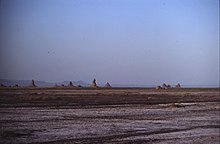
Natural hazards include earthquakes and droughts. Occasional cyclonic disturbances from the Indian Ocean bring heavy rains and flash floods.
Visitors should be aware of the risk of banditry outside the capital city.
Stay healthy [ edit ]
Health insurance is advisable. Doctors and hospitals may expect immediate cash payment for any medical treatment. A yellow fever vaccination certificate is required for visitors over one year of age coming from infected areas. Cholera is also a serious risk and precautions are essential. Up-to-date advice should be sought before deciding if these precautions should include vaccination as medical opinion is divided over its effectiveness. Typhoid immunization is usually advised.
Malaria risk, predominantly in the malignant falciparum form, exists year round. Resistance to chloroquine has been reported. Mefloquine, doxycycline or atovaquone/proguanil are recommended.
The adult HIV/AIDS prevalence rate is over 3% or 1 in 33 adults. Protect yourself.
Tap water is not safe to drink unless it has been boiled or otherwise sterilized.
Respect [ edit ]
Casual wear is widely acceptable, but Djibouti is a Muslim country and certain codes of behaviour should be observed. Shorts are generally not appropriate outside of hotels, beaches or sport activities. While homosexuality is not explicitly criminalized it remains broadly unaccepted, Djibouti is generally considered unsafe for LGBT travelers in all locations.
Connect [ edit ]
There is a 3G phone network in the country that runs on 900MHz. The maximum speed is 7mbps but expect it to be lower. You can get 1GB of data for about US$3. More info can be obtained here
- Has custom banner
- Has map markers
- See listing with no coordinates
- Has warning box
- Outline countries
- Outline articles
- Country articles
- Has Geo parameter
- East Africa
- All destination articles
- Pages with maps
Navigation menu
Cookies on GOV.UK
We use some essential cookies to make this website work.
We’d like to set additional cookies to understand how you use GOV.UK, remember your settings and improve government services.
We also use cookies set by other sites to help us deliver content from their services.
You have accepted additional cookies. You can change your cookie settings at any time.
You have rejected additional cookies. You can change your cookie settings at any time.
- Passports, travel and living abroad
- Travel abroad
- Foreign travel advice
Warnings and insurance
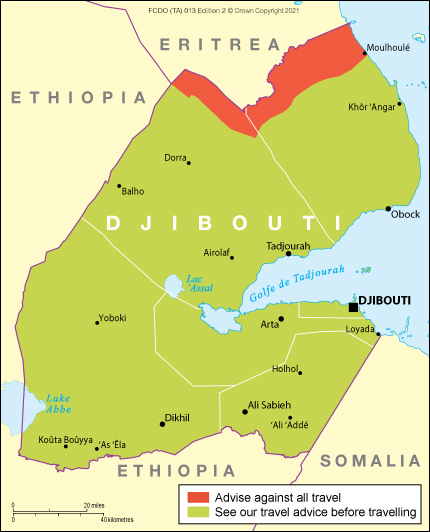
Your travel insurance could be invalidated if you travel against advice from the Foreign, Commonwealth & Development Office (FCDO).
Areas where FCDO advises against travel
Djibouti-eritrea border.
FCDO advises against all travel to the Djibouti-Eritrea border.
Before you travel
No travel can be guaranteed safe. Read all the advice in this guide and any specific travel advice that applies to you:
- women travellers
- disabled travellers
- LGBT+ travellers
- solo and independent travel
- volunteering and adventure travel
Travel insurance
If you choose to travel, research your destinations and get appropriate travel insurance . Insurance should cover your itinerary, planned activities and expenses in an emergency.
About FCDO travel advice
FCDO provides advice about risks of travel to help British nationals make informed decisions. Find out more about FCDO travel advice .
Follow and contact FCDO travel on Twitter , Facebook and Instagram . You can also sign up to get email notifications when this advice is updated.
Related content
Is this page useful.
- Yes this page is useful
- No this page is not useful
Help us improve GOV.UK
Don’t include personal or financial information like your National Insurance number or credit card details.
To help us improve GOV.UK, we’d like to know more about your visit today. We’ll send you a link to a feedback form. It will take only 2 minutes to fill in. Don’t worry we won’t send you spam or share your email address with anyone.
You are using an outdated browser. Upgrade your browser today or install Google Chrome Frame to better experience this site.
Djibouti Traveler View
Travel health notices, vaccines and medicines, non-vaccine-preventable diseases, stay healthy and safe.
- Packing List
After Your Trip
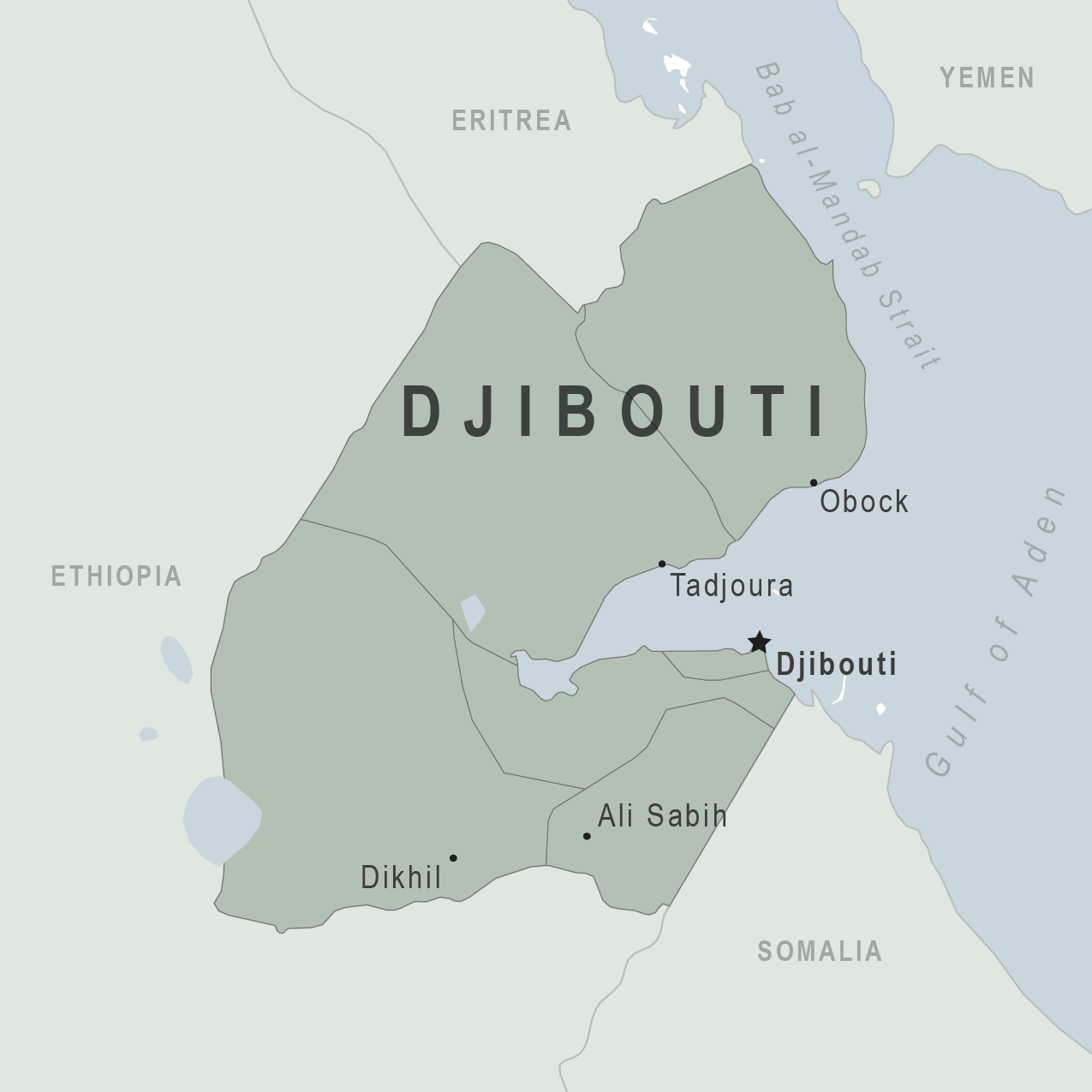
Be aware of current health issues in Djibouti. Learn how to protect yourself.
Level 1 Practice Usual Precautions
- Updated Global Measles April 26, 2024 Many international destinations are reporting increased numbers of cases of measles. Destination List: Afghanistan, Angola, Armenia, Azerbaijan, Benin, Burkina Faso, Burundi, Cameroon, Central African Republic, Chad, Côte d'Ivoire (Ivory Coast), Democratic Republic of the Congo, Djibouti, Equatorial Guinea, Ethiopia, Gabon, Ghana, India, Indonesia, Kazakhstan, Kyrgyzstan, Lebanon, Liberia, Libya, Malaysia, Mauritania, Nepal, Niger, Nigeria, Pakistan, Philippines, Qatar, Republic of South Sudan, Republic of the Congo, Romania, Russia, Senegal, Somalia, Sri Lanka, Sudan, Syria, Tajikistan, Timor-Leste (East Timor), Togo, Turkey, United Arab Emirates, Uzbekistan, Yemen, Zambia
⇧ Top
Check the vaccines and medicines list and visit your doctor at least a month before your trip to get vaccines or medicines you may need. If you or your doctor need help finding a location that provides certain vaccines or medicines, visit the Find a Clinic page.
Routine vaccines
Recommendations.
Make sure you are up-to-date on all routine vaccines before every trip. Some of these vaccines include
- Chickenpox (Varicella)
- Diphtheria-Tetanus-Pertussis
- Flu (influenza)
- Measles-Mumps-Rubella (MMR)
Immunization schedules
All eligible travelers should be up to date with their COVID-19 vaccines. Please see Your COVID-19 Vaccination for more information.
COVID-19 vaccine
Hepatitis A
Recommended for unvaccinated travelers one year old or older going to Djibouti.
Infants 6 to 11 months old should also be vaccinated against Hepatitis A. The dose does not count toward the routine 2-dose series.
Travelers allergic to a vaccine component or who are younger than 6 months should receive a single dose of immune globulin, which provides effective protection for up to 2 months depending on dosage given.
Unvaccinated travelers who are over 40 years old, immunocompromised, or have chronic medical conditions planning to depart to a risk area in less than 2 weeks should get the initial dose of vaccine and at the same appointment receive immune globulin.
Hepatitis A - CDC Yellow Book
Dosing info - Hep A
Hepatitis B
Recommended for unvaccinated travelers of all ages traveling to Djibouti.
Hepatitis B - CDC Yellow Book
Dosing info - Hep B
CDC recommends that travelers going to Djibouti take prescription medicine to prevent malaria. Depending on the medicine you take, you will need to start taking this medicine multiple days before your trip, as well as during and after your trip. Talk to your doctor about which malaria medication you should take.
Find country-specific information about malaria.
Malaria - CDC Yellow Book
Considerations when choosing a drug for malaria prophylaxis (CDC Yellow Book)
Malaria information for Djibouti.
Cases of measles are on the rise worldwide. Travelers are at risk of measles if they have not been fully vaccinated at least two weeks prior to departure, or have not had measles in the past, and travel internationally to areas where measles is spreading.
All international travelers should be fully vaccinated against measles with the measles-mumps-rubella (MMR) vaccine, including an early dose for infants 6–11 months, according to CDC’s measles vaccination recommendations for international travel .
Measles (Rubeola) - CDC Yellow Book
In Djibouti poliovirus has been identified in the past year.
Travelers to Djibouti are at increased risk of exposure to poliovirus.
Vaccine recommendations : Adults traveling to Djibouti who received a complete polio vaccination series as children may receive a single lifetime booster dose of inactivated polio vaccine; travelers who are unvaccinated or not fully vaccinated should receive a complete polio vaccination series before travel. Children who are not fully vaccinated will be considered for an accelerated vaccination schedule .
Polio - CDC Yellow Book
Polio: For Travelers
Rabid dogs are commonly found in Djibouti. If you are bitten or scratched by a dog or other mammal while in Djibouti, there may be limited or no rabies treatment available.
Consider rabies vaccination before your trip if your activities mean you will be around dogs or wildlife.
Travelers more likely to encounter rabid animals include
- Campers, adventure travelers, or cave explorers (spelunkers)
- Veterinarians, animal handlers, field biologists, or laboratory workers handling animal specimens
- Visitors to rural areas
Since children are more likely to be bitten or scratched by a dog or other animals, consider rabies vaccination for children traveling to Djibouti.
Rabies - CDC Yellow Book
Recommended for most travelers, especially those staying with friends or relatives or visiting smaller cities or rural areas.
Typhoid - CDC Yellow Book
Dosing info - Typhoid
Yellow Fever
Required for travelers ≥1 year old arriving from countries with risk for YF virus transmission; this includes >12-hour airport transits or layovers in countries with risk for YF virus transmission. 1
Yellow Fever - CDC Yellow Book
- Avoid contaminated water
Leptospirosis
How most people get sick (most common modes of transmission)
- Touching urine or other body fluids from an animal infected with leptospirosis
- Swimming or wading in urine-contaminated fresh water, or contact with urine-contaminated mud
- Drinking water or eating food contaminated with animal urine
- Avoid contaminated water and soil
Clinical Guidance
Schistosomiasis
- Wading, swimming, bathing, or washing in contaminated freshwater streams, rivers, ponds, lakes, or untreated pools.
Avoid bug bites
African tick-bite fever.
- Avoid Bug Bites
African Tick-bite fever
Chikungunya
- Mosquito bite
- Mosquito bite
Leishmaniasis
- Sand fly bite
Airborne & droplet
- Breathing in air or accidentally eating food contaminated with the urine, droppings, or saliva of infected rodents
- Bite from an infected rodent
- Less commonly, being around someone sick with hantavirus (only occurs with Andes virus)
- Avoid rodents and areas where they live
- Avoid sick people
Tuberculosis (TB)
- Breathe in TB bacteria that is in the air from an infected and contagious person coughing, speaking, or singing.
Learn actions you can take to stay healthy and safe on your trip. Vaccines cannot protect you from many diseases in Djibouti, so your behaviors are important.
Eat and drink safely
Food and water standards around the world vary based on the destination. Standards may also differ within a country and risk may change depending on activity type (e.g., hiking versus business trip). You can learn more about safe food and drink choices when traveling by accessing the resources below.
- Choose Safe Food and Drinks When Traveling
- Water Treatment Options When Hiking, Camping or Traveling
- Global Water, Sanitation and Hygiene | Healthy Water
- Avoid Contaminated Water During Travel
You can also visit the Department of State Country Information Pages for additional information about food and water safety.
Prevent bug bites
Bugs (like mosquitoes, ticks, and fleas) can spread a number of diseases in Djibouti. Many of these diseases cannot be prevented with a vaccine or medicine. You can reduce your risk by taking steps to prevent bug bites.
What can I do to prevent bug bites?
- Cover exposed skin by wearing long-sleeved shirts, long pants, and hats.
- Use an appropriate insect repellent (see below).
- Use permethrin-treated clothing and gear (such as boots, pants, socks, and tents). Do not use permethrin directly on skin.
- Stay and sleep in air-conditioned or screened rooms.
- Use a bed net if the area where you are sleeping is exposed to the outdoors.
What type of insect repellent should I use?
- FOR PROTECTION AGAINST TICKS AND MOSQUITOES: Use a repellent that contains 20% or more DEET for protection that lasts up to several hours.
- Picaridin (also known as KBR 3023, Bayrepel, and icaridin)
- Oil of lemon eucalyptus (OLE) or para-menthane-diol (PMD)
- 2-undecanone
- Always use insect repellent as directed.
What should I do if I am bitten by bugs?
- Avoid scratching bug bites, and apply hydrocortisone cream or calamine lotion to reduce the itching.
- Check your entire body for ticks after outdoor activity. Be sure to remove ticks properly.
What can I do to avoid bed bugs?
Although bed bugs do not carry disease, they are an annoyance. See our information page about avoiding bug bites for some easy tips to avoid them. For more information on bed bugs, see Bed Bugs .
For more detailed information on avoiding bug bites, see Avoid Bug Bites .
Stay safe outdoors
If your travel plans in Djibouti include outdoor activities, take these steps to stay safe and healthy during your trip.
- Stay alert to changing weather conditions and adjust your plans if conditions become unsafe.
- Prepare for activities by wearing the right clothes and packing protective items, such as bug spray, sunscreen, and a basic first aid kit.
- Consider learning basic first aid and CPR before travel. Bring a travel health kit with items appropriate for your activities.
- If you are outside for many hours in heat, eat salty snacks and drink water to stay hydrated and replace salt lost through sweating.
- Protect yourself from UV radiation : use sunscreen with an SPF of at least 15, wear protective clothing, and seek shade during the hottest time of day (10 a.m.–4 p.m.).
- Be especially careful during summer months and at high elevation. Because sunlight reflects off snow, sand, and water, sun exposure may be increased during activities like skiing, swimming, and sailing.
- Very cold temperatures can be dangerous. Dress in layers and cover heads, hands, and feet properly if you are visiting a cold location.
Stay safe around water
- Swim only in designated swimming areas. Obey lifeguards and warning flags on beaches.
- Practice safe boating—follow all boating safety laws, do not drink alcohol if driving a boat, and always wear a life jacket.
- Do not dive into shallow water.
- Do not swim in freshwater in developing areas or where sanitation is poor.
- Avoid swallowing water when swimming. Untreated water can carry germs that make you sick.
- To prevent infections, wear shoes on beaches where there may be animal waste.
Schistosomiasis, a parasitic infection that can be spread in fresh water, is found in Djibouti. Avoid swimming in fresh, unchlorinated water, such as lakes, ponds, or rivers.
Keep away from animals
Most animals avoid people, but they may attack if they feel threatened, are protecting their young or territory, or if they are injured or ill. Animal bites and scratches can lead to serious diseases such as rabies.
Follow these tips to protect yourself:
- Do not touch or feed any animals you do not know.
- Do not allow animals to lick open wounds, and do not get animal saliva in your eyes or mouth.
- Avoid rodents and their urine and feces.
- Traveling pets should be supervised closely and not allowed to come in contact with local animals.
- If you wake in a room with a bat, seek medical care immediately. Bat bites may be hard to see.
All animals can pose a threat, but be extra careful around dogs, bats, monkeys, sea animals such as jellyfish, and snakes. If you are bitten or scratched by an animal, immediately:
- Wash the wound with soap and clean water.
- Go to a doctor right away.
- Tell your doctor about your injury when you get back to the United States.
Consider buying medical evacuation insurance. Rabies is a deadly disease that must be treated quickly, and treatment may not be available in some countries.
Reduce your exposure to germs
Follow these tips to avoid getting sick or spreading illness to others while traveling:
- Wash your hands often, especially before eating.
- If soap and water aren’t available, clean hands with hand sanitizer (containing at least 60% alcohol).
- Don’t touch your eyes, nose, or mouth. If you need to touch your face, make sure your hands are clean.
- Cover your mouth and nose with a tissue or your sleeve (not your hands) when coughing or sneezing.
- Try to avoid contact with people who are sick.
- If you are sick, stay home or in your hotel room, unless you need medical care.
Avoid sharing body fluids
Diseases can be spread through body fluids, such as saliva, blood, vomit, and semen.
Protect yourself:
- Use latex condoms correctly.
- Do not inject drugs.
- Limit alcohol consumption. People take more risks when intoxicated.
- Do not share needles or any devices that can break the skin. That includes needles for tattoos, piercings, and acupuncture.
- If you receive medical or dental care, make sure the equipment is disinfected or sanitized.
Know how to get medical care while traveling
Plan for how you will get health care during your trip, should the need arise:
- Carry a list of local doctors and hospitals at your destination.
- Review your health insurance plan to determine what medical services it would cover during your trip. Consider purchasing travel health and medical evacuation insurance.
- Carry a card that identifies, in the local language, your blood type, chronic conditions or serious allergies, and the generic names of any medications you take.
- Some prescription drugs may be illegal in other countries. Call Djibouti’s embassy to verify that all of your prescription(s) are legal to bring with you.
- Bring all the medicines (including over-the-counter medicines) you think you might need during your trip, including extra in case of travel delays. Ask your doctor to help you get prescriptions filled early if you need to.
Many foreign hospitals and clinics are accredited by the Joint Commission International. A list of accredited facilities is available at their website ( www.jointcommissioninternational.org ).
In some countries, medicine (prescription and over-the-counter) may be substandard or counterfeit. Bring the medicines you will need from the United States to avoid having to buy them at your destination.
Malaria is a risk in Djibouti. Fill your malaria prescription before you leave and take enough with you for the entire length of your trip. Follow your doctor’s instructions for taking the pills; some need to be started before you leave.
Select safe transportation
Motor vehicle crashes are the #1 killer of healthy US citizens in foreign countries.
In many places cars, buses, large trucks, rickshaws, bikes, people on foot, and even animals share the same lanes of traffic, increasing the risk for crashes.
Be smart when you are traveling on foot.
- Use sidewalks and marked crosswalks.
- Pay attention to the traffic around you, especially in crowded areas.
- Remember, people on foot do not always have the right of way in other countries.
Riding/Driving
Choose a safe vehicle.
- Choose official taxis or public transportation, such as trains and buses.
- Ride only in cars that have seatbelts.
- Avoid overcrowded, overloaded, top-heavy buses and minivans.
- Avoid riding on motorcycles or motorbikes, especially motorbike taxis. (Many crashes are caused by inexperienced motorbike drivers.)
- Choose newer vehicles—they may have more safety features, such as airbags, and be more reliable.
- Choose larger vehicles, which may provide more protection in crashes.
Think about the driver.
- Do not drive after drinking alcohol or ride with someone who has been drinking.
- Consider hiring a licensed, trained driver familiar with the area.
- Arrange payment before departing.
Follow basic safety tips.
- Wear a seatbelt at all times.
- Sit in the back seat of cars and taxis.
- When on motorbikes or bicycles, always wear a helmet. (Bring a helmet from home, if needed.)
- Avoid driving at night; street lighting in certain parts of Djibouti may be poor.
- Do not use a cell phone or text while driving (illegal in many countries).
- Travel during daylight hours only, especially in rural areas.
- If you choose to drive a vehicle in Djibouti, learn the local traffic laws and have the proper paperwork.
- Get any driving permits and insurance you may need. Get an International Driving Permit (IDP). Carry the IDP and a US-issued driver's license at all times.
- Check with your auto insurance policy's international coverage, and get more coverage if needed. Make sure you have liability insurance.
- Avoid using local, unscheduled aircraft.
- If possible, fly on larger planes (more than 30 seats); larger airplanes are more likely to have regular safety inspections.
- Try to schedule flights during daylight hours and in good weather.
Medical Evacuation Insurance
If you are seriously injured, emergency care may not be available or may not meet US standards. Trauma care centers are uncommon outside urban areas. Having medical evacuation insurance can be helpful for these reasons.
Helpful Resources
Road Safety Overseas (Information from the US Department of State): Includes tips on driving in other countries, International Driving Permits, auto insurance, and other resources.
The Association for International Road Travel has country-specific Road Travel Reports available for most countries for a minimal fee.
Maintain personal security
Use the same common sense traveling overseas that you would at home, and always stay alert and aware of your surroundings.
Before you leave
- Research your destination(s), including local laws, customs, and culture.
- Monitor travel advisories and alerts and read travel tips from the US Department of State.
- Enroll in the Smart Traveler Enrollment Program (STEP) .
- Leave a copy of your itinerary, contact information, credit cards, and passport with someone at home.
- Pack as light as possible, and leave at home any item you could not replace.
While at your destination(s)
- Carry contact information for the nearest US embassy or consulate .
- Carry a photocopy of your passport and entry stamp; leave the actual passport securely in your hotel.
- Follow all local laws and social customs.
- Do not wear expensive clothing or jewelry.
- Always keep hotel doors locked, and store valuables in secure areas.
- If possible, choose hotel rooms between the 2nd and 6th floors.
Healthy Travel Packing List
Use the Healthy Travel Packing List for Djibouti for a list of health-related items to consider packing for your trip. Talk to your doctor about which items are most important for you.
Why does CDC recommend packing these health-related items?
It’s best to be prepared to prevent and treat common illnesses and injuries. Some supplies and medicines may be difficult to find at your destination, may have different names, or may have different ingredients than what you normally use.
If you are not feeling well after your trip, you may need to see a doctor. If you need help finding a travel medicine specialist, see Find a Clinic . Be sure to tell your doctor about your travel, including where you went and what you did on your trip. Also tell your doctor if you were bitten or scratched by an animal while traveling.
If your doctor prescribed antimalarial medicine for your trip, keep taking the rest of your pills after you return home. If you stop taking your medicine too soon, you could still get sick.
Malaria is always a serious disease and may be a deadly illness. If you become ill with a fever either while traveling in a malaria-risk area or after you return home (for up to 1 year), you should seek immediate medical attention and should tell the doctor about your travel history.
For more information on what to do if you are sick after your trip, see Getting Sick after Travel .
Map Disclaimer - The boundaries and names shown and the designations used on maps do not imply the expression of any opinion whatsoever on the part of the Centers for Disease Control and Prevention concerning the legal status of any country, territory, city or area or of its authorities, or concerning the delimitation of its frontiers or boundaries. Approximate border lines for which there may not yet be full agreement are generally marked.
Other Destinations
If you need help finding travel information:
Message & data rates may apply. CDC Privacy Policy
File Formats Help:
- Adobe PDF file
- Microsoft PowerPoint file
- Microsoft Word file
- Microsoft Excel file
- Audio/Video file
- Apple Quicktime file
- RealPlayer file
- Zip Archive file
Exit Notification / Disclaimer Policy
- The Centers for Disease Control and Prevention (CDC) cannot attest to the accuracy of a non-federal website.
- Linking to a non-federal website does not constitute an endorsement by CDC or any of its employees of the sponsors or the information and products presented on the website.
- You will be subject to the destination website's privacy policy when you follow the link.
- CDC is not responsible for Section 508 compliance (accessibility) on other federal or private website.
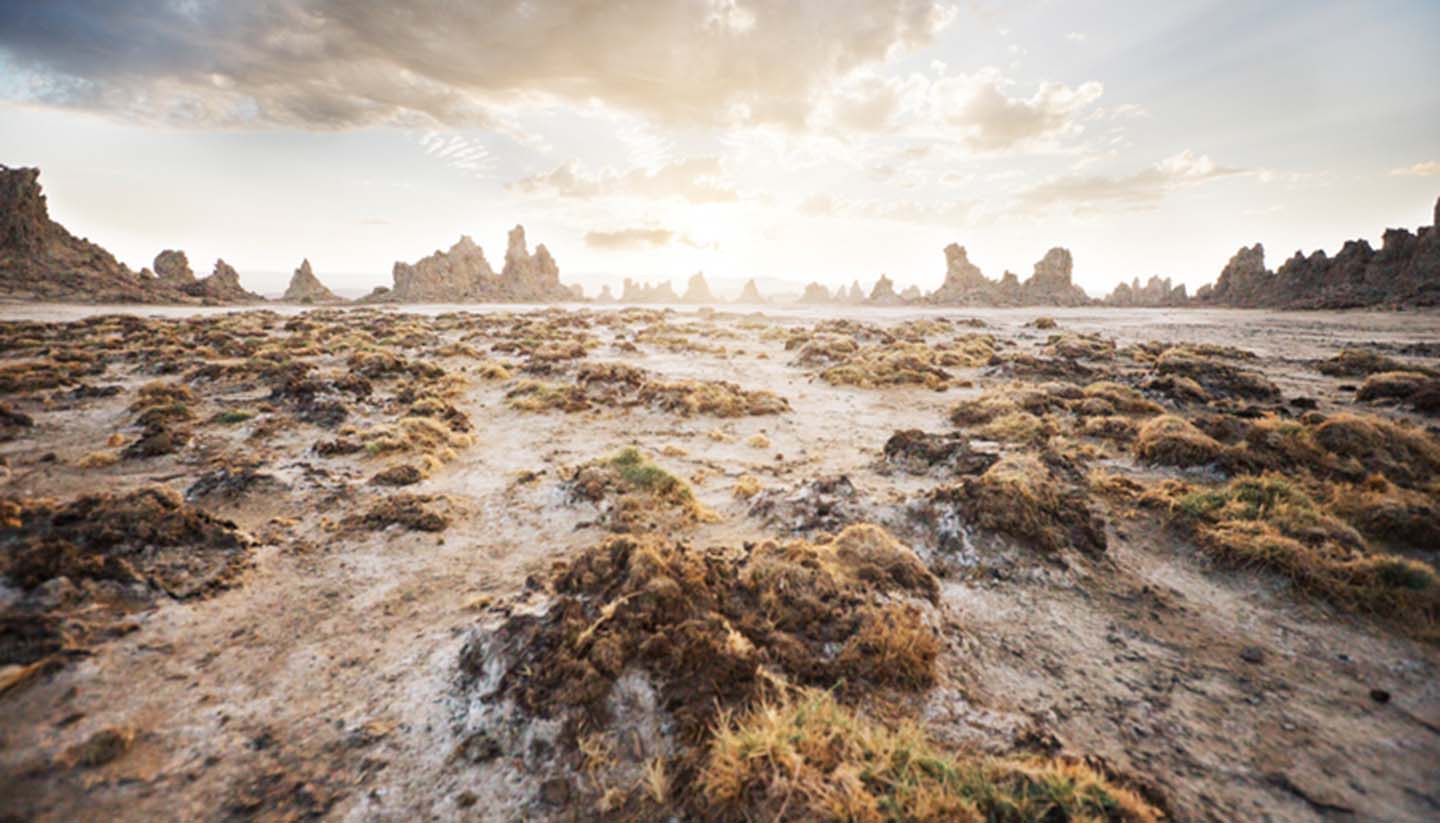
Introducing Djibouti
About djibouti.
- Images of Djibouti
- History, language & culture
- Weather & geography
- Doing business & staying in touch
Plan your trip
- Travel to Djibouti
- Where to stay
While you’re there
- Things to see & do
- Shopping & nightlife
- Food & drink
- Getting around
Before you go
- Passport & visa
- Public Holidays
- Money & duty free
Book your flights
Djibouti travel guide
Tucked away in the Horn of Africa, diminutive Djibouti offers ethereal landscapes, traditional tribes and mega marine life by the camel load – little wonder this slice of East Africa is being touted as the next big thing.
Refreshingly devoid of large-scale tourist developments (for now, at least), you won’t find international hotel chains outside the eponymous colonial capital. Tourists are still something of a rarity and it is not uncommon to be invited into a family’s home to share a pot of tea.
Contrasting strongly with the bright blue skies and the colourful macawis worn by locals, the flat plains outside Djibouti City have a harsh and otherworldly aesthetic, which are celebrated by the local tribespeople in poetry and song. The loose rocks that litter the khaki-coloured ground amid semi-wild herds of camel speak of the country’s volcanic past.
Away from the capital, which is wafted by a cool Red Sea breeze, Djibouti becomes oppressively hot in the summer months. Locals move slowly and purposefully; at least until the daily delivery of khat , a semi-narcotic plant chewed like gum, which seems to stop daily life in its tracks.
If you do manage to defy the heat, there are ample opportunities to connect with the natural world. Visitors can scale the dormant Ardoukoba volcano, explore Lake Assal, the lowest point in Africa, or go snorkelling with whale sharks in the Red Sea. Found in the Bay of Ghoubbet, these slow-moving giants trawl the Djiboutian coast, gorging on plankton.
Exhibiting a blend of African and Arabian culture, the people of Djibouti are equally fascinating. Gracious and welcoming to foreigners, their country still largely works along tribal lines, but it is quiet, unthreatening and small enough to get to grips with. Above all else, though, it’s absolutely stunning.
23,200 sq km (8,958 sq miles).
899,598 (UN estimate 2016).
35.7 per sq km.
President Ismail Omar Guelleh since 1999.
Prime Minister Abdoulkader Kamil Mohamed since 2013.
Travel Advice
Your travel insurance could be invalidated if you travel against advice from the Foreign, Commonwealth & Development Office (FCDO).
Areas where FCDO advises against travel
Djibouti-eritrea border.
FCDO advises against all travel to the Djibouti-Eritrea border.
Before you travel
No travel can be guaranteed safe. Read all the advice in this guide and any specific travel advice that applies to you:
- women travellers
- disabled travellers
LGBT+ travellers
- solo and independent travel
- volunteering and adventure travel
Travel insurance
If you choose to travel, research your destinations and get appropriate travel insurance . Insurance should cover your itinerary, planned activities and expenses in an emergency.
About FCDO travel advice
FCDO provides advice about risks of travel to help British nationals make informed decisions. Find out more about FCDO travel advice .
Follow and contact FCDO travel on Twitter , Facebook and Instagram . You can also sign up to get email notifications when this advice is updated.
This information is for people travelling on a full ‘British citizen’ passport from the UK. It is based on the UK government’s understanding of the current rules for the most common types of travel.
The authorities in Djibouti set and enforce entry rules. If you’re not sure how these requirements apply to you, contact the Djibouti Embassy in the UK .
COVID-19 rules
If you’re fully vaccinated.
To enter Djibouti, you may need to show evidence of full COVID-19 vaccination, but this is rare.
If you are a foreign resident, you may need to show evidence of full vaccination (or medical exemption) to leave the country, but this is rare.
You can find your proof of vaccination in your GP health record on the NHS App .
If you’re not fully vaccinated
If you are unable to show evidence of full vaccination, you may need to show a PCR test certificate or take a PCR test on arrival.
Children and young people
People aged 24 and under do not have to show evidence of vaccination.
If you’re travelling through Djibouti
If you’re travelling through Djibouti on your way to another country and staying in the airport (airside) or on the plane, there are no COVID-19 entry requirements.
If you pass through immigration (sometimes known as a layover), for example to stay in a hotel for a flight the next day, you must follow the Djibouti COVID-19 entry requirements.
You do not need evidence of vaccination if you can show you should not have the vaccine for health reasons or if you:
- are pregnant
- are breast feeding a baby aged 6 months and under
- had COVID-19 less than 4 months before date of travel
Passport validity requirements
To enter Djibouti, your passport must have an ‘expiry date’ at least 6 months after the date you arrive.
Check with your travel provider that your passport and other travel documents meet requirements. Renew your passport if you need to.
You will be denied entry if you do not have a valid travel document or try to use a passport that has been reported lost or stolen.
Visa requirements
You must have a visa to enter Djibouti.
Applying for a visa
You can buy a tourist visa when you arrive in Djibouti with payment in cash in US dollars. You can also apply for a visa online before travelling or contact the Djibouti Embassy . You must have evidence of your onward journey.
Vaccine requirements
To enter Djibouti, you must have a certificate to prove you’ve had a yellow fever vaccination if you’re coming from a country listed as a transmission risk .
For full details about medical entry requirements and recommended vaccinations, see TravelHealthPro’s Djibouti guide .
Customs rules
There are strict rules about goods you can take into or out of Djibouti. You must declare anything that may be prohibited or subject to tax or duty.
This guide also has safety advice for regions of Djibouti .
There is a high threat of terrorist attack globally affecting UK interests and British nationals, including from groups and individuals who view the UK and British nationals as targets. Stay aware of your surroundings at all times.
UK Counter Terrorism Policing has information and advice on staying safe abroad and what to do in the event of a terrorist attack. Find out how to reduce your risk from terrorism while abroad .
Terrorism in Djibouti
Terrorists are likely to try and carry out attacks in Djibouti.
Terrorism attacks could be indiscriminate, including in crowded areas and places frequented by foreign nationals, such as:
- transport hubs
- hotels, restaurants and bars
- shopping areas
- religious events
- sporting events
- military bases
Stay aware of your surroundings, keep up to date with local media reports and follow the advice of local authorities.
The terrorist group Al Shabaab may see Djibouti and international interests within Djibouti as legitimate targets. This is because Djibouti participates in the African Union peacekeeping mission, ATMIS , and joins in international support of the Somali government. Al Shabaab has issued public threats against Djibouti.
Protecting your belongings
There is a risk of petty crime. Take precautions such as:
- not walking alone late at night
- keeping valuables, particularly cameras and passports, out of sight
Laws and cultural differences
Ramadan is a holy month for Muslims. The dates vary by year and country. In 2024, Ramadan runs from 10 March to 8 April. During this time, do not:
- eat, drink, smoke or chew gum in public in the daytime, including in your car
- play loud music or dance
- swear in public
Get more advice when you arrive from your tour guide, hotel or business contacts. You should show respect to those who are fasting and take care not to offend local values.
You should also:
- check opening hours of shops and restaurants
- be aware that if hotels and restaurants are providing food or drink in fasting hours, they may separate you from Islamic guests, for example with screens
- be aware that government offices and public institutions may change their working hours during Ramadan
- follow local dress codes – clothing that does not meet local dress codes may cause more offence at this time
- be aware that fasting can cause tiredness, particularly during the later afternoon and early evening
- be patient and show tolerance
Credit and debit cards are not widely accepted. If credit cards are accepted, you often need a Visa card. ATMs are normally available in Djibouti City, but they may not accept Mastercard. Make sure that you carry enough cash.
Alcohol laws
Drinking alcohol is allowed, but you can get a 2-year prison sentence for drunken behaviour.
Using cameras
Photographing infrastructure, such as ports, public buildings, airports, military facilities, and bridges, is prohibited. Your equipment could be confiscated, and you could be arrested. When taking photos near prohibited places, take care and seek local advice if you are unsure.
Same-sex sexual behaviour is not illegal but is not common in Djiboutian public life. Same-sex couples showing affection in public could attract the attention of the authorities under laws around “good morals”.
Read more advice for LGBT+ travellers .

Transport risks
Road travel.
If you are planning to drive in Djibouti, see information on driving abroad .
You can use a UK photocard driving licence to drive in Djibouti for up to 12 months. If you still have a paper driving licence, you may need to update it to a photocard licence or obtain a local Djiboutian driving licence through the Ministry of Interior.
Driving standards
Driving standards are generally poor. Many drivers use the legal narcotic khat, which contributes to speeding and unsafe driving. Roads are often narrow and poorly lit and maintained.
Stay on paved roads and avoid travelling outside city centres after dark. Vehicles often have no lights and livestock may be on the roads. Many large trucks use the main Djibouti-Ethiopia road.
On some major roads police use wire coils as roadblocks, which are not clearly visible at night.
The UK Air Safety List (ASL) lists all known airlines in Djibouti that do not meet international safety standards and are banned from operating commercial air services to, from, and within the UK. Check the UK Air Safety List when considering which airlines to fly with. The list is maintained by the Department for Transport, based on advice from the UK Civil Aviation Authority .
There is a significant risk of piracy and armed robbery in the Gulf of Aden and Indian Ocean. Pirates continue to attack fishing dhows around the Horn of Africa. International naval counter-piracy forces advise all sailing yachts to avoid the designated high-risk area where there is risk of hijacking. See piracy and armed robbery at sea .
Extreme weather and natural disasters
Find out what you can do to prepare for and respond to extreme weather and natural hazards .
Intense rainfall is rare but can cause flash floods, particularly around Djibouti City. Flash floods can cause:
- major disruption to travel and infrastructure, including schools and public places
- damage to buildings and roads
- water-borne and respiratory disease outbreaks
Stay away from flood areas and follow official advice.
Earthquakes and volcanic eruptions
Earthquakes and volcanic eruptions are a risk in Djibouti. The US Federal Emergency Management Agency website has advice about what to do before, during and after an earthquake .
This section has safety advice for regions of Djibouti. It only covers regions where FCDO has specific advice.
You should also read FCDO ’s overall travel advice and safety and security advice .
In 2008 there were military clashes between Djibouti and Eritrea after Eritrean forces entered the disputed Djibouti border region. The situation remains fragile and further conflict is possible.
Djibouti-Somaliland border
Take great care if you travel to the Djibouti-Somaliland border. The Djiboutian military have set up roadblocks and checkpoints. Follow the advice given by the authorities and seek military approval for journeys in this area.
Landmines near borders
There are unmarked landmines near the Djibouti-Eritrea border. In other border areas most landmines have been marked or cleared. Djibouti’s borders with Ethiopia and Somalia are not always clearly identified.
Roads north of Tadjoura
Take great care travelling on roads north of Tadjoura and Obock where there are military roadblocks.
Respect advice given by those operating the roadblocks. If required, get formal military approval for your journey.
Before you travel check that:
- your destination can provide the healthcare you may need
- you have appropriate travel insurance for local treatment or unexpected medical evacuation
This is particularly important if you have a health condition or are pregnant.
Emergency medical number
Call 21 35 09 62 or 21 35 27 12 and ask for an ambulance.
Contact your insurance company quickly if you’re referred to a medical facility for treatment.
Vaccine recommendations and health risks
At least 8 weeks before your trip:
- check the latest vaccine recommendations for Djibouti
- see where to get vaccines and whether you have to pay on the NHS travel vaccinations page
See what health risks you’ll face in Djibouti , including:
- Schistosoma
The legal status and regulation of some medicines prescribed or bought in the UK can be different in other countries.
Read best practice when travelling with medicines on TravelHealthPro .
The NHS has information on whether you can take your medicine abroad .
Healthcare facilities in Djibouti
Medical facilities in Djibouti are limited. Make sure you have adequate travel health insurance and accessible funds to cover the cost of any medical treatment abroad and repatriation.
FCDO has a list of medical providers in Djibouti where some staff will speak English.
COVID-19 healthcare in Djibouti
If you’re in Djibouti and have COVID-19 symptoms, call the Hospital General Peltier on 21 35 09 62 or 21 35 27 12.
Travel and mental health
Read FCDO guidance on travel and mental health . There is also mental health guidance on TravelHealthPro .
The Foreign, Commonwealth & Development Office ( FCDO ) cannot provide tailored advice for individual trips. Read this travel advice and carry out your own research before deciding whether to travel.
Emergency services in Djibouti
Ambulance: 21 35 09 62 or 21 35 27 12
Contact your travel provider and insurer
Contact your travel provider and your insurer if you are involved in a serious incident or emergency abroad. They will tell you if they can help and what you need to do.
Refunds and changes to travel
For refunds or changes to travel, contact your travel provider. You may also be able to make a claim through insurance. However, insurers usually require you to talk to your travel provider first.
Find out more about changing or cancelling travel plans , including:
- where to get advice if you are in a dispute with a provider
- how to access previous versions of travel advice to support a claim
Support from FCDO
FCDO has guidance on staying safe and what to do if you need help or support abroad, including:
- finding English-speaking lawyers , funeral directors and translators and interpreters in Djibouti
- being arrested or imprisoned in Djibouti
- getting help if you’re a victim of crime
- what to do if you’re in hospital
- if you’re affected by a crisis , such as a terrorist attack
Contacting FCDO
Follow and contact FCDO travel on Twitter , Facebook and Instagram . You can also sign up to get email notifications when this travel advice is updated.
You can also contact FCDO online .
Help abroad in an emergency
If you are in Djibouti and you need emergency help from the UK government, contact the British Embassy in Addis Ababa, Ethiopia , who provide consular assistance for Djibouti.
FCDO in London
You can call FCDO in London if you need urgent help because something has happened to a friend or relative abroad.
Telephone: 020 7008 5000 (24 hours)
Find out about call charges

Book a Hotel
© Columbus Travel Media Ltd. All rights reserved 2024
- TRAVEL JOURNAL
- Write for Traveler’s Buddy
- Media content
- Video Content
- Photography and Video content
A travel guide for Djibouti City – East Africa’s melting pot
Undervalued, charming and enchanting, Djibouti City is a journey through Arab, East African and European influences.
My drive from Djibouti’s international airport to the capital’s city center was calm and straightforward. No masses of people walking on the road, hundreds of cars beeping for no reason, or standstill traffic jams. Way differently – it was so calm, I rolled my window down, noticed the diverse architecture along the streets, and enjoyed the warm wind blowing on my face under the sofocating heat. This was not the chaotic, multicultural East African city I was expecting, but the beginning of rediscovering East Africa and exploring one of Africa’s most interesting capitals: Djibouti City, also known as the Paris of Africa .
A melting pot in the Horn of Africa
My first stop in Djibouti City was the European Quarter, a weird mix of French colonial houses and Moorish architecture. Wandering around this area felt like getting lost in an abandoned French village. Gorgeous, yet broken down classic structures painted in light colours surrounded the main square, while a couple of pâtisseries displayed signs offering fresh orange juice and croissants for breakfast.
And while the highlight of the European Quarter is the central square, Place du 27 Juin 1977, walking around the whole district means getting lost in history and experience the Arab and European influences Djibouti City had over the past decades. This is also the perfect place to get some food during the day, as well enjoy a cold beer at night.
INSIDE INFO: While luxury hotels like Kempinski or Sheraton are located in the district of Heron, I found the European Quarter as the best area to find inexpensive and nice accommodation. Furthermore, take into consideration that many hotels will ask for a certificate of marriage if you are planning to stay with someone from the opposite sex in the same room.
South of the European Quarter is located the African Quarter. This is consider the center of the action and the soul of Djibouti City. Street vendors offering fruits, clothes, or any other possible unnecessary accessory dragged me to see their products, while the crisscross of alleys made me feel I was lost in an urban labyrinth.
This is also the area where the Central Market is located. It is one of the largest markets in the city (Still, very small compared to the ones you see in Somaliland or Ethiopia), and a great place to find local souvenirs, as well great food from the region.
A city with many activities to offer
Most people come to Djibouti City just to do business or to stay overnight before heading to the highlands of the country. During my stay in this capital, I didn’t see another tourist exploring its markets or tasting the local restaurants. However, I think Djibouti City offers a unique mix of cultures that prevailed through decades and makes this city very dynamic and vibrant.
The Hamoudi Mosque, the Turkish Mosque and the presidential palace are outstanding places for a quick visit, while the corniche next to Rue de Venice and Rue de Geneve offer excellent spots to taste the local fish, grab a cold drink and enjoy the view of the harbour.
Djibouti City’s famous beaches, Heron Beach and La Siesta Plage, are unfortunately quite dirty and not the beach experience you want to have. Therefore, if you really want to get into the water without leaving Djibouti City, a hotel with a pool would be the best choice.
Unlike what you expect from a calm and quiet city, nights in Djibouti City are exciting. The bars of corniche area open their doors for locals and visitors and with a wonderful atmosphere and great weather at night, there is probably not a better place in the city to grab a drink, eat some dinner, listen music and smoke some shisha. Other bars in the European Quarter are good for a cold beer and a bite. However, the coastal vibe you would expect from a city next to the sea is not as palpable as in the corniche.
Read more: Best things to do in Hargeisa
NOTE: One of the most popular spots for tourists is the Kempinski Hotel. Here, military members living in Djibouti, business men, as well tourists purchase day passes for the swimming pool area or stay overnight for drinks at the bar. While this is probably the only place in Djibouti City with proper western standards in service and quality, there is not much difference in being there or at any other beach hotel in the world. The beauty of Djibouti City was for me hidden in its alleys and not in their fancy hotels.
Read more: Exploring the White and Black desert in Egypt
Getaways and day trips from Djibouti City
To be honest, Djibouti City is not the place to stay longer than a week. The country has way too much to offer and while the city offers a fresh experience for any traveler exploring East Africa, the real beauty of this tiny country is located far away from the urban areas.
These are some of the best places to explore from Djibouti City on a day trip:
Due to its isolated location, Lac Abbe is rather a place for a 2-day trip from Djibouti City. However, going to Lac Abbe is worth it no matter how long you stay. This is in my opinion one of the places you HAVE to visit if you come to Djibouti, and while tours can be quite pricey, this wonder of nature will leave you speechless.
Its dotted limestone chimneys standing as high as 50 meters transport you to some kind of lunar landscape that makes you forget for a moment that you are on planet earth.
Don’t be confused by its Caribbean lookalike views, Lac Assal is one of the most inhospitable places on earth and one of the most incredible places you can visit as a traveler. Lac Assal is located 150 meters below sea level. It is the third lowest point on earth and the saltiest one outside Antartica.
Day tours to Lac Assal can be easily arrange in Djibouti City and they are not as expensive as going to Lac Abbe. Many travelers even combine Lac Abbe and Lac Assal in a 3-day/2-nights tour.
Moucha Island
For those looking for a proper beach experience, Moucha Island is probably the place to go. This tiny island located 20 minutes from Djibouti City is a very popular getaway for foreigners living in Djibouti.
Here you won’t only find the most beautiful beach of Djibouti, but also a nice spot to do snorkeling, diving or sea kayaking.
Read more: How to cross the border between Djibouti and Somaliland
NOTE: The best way to arrange tours spontaneously, compare local prices and even negotiate the final price is by visiting the National Tourism Office at the European Square. They provide a full travel guide for Djibouti City and its surroundings, information about which tours are available, which regions are accessible and even get you directly in contact with the tour operator.
Djibouti City in a nutshell
Where to eat: The popular Chez Hamdani restaurant located in the African Quarter is always a good choice. This is the place to go for the famous Yemeni fish. However, don’t expect a fancy place, as there are no menus. You simply choose your fish of preference from an open freezer and get your hands dirty enjoying the meal.
Where to drink: Sixteen Eleven Kitch’n is where the fun is at night. This beach bar is located next to the harbour and offers a fresh atmosphere full tasty drinks, great music and shisha. It is a very popular spot for young Djiboutians and a fantastic place to experience how locals enjoy a Friday night.
Where to sleep: With prices over 200 EUR a night, the Kempinski and Sheraton hotels are way too overpriced and while hotels in Djibouti City rarely go under 80 EUR a night, hotels in traditional buildings like Auberge le Heron offer a classic vibe in the middle of this vibrant city.
Where to buy something traditional: Several shops at the European Quarter offer traditional East African souvenirs. However, a popular present to take home could a stone from Lac Assal. These can be sold directly at Lac Assal or at some shops in the city center.
Read more: Exploring East Africa – Visiting the Danakil Depression in Ethiopia
Djibouti is a mix of cultures. It has some sections that made me feel in Europe, others that made me feel in Morocco or Tunisia. At the same time, it is a place in its own and a good 3-4 day stop if you are exploring East Africa. The expensive prices of the country scare travelers. However, this is a place like no other and missing it, would be missing a unique side in Africa.
Read more: A travel guide for Lac Abbe and Lac Assal in Djibouti
How do I find cheap flights to Djibouti?
Finding a cheap flight anywhere around the world is not always easy. It’s about comparing platforms, selecting the right routes and booking at the right time. Fortunately, platforms like Skyscanner became known as an all-in-one tool for booking flights at the lowest cost possible.
They analyse every potential company and sub-contractor in order to find the lowest price available for you. Not only that, but you can also select the option “Travel Anywhere” and let Skyscanner find the cheapest place to travel at any selected date.
I check all my flights first at Skyscanner , and in 90% of the cases, I find the best option for me to book.
Also, by booking here using Skyscanner , you will support my blog and help me create more amazing and useful content.
MY FAVORITE NATIONAL PARKS
Saxon switzerland national park, masai mara natural reserve, bwindi impenetrable forest, white desert protected area, victoria falls national park.

Search Smartraveller

Latest update
Exercise a high degree of caution in Djibouti overall due to the threat of terrorism.
Higher levels apply in some areas.
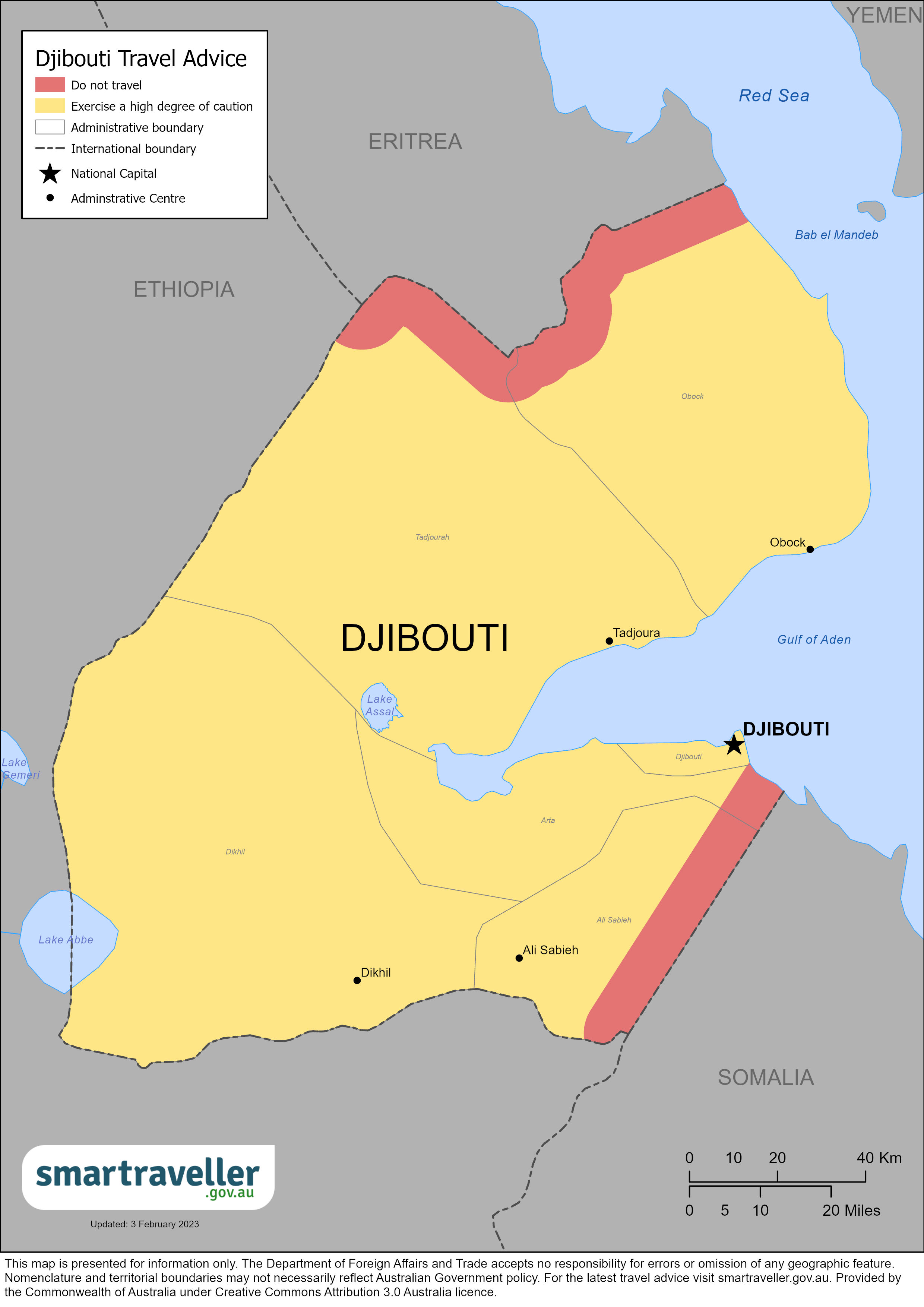
Djibouti (PDF 181.33 KB)
Africa (PDF 1.68 MB)
Emergency contacts
Fire and rescue services, medical emergencies.
Call 18 or go to the nearest hospital.
Call 18, or go to the nearest police station.
Advice levels
Exercise a high degree of caution in Djibouti overall.
Exercise a high degree of caution in Djibouti overall due to the threat of terrorism.
Do not travel within 10km of the border with Eritrea.
Do not travel within 10km of the border with Eritrea due to ongoing border tensions.
Do not travel within 10km of the border with Somalia (Somaliland).
Do not travel within 10km of the border with Somalia (Somaliland) due to the threat of kidnapping.
- Terrorist organisation, Al-Shabaab, maintains an interest in attacking targets in Djibouti. Public places, tourist areas, places of worship, embassies and airports are potential terrorist targets. Check for security warnings before you visit potential targets and be alert in these locations. Monitor the media for new threats and follow the instructions of local authorities.
- There's a high risk of kidnapping within 10km of Djibouti's border with Somalia. Don't travel to this area.
- Pirate attacks are a serious threat. Pirates have attacked vessels and held foreigners hostage for ransom in and around Djibouti's waters and the Gulf of Aden
- Regional conflict can cause civil unrest. Public gatherings can turn violent. Avoid protests.
- Petty crime occurs. Risks increase at night and in isolated locations. Be vigilant and avoid walking alone after dark.
- Bandit groups operate in lawless areas outside the capital. Only drive outside the capital during daylight hours and in a convoy.
- From May to October, Djibouti can experience dust storms and temperatures over 50°C. Be prepared for impacts to essential services, including food and water availability.
Full travel advice: Safety
- Medical facilities in Djibouti are limited. Make sure you have adequate travel insurance including coverage for a medivac if required.
- Insect-borne diseases, including malaria, dengue and filariasis are prevalent. Use insect repellent. Ensure your accommodation is insect-proof.
- Polio outbreaks happen in Djibouti. If you aren't vaccinated, complete the full course of vaccinations before you travel.
- HIV/AIDS is widespread. Take precautions if you're taking part in high-risk activities.
- Djibouti's high temperatures can cause dehydration and heat stroke. Drink plenty of water.
Full travel advice: Health
- Don't use or carry illegal drugs. Penalties for drug offences are severe.
- Understand and follow local laws. Hunting, being drunk in public, consuming alcohol other than in authorised locations and photographing infrastructure or military personnel are illegal.
- Follow local customs. Djibouti is a mostly Muslim country. Dress conservatively and respect religious and social traditions.
- Same-sex relationships are legal, but not widely accepted.
- The Islamic holy month of Ramadan is one of Djibouti's most important religious dates. Don't eat, drink or smoke in public during the month of Ramadan.
Full travel advice: Local laws
- You need a visa to visit Djibouti. Entry and exit conditions can change at short notice. You should contact the nearest embassy or consulate of Djibouti for the latest details.
- You can exchange USD at major banks. Credit cards aren't widely accepted. There are few ATMs and they often don't work. Have several ways to access money.
- Remote areas aren't safe. Don't travel within 10 km of the borders with Somalia or Eritrea. Avoid other remote areas. Remain on sealed roads. Landmines have been identified and marked, but haven't been removed.
- Due to military activity in the Bab-el-Mandab Strait and the increased risk of piracy in Djibouti's coastal waters and the Gulf of Aden, you should limit unnecessary travel to these areas. Check the International Maritime Bureau's piracy reports if you're planning boat travel and follow the advice of local authorities.
Full travel advice: Travel
Local contacts
- Our Consular Services Charter tells you what the Australian Government can and can't do to help you overseas.
- Australia doesn't have an embassy or consulate in Djibouti. For consular assistance, contact the Australian Embassy in Addis Ababa, Ethiopia .
- To stay up to date with local information, follow the Embassy’s social media accounts.
Full travel advice: Local contacts
Full advice
Terrorist organisation, Al-Shabaab, maintains an interest in attacking targets in Djibouti.
A terrorist attack could happen anywhere and at any time. Terrorists may attack Djiboutian or western targets, including travellers.
Terrorist methods could include:
- suicide bombings
- kidnappings
- roadside improvised explosive device (IED) attacks
There is a high threat of kidnapping within 10 km of Djibouti's border with Somalia (Somaliland).
Possible terrorist targets include:
- hotels, clubs, restaurants, and bars
- schools and places of worship
- outdoor recreation events
- markets, shopping areas, tourist areas and historic sites
- foreign military bases, airports, aircraft and military interests
Check the level of security if you're visiting a known target. To reduce your risk:
- be alert in locations that are known terrorist targets
- be alert to possible threats, especially in public
- monitor the media for new threats
- take official warnings seriously
- follow instructions from local authorities
Report any suspicious activity or items to local police.
Terrorism is a threat worldwide.
More information:
There’s a high threat of kidnapping within 10km of Djibouti's border with Somalia (Somaliland). Do not travel to this area.
Kidnapping occurs across the world with political, ideological and criminal motives. Foreigners, including Australians, have been kidnapped overseas while travelling. Kidnaps can happen anywhere, anytime, including in destinations that are typically at lower risk.
The Australian Government's longstanding policy is that it does not make payments or concessions to kidnappers.
If you're travelling to an area where there is a threat of kidnapping:
- seek professional security advice
- have effective personal security measures in place
Civil unrest and political tension
Civil unrest and armed conflict in Somalia, Ethiopia and Eritrea could impact your safety in Djibouti.
The security situation on the Djibouti and Eritrea border is unpredictable. Do not travel within 10km of the border with Eritrea.
To protect yourself during periods of unrest:
- avoid public gatherings, protests and demonstrations
- monitor the media for reports of planned or possible unrest
Public protests and events that draw large groups of people can turn violent.
Demonstrations and civil unrest
Pickpocketing and other petty crimes can happen.
There have been reports of bandit groups outside the capital in areas where the law has broken down.
Crime risks increase at night and in isolated locations such as Dorale and Khor Ambado beaches.
To protect yourself from crime:
- keep vehicle windows closed and doors locked at all times
- keep valuables out of sight, including when you're in a moving vehicle
- secure your accommodation against intruders at all times
- don't walk alone after dark
There's a significant threat of piracy and armed robbery in Djibouti’s coastal waters and the Gulf of Aden, including the Sawabi (Sept-frères) Islands. You should limit unnecessary travel to these areas.
Pirates have attacked vessels and held foreigners hostage for ransom in and around Djibouti's waters.
Limit unnecessary travel to the maritime regions of the Gulf of Aden and the Red Sea.
Attractive targets for pirates include:
- commercial vessels
- pleasure craft
- luxury cruise liners
You should remain out of the designated High Risk Area or face the risk of being hijacked and held hostage for ransom. Check with the Maritime Security Centre (Horn of Africa) at www.mschoa.org .
If you need to travel by boat to Djibouti's coastal waters and surrounds, you should:
- travel in a convoy and maintain good communications
- take appropriate security measures
- follow the latest advice from local authorities
More information
- Piracy reports issued by the International Maritime Bureau (IMB).
Cyber security
You may be at risk of cyber-based threats during overseas travel to any country. Digital identity theft is a growing concern. Your devices and personal data can be compromised, especially if you’re connecting to Wi-Fi, using or connecting to shared or public computers, or to Bluetooth.
Social media can also be risky in destinations where there are social or political tensions, or laws that may seem unreasonable by Australian standards. Travellers have been arrested for things they have said on social media. Don't comment on local or political events on your social media.
More information:
- Cyber security when travelling overseas
Climate and natural disasters
Djibouti can experience severe weather and natural disasters .
It's in an active seismic zone and can experience:
- earthquakes
- volcanic eruptions
To protect yourself if a natural disaster occurs:
- secure your passport in a safe, waterproof location
- monitor local media and other sources
- follow advice from local authorities
- keep in contact with friends and family
Global Disaster Alert and Coordination System
Severe weather
Djibouti experiences extreme temperatures in summer. The hottest months are from May to October. Daytime temperatures can be more than 50°C.
In extreme heat, stay out of the sun and drink plenty of water to avoid dehydration.
Strong dust storms happen in June.
Djibouti is in a long-term drought. In some areas, the drought may affect:
- local services
- water availability
- basic food availability
Parts of Djibouti, including the capital city are prone to floods.
Earthquake and volcanic eruptions
Earthquakes can happen.
Djibouti has one active volcano, Ardoukoba. It last erupted in 1978.
Ash from a volcanic eruption can fall over a wide area.
Volcanic ash, dust and toxic fumes are a significant health risk, especially for people with respiratory problems.
Know the safety measures at each place you stay.
To protect yourself during a volcanic eruption and avoid contact with ash:
- stay inside with the windows and doors shut
- if ash is falling, place damp towels at door thresholds and other draft sources
- wear long-sleeved clothing and long pants
- wear goggles
If you need to go outside, wear a disposable face-mask and change it frequently.
Tsunamis can happen.
Register for tsunami alerts from the Global Disaster Alert and Co-ordination System .
If you're near the coast, move immediately to high ground if advised or if you:
- feel a strong earthquake that makes it hard to stand up
- feel a weak, rolling earthquake that lasts a minute or more
- see a sudden rise or fall in sea level
- hear loud and unusual noises from the sea
Don't wait for official warnings, such as alarms or sirens. Once on high ground, monitor local media.
Travel insurance
Get comprehensive travel insurance before you leave.
Under local law, you must provide proof of adequate travel insurance to cover the full period of your stay, including coverage for a medivac if required.
Your policy needs to cover all overseas medical costs, including medical evacuation. The Australian Government won’t pay for these costs.
If you can't afford travel insurance, you can't afford to travel. This applies to everyone, no matter how healthy and fit you are.
If you're not insured, you may have to pay many thousands of dollars up-front for medical care.
- what activities and care your policy covers
- that your insurance covers you for the whole time you’ll be away
Physical and mental health
Consider your physical and mental health before you travel, especially if you have an existing medical condition.
See your doctor or travel clinic to:
- have a basic health check-up
- ask if your travel plans may affect your health
- plan any vaccinations you need
Do this at least 8 weeks before you leave.
If you have immediate concerns for your welfare, or the welfare of another Australian, call the 24-hour Consular Emergency Centre on +61 2 6261 3305 or contact your nearest Australian Embassy, High Commission or Consulate to discuss counselling hotlines and services available in your location.
- General health advice
- Healthy holiday tips (Healthdirect Australia)
Medications
Not all medication available over the counter or by prescription in Australia is available in other countries. Some may even be considered illegal or a controlled substance, even if prescribed by an Australian doctor.
If you plan to bring medication, check if it's legal in Djibouti. Take enough legal medicine for your trip.
Carry a copy of your prescription or a letter from your doctor stating:
- what the medication is
- your required dosage
- that it's for personal use
More information:
Health risks
Insect-borne diseases.
Malaria occurs through the year. Other diseases spread by insects are a risk, including:
To protect yourself from disease:
- make sure your accommodation is insect-proof
- use insect repellent
- wear long, loose, light-coloured clothing
- consider taking medication to prevent malaria
Get medical advice if you have a fever, muscle pain, rash or severe headache.
Outbreaks of polio (poliomyelitis) happen in Djibouti.
Check your polio vaccination status with your doctor or travel clinic at least 8 weeks before you travel.
If you aren't vaccinated, complete the full course of vaccinations before you leave.
HIV/AIDS is widespread. Take steps to reduce your risk of exposure to the virus.
Other infectious diseases
Foodborne, waterborne and other infectious diseases are common. These include:
- bilharzia (schistosomiasis)
- meningococcal disease
- tuberculosis
Serious outbreaks sometimes occur.
To avoid illness:
- drink boiled water or bottled water with sealed lids in rural areas
- avoid ice cubes in rural areas
- avoid raw and undercooked food
- don't swim in fresh water
- avoid contact with dogs and other animals
Get medical advice if you have a fever or diarrhoea.
Dehydration and heat stroke
High summer temperatures can cause dehydration and heat stroke.
Medical care
Medical facilities.
The standard of medical facilities in Djibouti is poor. Rural areas may have very basic care or none at all. English-speaking staff may not be available.
Payment for medical treatment is required upfront. Your treatment may be delayed if you can’t pay.
Availability of medication in rural areas is limited and can be expensive.
If you become seriously ill or injured, you may need to be evacuated to a place with better facilities. Medical evacuation can be very expensive. Make sure you have adequate travel insurance, including for medical evacuation.
- Death overseas
You're subject to all local laws and penalties, including those that may appear harsh by Australian standards. Research local laws before travelling.
While the consumption of alcohol is legal, the sale and consumption of alcohol in all but approved locations (such as hotels) is illegal. Public intoxication is illegal and includes a penalty of up to two years imprisonment.
Photography of military installations and public infrastructure is forbidden.
If you're arrested or jailed, the Australian Government will do what it can to help you under our Consular Services Charter . But we can't get you out of trouble or out of jail.
Penalties for drug offences are severe and include long jail sentences and heavy fines.
The narcotic khat is legal in Djibouti, but illegal in many other countries.
- Carrying or using drugs
Illegal activities in Djibouti include:
- being drunk in public
- photographing military personnel
It's also illegal to photograph infrastructure, such as government buildings, ports, airports, bridges and military facilities.
If you take photos near prohibited places, you may:
- have your equipment confiscated
- be arrested
If in doubt, ask for advice from local authorities.
Australian laws
Some Australian criminal laws still apply when you’re overseas. If you break these laws, you may face prosecution in Australia.
Staying within the law and respecting customs
Dual citizenship
Dual nationals
Local customs
Over 94% of Djiboutians are Muslim. Standards for dress and behaviour are conservative. Be respectful toward religious and social traditions.
The working week is Sunday to Thursday. Many shops, clinics, and other amenities are closed on Fridays.
LGBTQIA+ information
Same-sex relationships are legal in Djibouti, but not widely accepted.
Advice for LGBTQIA+ travellers
Cultural dates
The Islamic holy month of Ramadan is observed in Djibouti. Respect religious and cultural customs and laws at this time.
During Ramadan, avoid eating, drinking and smoking in public during the day. If you're not fasting, avoid these activities around people who are. Seek local advice to avoid offence.
Airline schedules can be affected during the month of Ramadan. Check flight schedules with your travel provider.
Explore our Ramadan page to learn more, including dates for Ramadan.
Visas and border measures
Every country or territory decides who can enter or leave through its borders. For specific information about the evidence you'll need to enter a foreign destination, check with the nearest embassy, consulate or immigration department of the destination you're entering.
Visa conditions
You need a visa to visit Djibouti. Check the official e-visa portal for information.
Entry and exit conditions can change at short notice. Contact the Embassy of Djibouti in Tokyo for details about visas, currency, customs and quarantine rules.
Border measures
To enter Djibouti, you may be required to show a copy of your COVID-19 vaccination certificate.
You may need a valid yellow fever vaccination certificate to enter Djibouti, especially if you're arriving from a country where yellow fever is common.
Countries with a risk of yellow fever
Some countries won’t let you enter unless your passport is valid for 6 months after you plan to leave that country. It can apply even if you’re just transiting or stopping over.
Some foreign governments and airlines apply the rule inconsistently. Travellers can receive conflicting advice from different sources.
You can end up stranded if your passport is not valid for more than 6 months.
The Australian Government does not set these rules. Check your passport’s expiry date before you travel. If you’re not sure it’ll be valid for long enough, consider getting a new passport .
Lost or stolen passport
Your passport is a valuable document. It's attractive to people who may try to use your identity to commit crimes.
Some people may try to trick you into giving them your passport. Always keep it in a safe place.
If your passport is lost or stolen, tell the Australian Government as soon as possible.
- In Australia, contact the Australian Passport Information Service .
- If you're overseas, contact the nearest Australian embassy or consulate .
Passport with ‘X’ gender identifier
Although Australian passports comply with international standards for sex and gender, we can’t guarantee that a passport showing 'X' in the sex field will be accepted for entry or transit by another country. Contact the nearest embassy, high commission or consulate of your destination before you arrive at the border to confirm if authorities will accept passports with 'X' gender markers.
More information:
- LGBTQIA+ travellers
The local currency is the Djibouti Franc (DJF).
Traveller's cheques can be exchanged at major banks.
Djibouti has a cash-based economy. Credit cards aren't widely accepted. USD can be changed at major hotels and some banks.
There are a limited number of ATMs, but they often don't work.
Ask your bank if your card will work in Djibouti.
Local travel
Telecommunications.
Communications networks are limited in the city of Djibouti. Outside the capital, mobile coverage is often unavailable or non-existent. Consider getting a local SIM. You will need to present your passport to purchase a local SIM.
Djibouti is a 'mine-safe' country. This means landmines have been identified and marked, but haven't been removed.
For your safety, remain on paved roads, especially in:
- northern districts of Tadjoura and Obock
- southern district of Ali Sabieh
Remote areas
Security is limited in remote areas, including regions bordering Ethiopia and Somalia.
You need permission from the Government of Djibouti to travel above the 12° north latitude line, which passes through Obock.
Avoid travel to remote areas.
Essential services
Djibouti is one of the world's most arid countries experiencing severe drought. In some areas, the drought may affect:
Driving permit
To drive in Djibouti, you need both:
- a valid Australian driver’s licence
- a valid International Driving Permit (IDP)
You must get your IDP before leaving Australia.
Road travel
Conditions on roads are unsafe, especially in central Djibouti and the Ethiopia-Djibouti border.
Hazards include:
- narrow or poorly lit roads
- poorly maintained roads and vehicles
- poorly managed traffic
- inadequate signs at railway crossings
- roaming livestock, especially at night
The standard of driving and vehicle maintenance is poor. Exercise caution at intersections; drivers often run red lights and do not stop at intersections. Avoid driving outside the city, especially to the north and Abbey Lake.
Police have set up wire coils as roadblocks on some major roads, which can be difficult to see at night.
In an accident, drivers must wait at the scene until police arrive.
Bandit groups are a threat outside the capital.
Before you drive:
- check you have adequate insurance
- check local traffic laws and practices
- check local information on road conditions, including security risks
To reduce your risks while driving:
- before embarking on long drives, get enough fuel
- only drive outside the capital during daylight hours and in a convoy
- be alert to hazards, especially at night
- don't drink and drive
- Driving or riding
Motorcycles
Check whether your travel insurance policy covers you when using a motorcycle, quad bike or similar vehicle.
Always wear a helmet.
Avoid using taxis; they are often in poor condition and unsafe.
Use a reputable car rental company or hotel transport provider.
Public transport
Public transport is limited to bus and ferry services between the capital city and the towns of Tadjoura and Obock. Avoid travel by public transport.
Don't travel at night.
Transport and getting around safely
There's a high risk of piracy in coastal areas. See Safety
To stay safe when travelling on the water :
- use a reputable provider
- always wear a life jacket
- exercise extreme caution
- take appropriate security precautions
DFAT doesn't provide information on the safety of individual commercial airlines or flight paths.
Check Djibouti's air safety profile with the Aviation Safety Network.
Emergencies
Depending on what you need, contact your:
- family and friends
- travel agent
- insurance provider
Always get a police report when you report a crime.
Your insurer should have a 24-hour emergency number.
Consular contacts
Read the Consular Services Charter to find out what the Australian Government can and can't do to help you overseas.
Australia doesn't have an embassy or consulate in Djibouti.
For consular assistance, contact the Australian Embassy in Addis Ababa, Ethiopia.
Australian Embassy, Addis Ababa
Turkish compound (off Cape Verde street)
Bole Subcity, Woreda 3
PO Box 3715
Addis Ababa, Ethiopia
Phone: +251 11 6672651 / 6672652 / 6672693 / 6672694
Email: [email protected]
Website: ethiopia.embassy.gov.au
Facebook: @AusEmb.ET
X: @AusEmbET
See the Embassy website for details about opening hours and any temporary closures.
24-hour Consular Emergency Centre
In a consular emergency, if you can't contact and embassy, call the 24-hour Consular Emergency Centre on:
- +61 2 6261 3305 from overseas
- 1300 555 135 in Australia

Travelling to Djibouti?
Sign up to get the latest travel advice updates..
Be the first to know official government advice when travelling.

- South Sudan
- Visa Information
- Terms & Conditions
- About Visit Horn Africa
Djibouti in Africa combines influences from the African, Arab, and Indian oceans. Most of the inhabitants are Muslim, with Somali the predominant language, and outside the capital, rural areas are home to a small number of Afar tribespeople leading nomadic and traditional lives. Travel in Djibouti City is a wild ride, taking you through bustling city streets to apocalyptic landscapes, baking under a cloudless African sky.
Tours to Djibouti
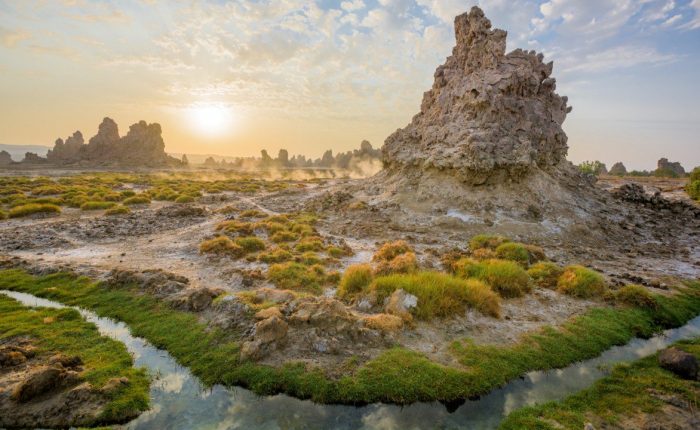
Discover the Hidden Gems of Djibouti in 4 Days
————————————————————— DURATION: 4 days (All-inclusive) ————————————————————— RANGE OF PRICES: $750 – $1100 —————————————————————- COUNTRIES: Djibouti

Discover Two Lakes and Whale Sharks in Djibouti
————————————————————— DURATION: 5 days (All-inclusive) ————————————————————— RANGE OF PRICES: $800 – $1400 —————————————————————- COUNTRIES: Djibouti
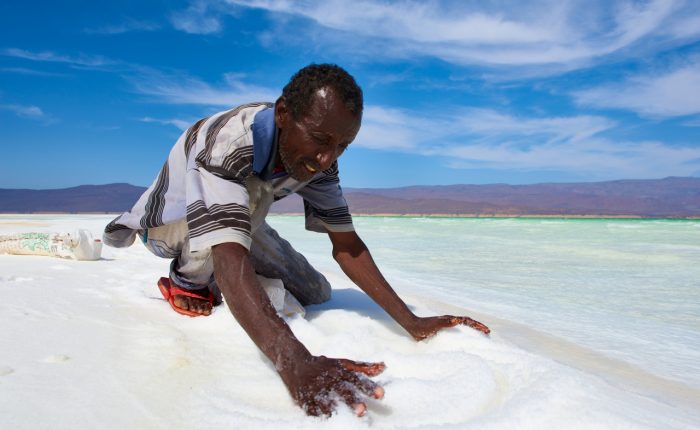
The Djibouti Short Adventure Tour
————————————————————— DURATION: 3 days (All-inclusive) ————————————————————— RANGE OF PRICES: $500 – $700 —————————————————————- COUNTRIES: Djibouti
Combined Tours with Djibouti

Horn of Africa Adventure Tour
————————————————————— DURATION: 7 days (All-inclusive) ————————————————————— RANGE OF PRICES: $1700 – 2600 ————————————————————— COUNTRIES: Djibouti, Somaliland & Somalia

Combo tour for Djibouti and Somaliland
————————————————————— DURATION: 6 days (All-inclusive) ————————————————————— RANGE OF PRICES: $1170 – $1690 ————————————————————— COUNTRIES: Djibouti and Somaliland

Horn of Africa: Somaliland – Djibouti – South Sudan Tour
————————————————————— DURATION: 7 days (All-inclusive) ————————————————————— RANGE OF PRICES: $1560 – $2400 ————————————————————— COUNTRIES: Djibouti, Somaliland & South Sudan
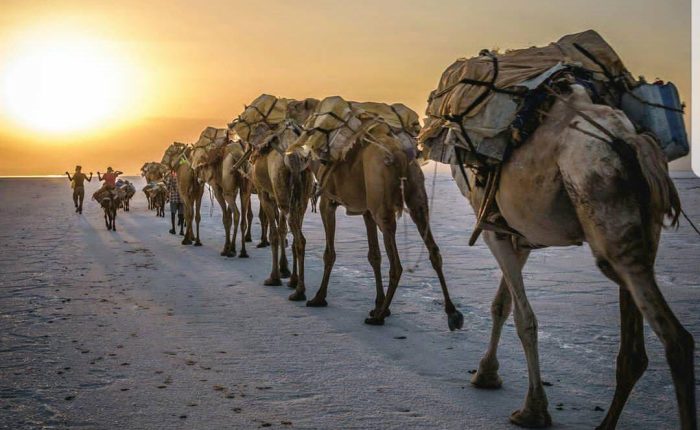
Explore Horn of Africa: Djibouti – Somaliland – Eritrea
————————————————————— DURATION: 7 days (All-inclusive) ————————————————————— RANGE OF PRICES: $1800 – $2665 —————————————————————- COUNTRIES: Somaliland, Djibouti & Eritrea
Djibouti – Somaliland – Eritrea Off the Beaten Path
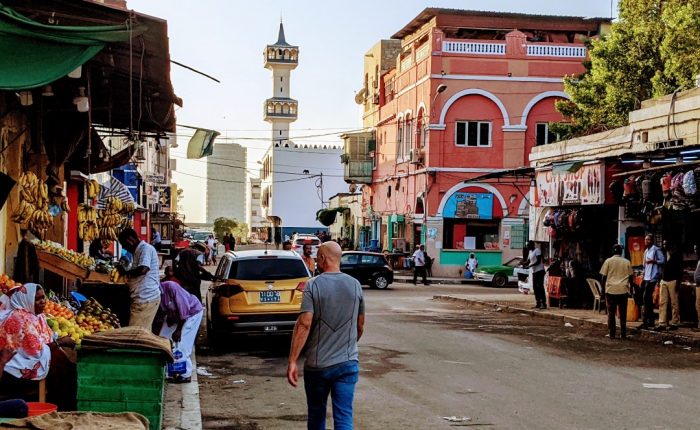
Privacy Overview
Pin it on pinterest.
- visithornofafrica
- visithornafrica
- Skip to main content
- Skip to "About this site"
Language selection
Search travel.gc.ca.
Help us to improve our website. Take our survey !
COVID-19: travel health notice for all travellers
Djibouti travel advice
Latest updates: The Need help? section was updated.
Last updated: March 25, 2024 10:37 ET
On this page
Safety and security, entry and exit requirements, laws and culture, natural disasters and climate, djibouti - exercise a high degree of caution.
Exercise a high degree of caution in Djibouti due to crime.
Djibouti-Eritrea border - Avoid non-essential travel
Avoid non-essential travel to the area within 10 km of Djibouti’s border with Eritrea, due to tensions between the two countries.
Back to top
Djibouti–Eritrea border
The security situation along the border is unstable due to tensions between Djibouti and Eritrea.
Border areas
The borders between Djibouti and Somalia and between Djibouti and Ethiopia are not always clearly identified. There could be unexploded landmines in these areas.
There is a threat of terrorism. Terrorist attacks could occur at any time.
Targets could include:
- government buildings, including schools
- places of worship
- airports and other transportation hubs and networks
- public areas such as tourist attractions, restaurants, bars, coffee shops, shopping centres, markets, hotels and other sites frequented by foreigners
Always be aware of your surroundings when in public places.
Petty crime such as pickpocketing and purse snatching occurs. There are also incidents of theft from vehicles.
- Be vigilant in public places and avoid walking alone after dark
- Don’t show signs of affluence
- Ensure that your personal belongings, including passport and other travel documents, are secure at all times
- Because of their isolation, avoid visiting the beaches in Doralé and Khor Ambado late in the afternoon
Demonstrations
Demonstrations take place from time to time. Even peaceful demonstrations can turn violent at any time. They can also lead to disruptions to traffic and public transportation.
- Avoid areas where demonstrations and large gatherings are taking place
- Follow the instructions of local authorities
- Monitor local media for information on ongoing demonstrations
Mass gatherings (large-scale events)
Road safety
Some streets are narrow, poorly maintained and lack adequate lighting. Local driving habits, pedestrians, roaming livestock and excessive speeds pose additional risks.
Major roads are paved, but often lack guardrails. Police may set up roadblocks of wire coils, which may be difficult to see at night. Railway crossings are not well indicated.
In the event of an accident, remain in the car and wait until the police arrive on the scene.
Don’t travel after dark.
Operational gas stations are located far from one another and are mostly found in:
Ensure you have sufficient fuel reserves before undertaking long drives./p>
While Djibouti has been declared a “mine safe” country, you should stay on paved roads, particularly in the northern districts of Obock and Tadjourah, as well as Ali Sabieh in the south, where mines have been found.
Identification
You should always carry photo identification, preferably a certified copy of your passport’s identification page.
Public transportation
Intercity public travel is limited to bus and ferry services between Djibouti and the cities of Obock and Tadjourah. Buses are poorly maintained and driven erratically.
Tourist facilities
Modern tourist facilities and communications networks are limited in the city of Djibouti and scarce in many outlying areas. Outside the capital, cell phone coverage is often unavailable.
Pirate attacks and armed robbery against ships occur in coastal waters and in some cases, further out at sea. Mariners should take appropriate precautions.
Live piracy report - International Maritime Bureau
We do not make assessments on the compliance of foreign domestic airlines with international safety standards.
Information about foreign domestic airlines
Every country or territory decides who can enter or exit through its borders. The Government of Canada cannot intervene on your behalf if you do not meet your destination’s entry or exit requirements.
We have obtained the information on this page from the authorities of Djibouti. It can, however, change at any time.
Verify this information with the Foreign Representatives in Canada .
Entry requirements vary depending on the type of passport you use for travel.
Before you travel, check with your transportation company about passport requirements. Its rules on passport validity may be more stringent than the country’s entry rules.
Regular Canadian passport
Your passport must be valid for at least 6 months beyond the date you expect to leave Djibouti.
Passport for official travel
Different entry rules may apply.
Official travel
Passport with “X” gender identifier
While the Government of Canada issues passports with an “X” gender identifier, it cannot guarantee your entry or transit through other countries. You might face entry restrictions in countries that do not recognize the “X” gender identifier. Before you leave, check with the closest foreign representative for your destination.
Other travel documents
Different entry rules may apply when travelling with a temporary passport or an emergency travel document. Before you leave, check with the closest foreign representative for your destination.
Useful links
- Foreign Representatives in Canada
- Canadian passports
Tourist visa: required Business visa: required Student visa: required (a tourist visa is issued to students)
Electronic visas - Government of Djibouti
Yellow fever
Learn about potential entry requirements related to yellow fever (vaccines section).
Children and travel
Learn more about travelling with children .
Relevant Travel Health Notices
- Global Measles Notice - 13 March, 2024
- COVID-19 and International Travel - 13 March, 2024
This section contains information on possible health risks and restrictions regularly found or ongoing in the destination. Follow this advice to lower your risk of becoming ill while travelling. Not all risks are listed below.
Consult a health care professional or visit a travel health clinic preferably 6 weeks before you travel to get personalized health advice and recommendations.
Routine vaccines
Be sure that your routine vaccinations , as per your province or territory , are up-to-date before travelling, regardless of your destination.
Some of these vaccinations include measles-mumps-rubella (MMR), diphtheria, tetanus, pertussis, polio, varicella (chickenpox), influenza and others.
Pre-travel vaccines and medications
You may be at risk for preventable diseases while travelling in this destination. Talk to a travel health professional about which medications or vaccines may be right for you, based on your destination and itinerary.
There is a risk of hepatitis A in this destination. It is a disease of the liver. People can get hepatitis A if they ingest contaminated food or water, eat foods prepared by an infectious person, or if they have close physical contact (such as oral-anal sex) with an infectious person, although casual contact among people does not spread the virus.
Practise safe food and water precautions and wash your hands often. Vaccination is recommended for all travellers to areas where hepatitis A is present.
Measles is a highly contagious viral disease. It can spread quickly from person to person by direct contact and through droplets in the air.
Anyone who is not protected against measles is at risk of being infected with it when travelling internationally.
Regardless of where you are going, talk to a health care professional before travelling to make sure you are fully protected against measles.
Hepatitis B is a risk in every destination. It is a viral liver disease that is easily transmitted from one person to another through exposure to blood and body fluids containing the hepatitis B virus. Travellers who may be exposed to blood or other bodily fluids (e.g., through sexual contact, medical treatment, sharing needles, tattooing, acupuncture or occupational exposure) are at higher risk of getting hepatitis B.
Hepatitis B vaccination is recommended for all travellers. Prevent hepatitis B infection by practicing safe sex, only using new and sterile drug equipment, and only getting tattoos and piercings in settings that follow public health regulations and standards.
The best way to protect yourself from seasonal influenza (flu) is to get vaccinated every year. Get the flu shot at least 2 weeks before travelling.
The flu occurs worldwide.
- In the Northern Hemisphere, the flu season usually runs from November to April.
- In the Southern Hemisphere, the flu season usually runs between April and October.
- In the tropics, there is flu activity year round.
The flu vaccine available in one hemisphere may only offer partial protection against the flu in the other hemisphere.
The flu virus spreads from person to person when they cough or sneeze or by touching objects and surfaces that have been contaminated with the virus. Clean your hands often and wear a mask if you have a fever or respiratory symptoms.
Coronavirus disease (COVID-19) is an infectious viral disease. It can spread from person to person by direct contact and through droplets in the air.
It is recommended that all eligible travellers complete a COVID-19 vaccine series along with any additional recommended doses in Canada before travelling. Evidence shows that vaccines are very effective at preventing severe illness, hospitalization and death from COVID-19. While vaccination provides better protection against serious illness, you may still be at risk of infection from the virus that causes COVID-19. Anyone who has not completed a vaccine series is at increased risk of being infected with the virus that causes COVID-19 and is at greater risk for severe disease when travelling internationally.
Before travelling, verify your destination’s COVID-19 vaccination entry/exit requirements. Regardless of where you are going, talk to a health care professional before travelling to make sure you are adequately protected against COVID-19.
Malaria is a serious and sometimes fatal disease that is caused by parasites spread through the bites of mosquitoes.
Malaria is a risk to travellers to this destination. Antimalarial medication is recommended for most travellers to this destination and should be taken as recommended. Consult a health care professional or visit a travel health clinic before travelling to discuss your options. It is recommended to do this 6 weeks before travel, however, it is still a good idea any time before leaving. Protect yourself from mosquito bites at all times:
- Cover your skin and use an approved insect repellent on uncovered skin.
- Exclude mosquitoes from your living area with screening and/or closed, well-sealed doors and windows.
- Use insecticide-treated bed nets if mosquitoes cannot be excluded from your living area.
- Wear permethrin-treated clothing.
If you develop symptoms similar to malaria when you are travelling or up to a year after you return home, see a health care professional immediately. Tell them where you have been travelling or living.
Yellow fever is a disease caused by a flavivirus from the bite of an infected mosquito.
Travellers get vaccinated either because it is required to enter a country or because it is recommended for their protection.
- There is no risk of yellow fever in this country.
Country Entry Requirement*
- Proof of vaccination is required if you are coming from or have transited through an airport of a country where yellow fever occurs.
Recommendation
- Vaccination is not recommended.
- Discuss travel plans, activities, and destinations with a health care professional.
- Contact a designated Yellow Fever Vaccination Centre well in advance of your trip to arrange for vaccination.
About Yellow Fever
Yellow Fever Vaccination Centres in Canada * It is important to note that country entry requirements may not reflect your risk of yellow fever at your destination. It is recommended that you contact the nearest diplomatic or consular office of the destination(s) you will be visiting to verify any additional entry requirements.
In this destination, rabies is commonly carried by dogs and some wildlife, including bats. Rabies is a deadly disease that spreads to humans primarily through bites or scratches from an infected animal. While travelling, take precautions , including keeping your distance from animals (including free-roaming dogs), and closely supervising children.
If you are bitten or scratched by a dog or other animal while travelling, immediately wash the wound with soap and clean water and see a health care professional. In this destination, rabies treatment may be limited or may not be available, therefore you may need to return to Canada for treatment.
Before travel, discuss rabies vaccination with a health care professional. It may be recommended for travellers who are at high risk of exposure (e.g., occupational risk such as veterinarians and wildlife workers, children, adventure travellers and spelunkers, and others in close contact with animals).
The World Health Organization (WHO) has identified this country as no longer poliovirus-infected but at high risk of an outbreak . Polio can be prevented by vaccination.
Recommendations:
- Be sure that your polio vaccinations are up to date before travelling. Polio is part of the routine vaccine schedule for children in Canada.
- One booster dose of the polio vaccine is recommended as an adult .
Safe food and water precautions
Many illnesses can be caused by eating food or drinking beverages contaminated by bacteria, parasites, toxins, or viruses, or by swimming or bathing in contaminated water.
- Learn more about food and water precautions to take to avoid getting sick by visiting our eat and drink safely abroad page. Remember: Boil it, cook it, peel it, or leave it!
- Avoid getting water into your eyes, mouth or nose when swimming or participating in activities in freshwater (streams, canals, lakes), particularly after flooding or heavy rain. Water may look clean but could still be polluted or contaminated.
- Avoid inhaling or swallowing water while bathing, showering, or swimming in pools or hot tubs.
Cholera is a risk in parts of this country. Most travellers are at very low risk.
To protect against cholera, all travellers should practise safe food and water precautions .
Travellers at higher risk of getting cholera include those:
- visiting, working or living in areas with limited access to safe food, water and proper sanitation
- visiting areas where outbreaks are occurring
Vaccination may be recommended for high-risk travellers, and should be discussed with a health care professional.
Travellers' diarrhea is the most common illness affecting travellers. It is spread from eating or drinking contaminated food or water.
Risk of developing travellers' diarrhea increases when travelling in regions with poor standards of hygiene and sanitation. Practise safe food and water precautions.
The most important treatment for travellers' diarrhea is rehydration (drinking lots of fluids). Carry oral rehydration salts when travelling.
Typhoid is a bacterial infection spread by contaminated food or water. Risk is higher among children, travellers going to rural areas, travellers visiting friends and relatives or those travelling for a long period of time.
Travellers visiting regions with a risk of typhoid, especially those exposed to places with poor sanitation, should speak to a health care professional about vaccination.
Insect bite prevention
Many diseases are spread by the bites of infected insects such as mosquitoes, ticks, fleas or flies. When travelling to areas where infected insects may be present:
- Use insect repellent (bug spray) on exposed skin
- Cover up with light-coloured, loose clothes made of tightly woven materials such as nylon or polyester
- Minimize exposure to insects
- Use mosquito netting when sleeping outdoors or in buildings that are not fully enclosed
To learn more about how you can reduce your risk of infection and disease caused by bites, both at home and abroad, visit our insect bite prevention page.
Find out what types of insects are present where you’re travelling, when they’re most active, and the symptoms of the diseases they spread.
There is a risk of chikungunya in this country. The risk may vary between regions of a country. Chikungunya is a virus spread through the bite of an infected mosquito. Chikungunya can cause a viral disease that typically causes fever and pain in the joints. In some cases, the joint pain can be severe and last for months or years.
Protect yourself from mosquito bites at all times. There is no vaccine available for chikungunya.
- In this country, dengue is a risk to travellers. It is a viral disease spread to humans by mosquito bites.
- Dengue can cause flu-like symptoms. In some cases, it can lead to severe dengue, which can be fatal.
- The level of risk of dengue changes seasonally, and varies from year to year. The level of risk also varies between regions in a country and can depend on the elevation in the region.
- Mosquitoes carrying dengue typically bite during the daytime, particularly around sunrise and sunset.
- Protect yourself from mosquito bites . There is no vaccine or medication that protects against dengue.
Animal precautions
Some infections, such as rabies and influenza, can be shared between humans and animals. Certain types of activities may increase your chance of contact with animals, such as travelling in rural or forested areas, camping, hiking, and visiting wet markets (places where live animals are slaughtered and sold) or caves.
Travellers are cautioned to avoid contact with animals, including dogs, livestock (pigs, cows), monkeys, snakes, rodents, birds, and bats, and to avoid eating undercooked wild game.
Closely supervise children, as they are more likely to come in contact with animals.
Human cases of avian influenza have been reported in this destination. Avian influenza is a viral infection that can spread quickly and easily among birds and in rare cases it can infect mammals, including people. The risk is low for most travellers.
Avoid contact with birds, including wild, farm, and backyard birds (alive or dead) and surfaces that may have bird droppings on them. Ensure all poultry dishes, including eggs and wild game, are properly cooked.
Travellers with a higher risk of exposure include those:
- visiting live bird/animal markets or poultry farms
- working with poultry (such as chickens, turkeys, domestic ducks)
- hunting, de-feathering, field dressing and butchering wild birds and wild mammals
- working with wild birds for activities such as research, conservation, or rehabilitation
- working with wild mammals, especially those that eat wild birds (e.g., foxes)
All eligible people are encouraged to get the seasonal influenza shot, which will protect them against human influenza viruses. While the seasonal influenza shot does not prevent infection with avian influenza, it can reduce the chance of getting sick with human and avian influenza viruses at the same time.
Person-to-person infections
Stay home if you’re sick and practise proper cough and sneeze etiquette , which includes coughing or sneezing into a tissue or the bend of your arm, not your hand. Reduce your risk of colds, the flu and other illnesses by:
- washing your hands often
- avoiding or limiting the amount of time spent in closed spaces, crowded places, or at large-scale events (concerts, sporting events, rallies)
- avoiding close physical contact with people who may be showing symptoms of illness
Sexually transmitted infections (STIs) , HIV , and mpox are spread through blood and bodily fluids; use condoms, practise safe sex, and limit your number of sexual partners. Check with your local public health authority pre-travel to determine your eligibility for mpox vaccine.
Tuberculosis is an infection caused by bacteria and usually affects the lungs.
For most travellers the risk of tuberculosis is low.
Travellers who may be at high risk while travelling in regions with risk of tuberculosis should discuss pre- and post-travel options with a health care professional.
High-risk travellers include those visiting or working in prisons, refugee camps, homeless shelters, or hospitals, or travellers visiting friends and relatives.
HIV (Human Immunodeficiency Virus) is a virus that attacks and impairs the immune system, resulting in a chronic, progressive illness known as AIDS (Acquired Immunodeficiency Syndrome).
High risk activities include anything which puts you in contact with blood or body fluids, such as unprotected sex and exposure to unsterilized needles for medications or other substances (for example, steroids and drugs), tattooing, body-piercing or acupuncture.
Medical services and facilities
Medical facilities are limited in the capital and almost nonexistent in many outlying areas. Medicines can be extremely expensive. Medical evacuation is necessary for serious illness cases or accidents.
Make sure you get travel insurance that includes coverage for medical evacuation and hospital stays.
Travel health and safety
Keep in Mind...
The decision to travel is the sole responsibility of the traveller. The traveller is also responsible for his or her own personal safety.
Be prepared. Do not expect medical services to be the same as in Canada. Pack a travel health kit , especially if you will be travelling away from major city centres.
You must abide by local laws.
Learn about what you should do and how we can help if you are arrested or detained abroad .
Penalties for possession, use or trafficking of illegal drugs are severe. Convicted offenders can expect long prison sentences and heavy fines.
Consumption of alcohol is authorized, but public displays of drunkenness could result in a two-year prison term.
Drugs, alcohol and travel
Illegal or restricted activities
Hunting is prohibited by law.
Photography
Photography of military installations is prohibited.
Ask permission before photographing individuals.
2SLGBTQI+ travellers
Although the laws of Djibouti don’t prohibit sexual acts between individuals of the same sex, homosexuality is not socially tolerated.
2SLGBTQI+ travellers could face arrest under other charges. Laws that prohibit attacks on “good morals” have been used to prosecute public displays of same-sex conduct.
2SLGBTQI+ travellers should carefully consider the risks of travelling to Djibouti.
Travel and your sexual orientation, gender identity, gender expression and sex characteristics
In 2024, the lunar month of Ramadan is expected to begin on or around March 10.
In public, between sunrise and sunset, refrain from:
Islamic practices and beliefs are part of Djibouti’s customs, laws and regulations. It is forbidden to produce, display publicly or sell any object, image, film or audio-visual recording considered contrary to accepted standards of behaviour.
- Exercise common sense and discretion in dress and behaviour
- Dress conservatively and respect religious and social traditions to avoid offending local sensitivities
Dual citizenship
Dual citizenship is legally recognized in Djibouti.
If you are a Canadian citizen, but also a citizen of Djibouti, our ability to offer you consular services may be limited while you're there. You may also be subject to different entry/exit requirements .
Travellers with dual citizenship
International Child Abduction
The Hague Convention on the Civil Aspects of International Child Abduction is an international treaty. It can help parents with the return of children who have been removed to or retained in certain countries in violation of custody rights. It does not apply between Canada and Djibouti.
If your child was wrongfully taken to, or is being held in Djibouti by an abducting parent:
- act as quickly as you can
- consult a lawyer in Canada and in Djibouti to explore all the legal options for the return of your child
- report the situation to the nearest Canadian government office abroad or to the Vulnerable Children’s Consular Unit at Global Affairs Canada by calling the Emergency Watch and Response Centre.
If your child was removed from a country other than Canada, consult a lawyer to determine if The Hague Convention applies.
Be aware that Canadian consular officials cannot interfere in private legal matters or in another country’s judicial affairs.
- International Child Abduction: A Guidebook for Left-Behind Parents
- Travelling with children
- Canadian embassies and consulates by destination
- Emergency Watch and Response Centre
You should carry an international driving permit
International Driving Permit
The currency of Djibouti is the Djiboutian franc. The economy is predominately cash based. Ensure you carry enough currency, as credit and debit cards are not widely accepted.
The climate is very dry and hot from May to October.
Djibouti is located in a seismic zone.
Local services
Dial 18 for emergency assistance.
Consular assistance
For emergency consular assistance, call the Embassy of Canada in Addis Ababa, Ethiopia, and follow the instructions. At any time, you may also contact the Emergency Watch and Response Centre in Ottawa.
The decision to travel is your choice and you are responsible for your personal safety abroad. We take the safety and security of Canadians abroad very seriously and provide credible and timely information in our Travel Advice to enable you to make well-informed decisions regarding your travel abroad.
The content on this page is provided for information only. While we make every effort to give you correct information, it is provided on an "as is" basis without warranty of any kind, expressed or implied. The Government of Canada does not assume responsibility and will not be liable for any damages in connection to the information provided.
If you need consular assistance while abroad, we will make every effort to help you. However, there may be constraints that will limit the ability of the Government of Canada to provide services.
Learn more about consular services .
Risk Levels
take normal security precautions.
Take similar precautions to those you would take in Canada.
Exercise a high degree of caution
There are certain safety and security concerns or the situation could change quickly. Be very cautious at all times, monitor local media and follow the instructions of local authorities.
IMPORTANT: The two levels below are official Government of Canada Travel Advisories and are issued when the safety and security of Canadians travelling or living in the country or region may be at risk.
Avoid non-essential travel
Your safety and security could be at risk. You should think about your need to travel to this country, territory or region based on family or business requirements, knowledge of or familiarity with the region, and other factors. If you are already there, think about whether you really need to be there. If you do not need to be there, you should think about leaving.
Avoid all travel
You should not travel to this country, territory or region. Your personal safety and security are at great risk. If you are already there, you should think about leaving if it is safe to do so.

Djibouti Travel Requirements

Djibouti travel requirements
If you’re planning a trip to Djibouti, it’s important to know the travel requirements before you go. Here’s a comprehensive guide to help you prepare for your journey:
COVID-19 Requirements
- Visa Requirements
- Health Insurance
Culture and Etiquette
You need to show a COVID vaccination certificate or negative COVID test to enter Djibouti.
If you’re unvaccinated and want to enter Djibouti by air, you’ll need to show proof of a negative COVID-19 PCR test taken no more than 72 hours before your flight. If you’re arriving by sea or land, you’ll have to pay for a PCR test on arrival
Visa requirements
Passport validity.
Like many counties, if you want to travel to Djibouti, you’ll need to hold a passport with a minimum validity period of 6 months . This means that if you’re planning to travel to Djibouti on the 1st of February 2024, your passport shouldn’t expire before the 2nd of July 2024. Also, the local authorities require that your passport contains at least two blank pages.
No matter your country of origin, you’ll need a visa to enter Djibouti. To apply for your eVisa, you’ll need to follow strict Djibouti visa requirements. You’ll need a passport with at least six months of validity from the planned date of stay, your flight reservation, an invitation letter, an accommodation address and a credit card.
Visa-Exempt Countries:
Health insurance.
When planning a trip to Djibouti, it is essential to obtain comprehensive health insurance that covers any medical expenses incurred while abroad. The quality of healthcare facilities in Djibouti may vary, and private hospitals can be expensive, particularly for foreign nationals. Therefore, having reliable health insurance is crucial to avoid the burden of substantial medical bills or being denied treatment due to inadequate funds in case of an emergency.
Additionally, the risk of illness or accidents during travel is always present, and being prepared with a valid health insurance policy ensures access to sufficient medical care. Traveling without health insurance is not advisable as it can lead to unforeseen financial difficulties during an already stressful situation.
In Djibouti, severe medical conditions may necessitate medical evacuation to neighboring countries, which can be financially challenging. With reliable health insurance in place, travelers can have peace of mind, knowing that they can receive necessary medical treatment without significant financial strain. Thus, comprehensive health insurance is essential for a safe and worry-free trip to Djibouti, allowing visitors to fully enjoy their vacation without worrying about unexpected medical expenses or disruptions.
Djibouti’s currency is the Djiboutian Franc (DJF). Exchanging foreign currency is relatively easy in Djibouti, and you can do so at banks, exchange bureaus, and authorized Forex dealers in tourist areas, major towns, and cities. The Djiboutian Franc is the widely accepted currency throughout the country.
US Dollars and Euros are also commonly accepted in Djibouti, particularly at larger hotels, tour operators, and upscale establishments. However, it is advisable to carry smaller denomination notes, as larger bills may not always be accepted, or you might receive a lower exchange rate for them.
When using credit cards in Djibouti, it’s best to have one with a Visa or Mastercard logo, as they are widely accepted in hotels, restaurants, and larger businesses. Nevertheless, it’s essential to be aware that smaller establishments and businesses, especially in rural areas, may not accept credit card payments. Having some cash on hand is always a good idea, especially in remote areas where card payments might not be feasible.
For your trip to Djibouti, it is recommended to carry both the local currency (Djiboutian Franc) and some US Dollars or Euros in cash. You can exchange your foreign currency for Djiboutian Franc at banks and Forex bureaus or withdraw money from ATMs. Before traveling, inform your bank of your plans to ensure uninterrupted access to your funds while abroad. Being prepared with both cash and credit options will help you navigate various payment situations during your journey in Djibouti.
Djibouti is a culturally rich and diverse country with various ethnic groups, and it is crucial to show respect for local customs and traditions while visiting. Djiboutians are generally warm and welcoming, appreciating visitors who express interest in their culture. When interacting with locals, it is customary to greet them with a handshake and use appropriate titles like Mr., Mrs., or Doctor when addressing someone.
Modest clothing is generally expected, particularly when visiting rural areas or religious sites. It is advisable for women to avoid wearing revealing attire, such as shorts or low-cut tops, as a sign of respect for local customs and to avoid unwanted attention. Public displays of affection should be limited, as they are generally not well-received in Djiboutian society.
When invited to someone’s home or a local community, it is customary to remove your shoes before entering as a gesture of respect. It is also common to be offered food and drink during visits, and accepting these offers is considered polite, showing appreciation for local hospitality.
During meals, it is customary to eat with your right hand and avoid pointing your feet towards others, as it is considered disrespectful in Djiboutian culture.
By demonstrating respect for local customs and adhering to basic cultural etiquette, visitors can enrich their experience in Djibouti and foster positive interactions with the local population. Embracing and understanding the cultural diversity of the country will enhance your journey and lead to meaningful connections with the people you encounter.
eVisa details
Maximum visit: 7 / 90 days; up to 1 year Multiple entries: No Processing: in 72 hours Requires: Passport, Return flight ticket an invitation letter and accommodation address
Djibouti. Breathtaking.
Visit-Djibouti.com is a comprehensive tourism portal and advisor for Djibouti, designed to provide travelers with all the information they need to plan a perfect trip to the country. The website offers a wealth of information on Djibouti culture, history, attractions, and activities, as well as practical tips on visa requirements, transportation, and accommodations. Visit-Djibouti.com is dedicated to promoting tourism in Djibouti and showcasing the best the country has to offer. With expert advice and insider tips, Visit-Djibouti.com is the ultimate guide for anyone planning to visit Djibouti.
Disclaimer: Visit-Djibouti.com is an independent travel advisor and is not affiliated with or endorsed by any government agency or organization. We provide travel assistance services to individuals who are planning to travel to Djibouti. Our services are designed to help travelers navigate the complex travel requirements and procedures, and our team of experienced professionals provides personalized support to ensure that travelers have a seamless and hassle-free travel experience. Please note that Visit-Djibouti.com is not a substitute for official government resources or processes, and we strongly advise travelers to refer to the relevant government websites and resources for the most up-to-date and accurate information.
We’re sorry, this site is currently experiencing technical difficulties. Please try again in a few moments. Exception: request blocked
- English (EN)
- Español (ES)
- Português (BR)
Is Djibouti Safe? Crime Rates & Safety Report
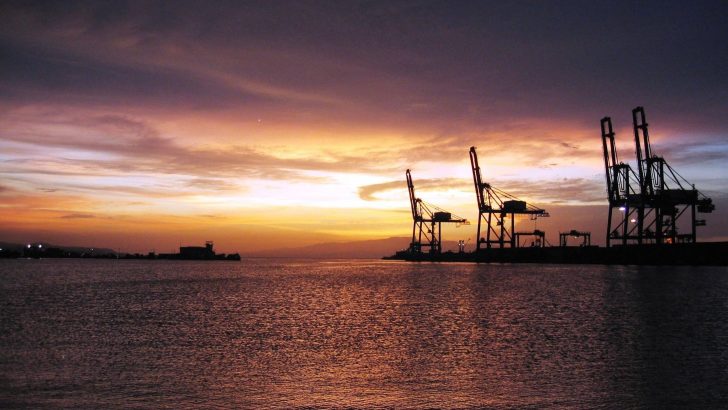
Djibouti is a country located in East Africa, bordered by Eritrea to the north, Ethiopia to the west and south, and Somaliland to the southeast, and with the Gulf of Aden lies to the east.
There are three regions in this country: the coastal plain, the volcanic plateaus spreading across the central and southern parts of the country offering a unique experience to an adventurous traveler, and the third region consisting of the mountain ranges in the north.
The biggest part of the country, however, is just vast wasteland with no arable land.
What you might want to visit while in Djibouti is Lake Assal which is the second-lowest point on Earth.
It isn’t easy to reach, though: you might need to hire a car and suffer a rough ride until reaching the desired point, but you can expect to be awestruck on the way: even though the roads are bumpy and completely destroyed, this particular one passes within sight f the Devil’s Island, and the whole journey to Lake Assal will leave you with incredible and unforgettable views.
- Warnings & Dangers in Djibouti
OVERALL RISK: MEDIUM
In general, Djibouti is relatively safe to visit. Expect both petty and violent crime, and scammers everywhere. Apply all precaution measures to minimize the chances of something going wrong.
TRANSPORT & TAXIS RISK: MEDIUM
Safety requirements when it comes to transport are not always met. If you plan on inter-city traveling, the only way to go are buses, and they are poorly maintained while their drivers often drive recklessly and erratically without paying attention to the passengers’ safety.
PICKPOCKETS RISK: MEDIUM
When it comes to petty crime, Djibouti isn’t too dangerous, especially compared to some of its neighbors like Somalia and Eritrea. This doesn’t mean that you should let your guard down and relax: apply all precaution measures that you would in your own country and remain vigilant especially in crowded places.
NATURAL DISASTERS RISK: HIGH
Even though it boasts wonderful landscape, the beauty of the country came with a price: namely, Djibouti is notorious for its seismic activity and severe earthquakes. Some scientists are actually now saying that in time (measured in millions of years) Djibouti will disappear having been pulled apart by the African, Somali and Arabian tectonic plates.
MUGGING RISK: LOW
Violent crime is also not common in Djibouti, but you should still avoid visiting deserted and isolated areas where you might become targeted. Particularly avoid coastal areas like Dorale and Khor Ambado - which are very isolated. Also keep in mind that walking around after dark unaccompanied is not recommended.
TERRORISM RISK: HIGH
Terrorists are likely to try and carry out attacks in Djibouti. Djibouti and its international interests may be seen as a legitimate target by Al Shabaab because of its support to the Somali government and its participation in the African Union peacekeeping mission.
SCAMS RISK: MEDIUM
Just like anywhere in the world, where there’s tourism – there will be people trying to take advantage of you. Be careful when changing money on the streets, you might get scammed. Always check your change twice, negotiate the price of every service beforehand, and ask around about the real prices of services and other goods.
WOMEN TRAVELERS RISK: MEDIUM
Even though this country isn’t notorious for criminal activity, women should be careful when visiting Djibouti. Apply basic precaution measures - avoid wearing purses and do not walk alone or roam around deserted or poorly lit streets and areas.
- So... How Safe Is Djibouti Really?
Generally speaking, crime rates in Djibouti are relatively low, especially in comparison to its neighbors.
That, however, doesn’t mean that you should relax, on the contrary – but more on that subject later.
The country is definitely not crime-free, and you should be particularly wary of pickpockets and theft in general.
Avoid traveling alone to isolated places particularly coastal areas like Dorale and Khor Ambado.
The real danger in this country is a natural hazard in the form of numerous and devastating earthquakes.
Djibouti is actually known for its notorious seismic activity and scientist now predict that it millions of years Djibouti will disappear into the ocean having finally been pulled apart by the African, Somali and Arabian tectonic plates.
Be very careful in case of an earthquake.
Drop to the ground and hold on to anything solid until the shaking stops.
Another thing to keep in mind is don’t ever completely relax in Djibouti: this is a fairly conservative country, predominantly Muslim, so you should obviously obey their rules, and treat their local culture with respect.
Homosexuality is also illegal, so refrain from public displays of affection.
You shouldn’t take photos in most places, either.
It is forbidden, including photographing buildings, seaports, the airport, bridges, military facilities, etc.
Never get too relaxed: if they catch you with your photographic equipment, it will be taken from you and you might even get arrested.
- How Does Djibouti Compare?
- Useful Information
All countries need a visa in order to enter Djibouti. However, it’s not complicated to acquire one - nationals of any country - except India, Syria and Yemen - can obtain a visa on arrival. Make sure your passport is valid for at least six months past the date of your departure from Djibouti. If you are not sure about your visa status, visit www.doyouneedvisa.com which will let you know whether or not you need visa based on your nationality and the country you want to visit.
Djiboutian franc is the official currency in Djibouti. Don’t count on ATMs in Djibouti, they are limited and can be counted on one hand. Credit cards aren’t widely accepted.
Djibouti has very hot and humid climate, characterized by moderately warm summers and a cooler season from October to April. During the summers, breezes are common in the coastal city of Djibouti, while during the cooler months, occasional rain can be expected.
Djibouti–Ambouli International Airport is a joint civilian/military-use airport, and the main airport in the country. It is located in the town of Ambouli, Djibouti, approximately 6 km from the city centre.
Travel Insurance
Just like anywhere else, we recommend getting travel insurance when traveling to Djibouti, since it covers not only the costs medical problems, but also theft and loss of valuables.
Djibouti Weather Averages (Temperatures)
- Average High/Low Temperature
- Where to Next?
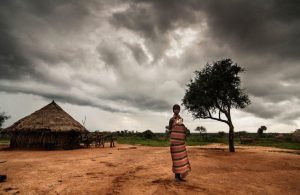
4 Reviews on Djibouti
I didn’t know Djibouti was so popular
Djibouti is a beautiful country, go and see it for yourselves.
Um excuse me but you made Djibouti look like some dangerous place when it isn’t. I’ve lived there my whole life and the things you just mentioned are rare. The people there are nice and polite ( well the majority ). Ah and the earthquates and seismic activity thing is ABSOLUTELY false, there aren’t almost any of those and if it is then they are very weak to the point where we don’t feel anything. So in conclusion, please either do some profound investigations about the facts or don’t write these kind of articles as it gives quite a negative view of this beautiful country.
Thank you for your comment in reference to the information presented about Djibouti. My husband just got a job offer in this country, and I’m doing some research of the area to see if it would be somewhere we would like to live. After reading the above article, I was really questioning this place’s safety. Your comment helps to clear some doubt. Thank you for your insight.
A lovely surprise
Djibouti is a less known African country that has plenty of good things to offer. I would just outline a few of them like Lake Assal or the Khor Ambado beach. The Day Forest National Park is a great place to visit plus if you like water make sure to do the Dolphins Excursions as they are special.
Share Your Experience Cancel reply
Your Review
Title of your review
Article Contents
- Overall Risk
- Transport & Taxis Risk
- Pickpockets Risk
- Natural Disasters Risk
- Mugging Risk
- Terrorism Risk
- Women Travelers Risk
- Weather Averages (Temperatures)
- User Reviews
- Share Your Experience
Popular Destinations

Safety Index
Recent reviews & comments.
- marilyn60 on 10 Safest Cities in South Africa
- Jane on Sao Paulo
- James on Gold Coast
- Mel on Evansville
- Anonymous on 16 Pros and Cons of Living in Green Valley, AZ
Popular US States
- Pennsylvania

IMAGES
VIDEO
COMMENTS
Djibouti. Africa. This tiny speck of a country packs a big punch. What it lacks in size, it more than makes up for in beauty. Few countries in the world, with the possible exception of Iceland, offer such weird landscapes - think salt lakes, extinct volcanoes, sunken plains, limestone chimneys belching out puffs of steam, basaltic plateaus ...
Djibouti's climate is hot all year round, with temperatures in Djibouti City rarely falling below 68°F/ 20°C even in winter (December - February). Along the coast and in the north, the winter months can also be quite humid. In summer (June - August), temperatures often exceed 104°F/ 40°C, and visibility is reduced by the khamsin, a dust ...
Djibouti. Nestled on the southern tip of the Gulf of Tadjoura, the seaside capital of Djibouti is a modest harbor town and a major port of trade and travel via Ethiopia and other points in Africa, especially as the terminus for the Djibouti-Addis Ababa Railway. Beaches along the eastern shore provide some respite from the blistering heat, while ...
Call us in Washington, D.C. at 1-888-407-4747 (toll-free in the United States and Canada) or 1-202-501-4444 (from all other countries) from 8:00 a.m. to 8:00 p.m., Eastern Standard Time, Monday through Friday (except U.S. federal holidays). See the State Department's travel website for the Worldwide Caution and Travel Advisories.
The general rule of thumb for earthquake safety is to drop, cover and hold on. So, drop to the ground; take cover and hold onto something solid until the shaking stops. 3. Respect the local culture and religion. Being a predominantly Muslim nation, Djibouti is fairly conservative, but not restrictively so.
Reissued with obsolete COVID-19 page links removed. Exercise increased caution in Djibouti due to terrorism and crime.. Terrorists may attack with little or no warning, targeting tourist locations, transportation hubs, markets, shopping malls, government facilities, hotels, clubs, restaurants, places of worship, parks, major sporting and cultural events, educational institutions, airports ...
Africa DJIBOUTI TRAVEL GUIDE. Located in the horn of Africa, Djibouti is the third smallest country in continental Africa. Despite its small size, it has a rich cultural heritage and diverse landscape, including volcanic formations, desert landscapes, and some of the world's saltiest bodies of water. While Djibouti is still relatively unknown ...
Day 4: Moucha Island. Djibouti is a tiny country with a relatively large coast and a few offshore islands. Diving is possible and you can see whale sharks during the season. But there are also a few islands, the most popular of which is Moucha Island, an easy day trip from the capital city. Fishermen port.
Djibouti City is one of the main ports of eastern Africa so it's a popular route. Get around [edit] Taxis are available in Djibouti and from the airport to the town, as you exit the airport there is a big billboard displaying expected taxi fares, look for it; also in Ali-Sabieh, Dikhil, Dorale and Arta. Fares can increase by 50% after dark.
A hidden gem of the Horn of Africa. Nestled in the Horn of Africa, Djibouti shines as an undiscovered jewel, offering a mesmerizing travel destination infused with natural marvels, vibrant cultures, and untouched beauty. From the otherworldly landscapes of Lake Assal to the pristine beaches along the Gulf of Tadjoura, Djibouti presents an ...
This Djibouti travel guide was created to provide you with the best and most up-to-date information on the top travel destinations in Djibouti, such as Djibouti city, Lac Abbe and Lac Assal, as well as travel and tour pacakges in Djibouti.. On this website, you will also find travel tips. Along with Somalia, Eritrea, and Ethiopia, Djibouti is the fourth country that makes up the Horn of Africa.
FCDO travel advice for Djibouti. Includes safety and security, insurance, entry requirements and legal differences.
If your travel plans in Djibouti include outdoor activities, take these steps to stay safe and healthy during your trip. Stay alert to changing weather conditions and adjust your plans if conditions become unsafe. Prepare for activities by wearing the right clothes and packing protective items, such as bug spray, sunscreen, and a basic first ...
Read this travel advice and carry out your own research before deciding whether to travel. Emergency services in Djibouti. Ambulance: 21 35 09 62 or 21 35 27 12. Fire: 18. Police: 17. Contact your travel provider and insurer. Contact your travel provider and your insurer if you are involved in a serious incident or emergency abroad.
A travel guide to Djibouti City - Sight of the architecture found at European Quarter. INSIDE INFO: While luxury hotels like Kempinski or Sheraton are located in the district of Heron, I found the European Quarter as the best area to find inexpensive and nice accommodation.Furthermore, take into consideration that many hotels will ask for a certificate of marriage if you are planning to stay ...
Polio outbreaks happen in Djibouti. If you aren't vaccinated, complete the full course of vaccinations before you travel. HIV/AIDS is widespread. Take precautions if you're taking part in high-risk activities. Djibouti's high temperatures can cause dehydration and heat stroke. Drink plenty of water. Full travel advice: Health.
Djibouti in Africa combines influences from the African, Arab, and Indian oceans. Most of the inhabitants are Muslim, with Somali the predominant language, and outside the capital, rural areas are home to a small number of Afar tribespeople leading nomadic and traditional lives.
Before you travel, check with your transportation company about passport requirements. Its rules on passport validity may be more stringent than the country's entry rules. Regular Canadian passport. Your passport must be valid for at least 6 months beyond the date you expect to leave Djibouti. Passport for official travel
Passport validity. Like many counties, if you want to travel to Djibouti, you'll need to hold a passport with a minimum validity period of 6 months. This means that if you're planning to travel to Djibouti on the 1st of February 2024, your passport shouldn't expire before the 2nd of July 2024. Also, the local authorities require that your ...
Read the Department of State's COVID-19 page before you plan any international travel. The Centers for Disease Control and Prevention (CDC) has issued a Level 3 Travel Health Notice for Djibouti due to COVID-19. Djibouti has resumed most transportation options (including airport operations and re-opening of borders) and business operations ...
Djibouti Travel Agent. Massigo Travel is the leading trip provider in Djibouti. Explore the Beauty of Djibouti, through our tours, excursions to Lake ABBE, Lake ASSAL & more. ... Welcome to DJIBOUTI, hidden gem of the HORN OF AFRICA, where to walk on a lunar landscape lake abbe, to swim the gentle giant of the sea in the Gulf of Tadjourah whale ...
Written by Travel Safe Team. Safety Index: 38. * Based on Research & Crime Data. User Sentiment: 80. * Rated 80 / 100 based on 4 user reviews. Djibouti is a country located in East Africa, bordered by Eritrea to the north, Ethiopia to the west and south, and Somaliland to the southeast, and with the Gulf of Aden lies to the east.
Contact. Phone. DSN: 324.591.3426/3428. Email: [email protected]. After hours: +49 1626.305.052 (This number is only for USAFRICOM assigned personnel for urgent official travel needs falling outside of normal business hours). APACS How to Guide.